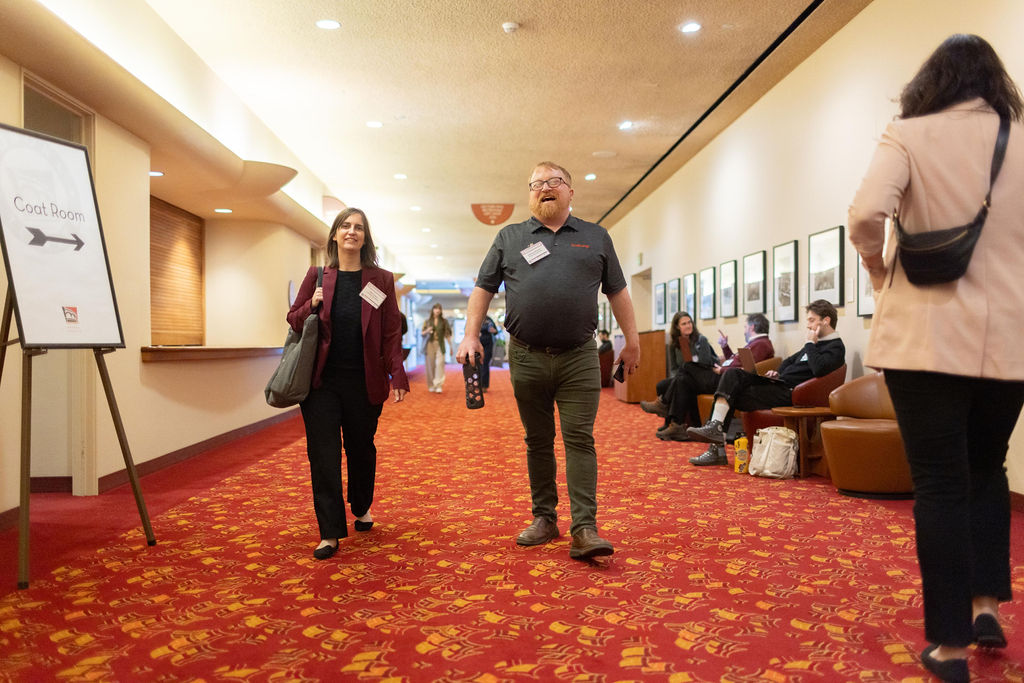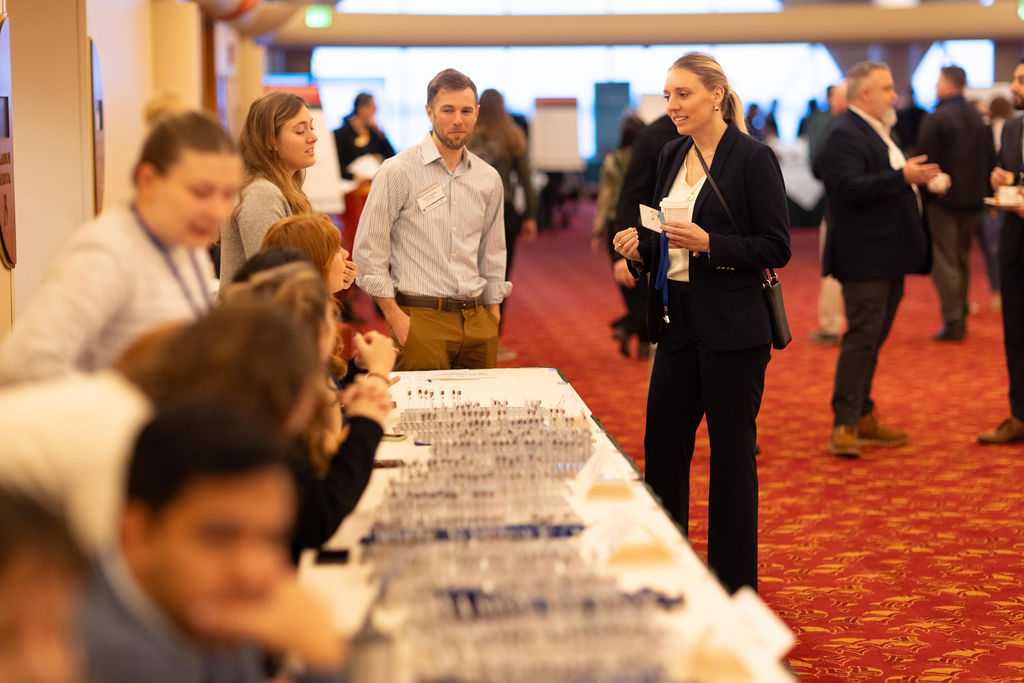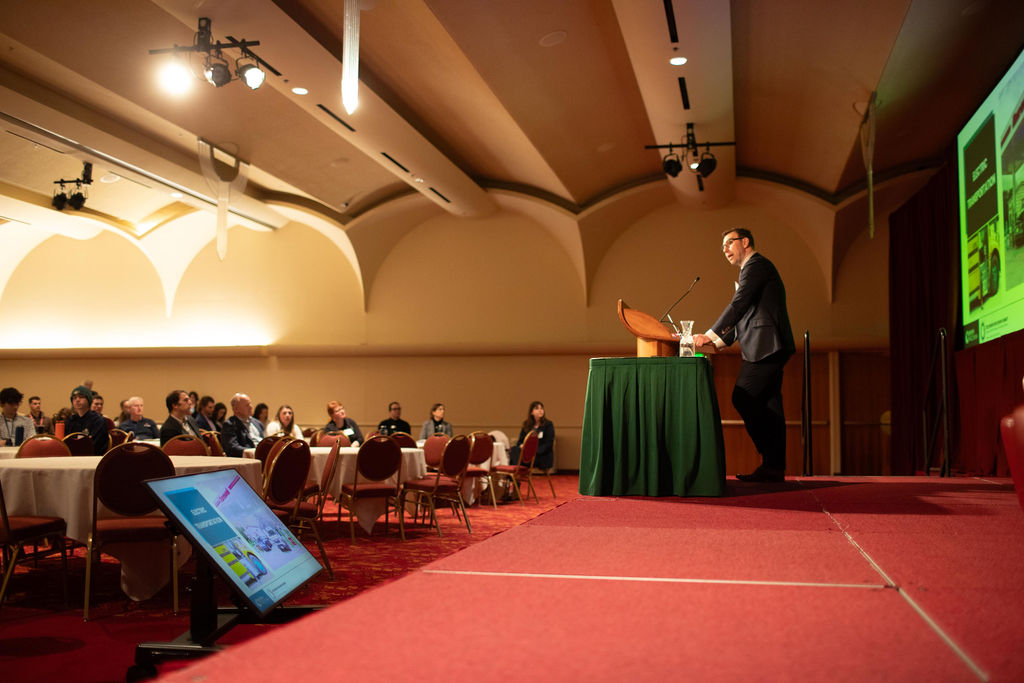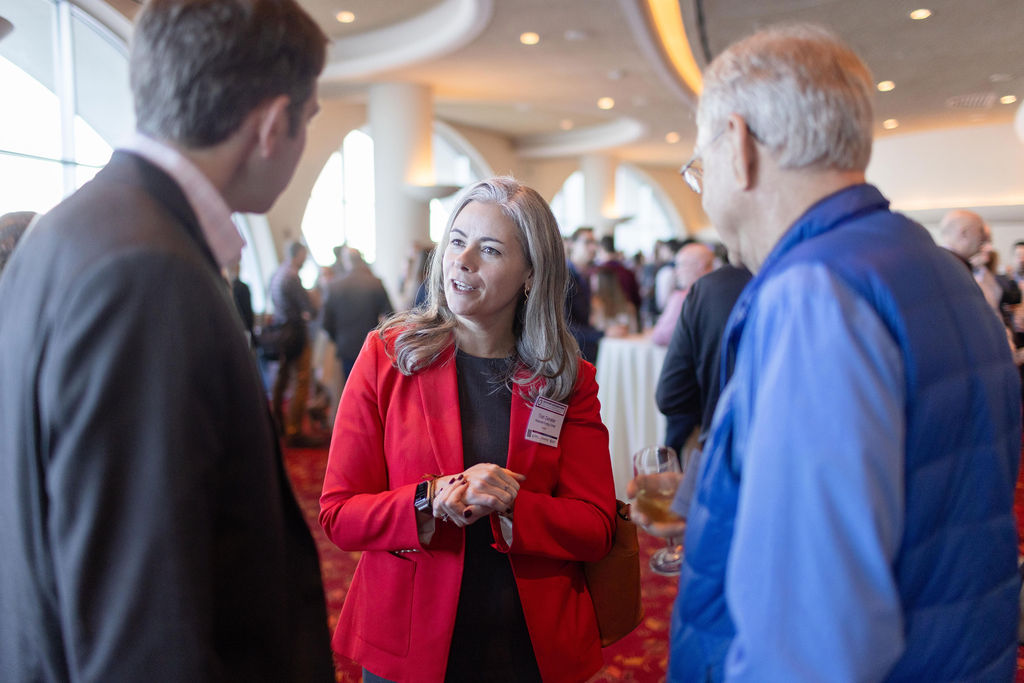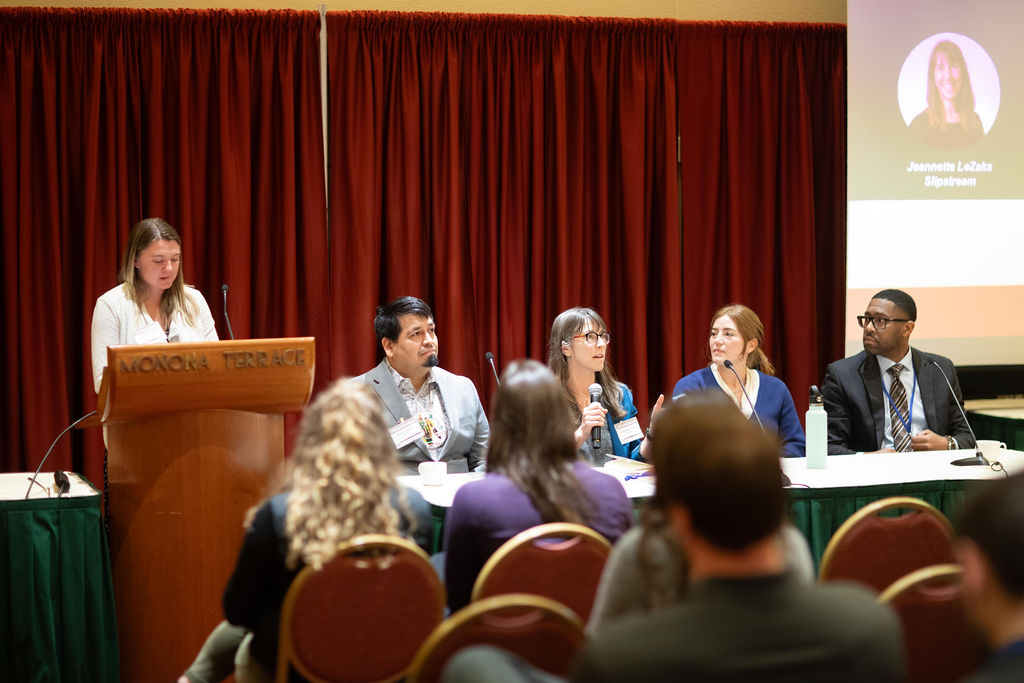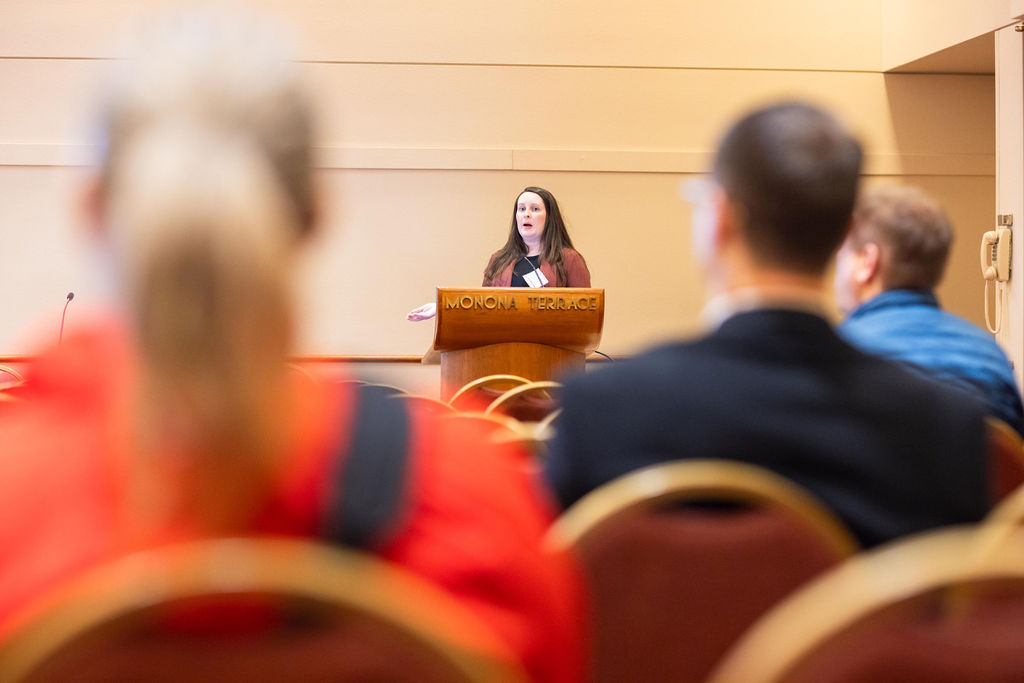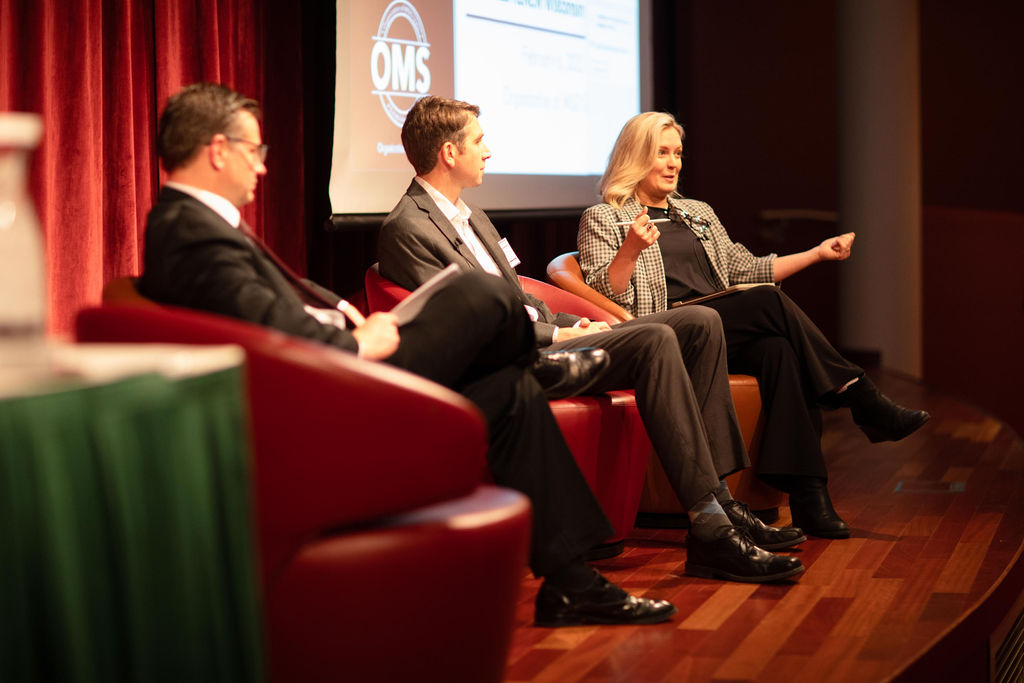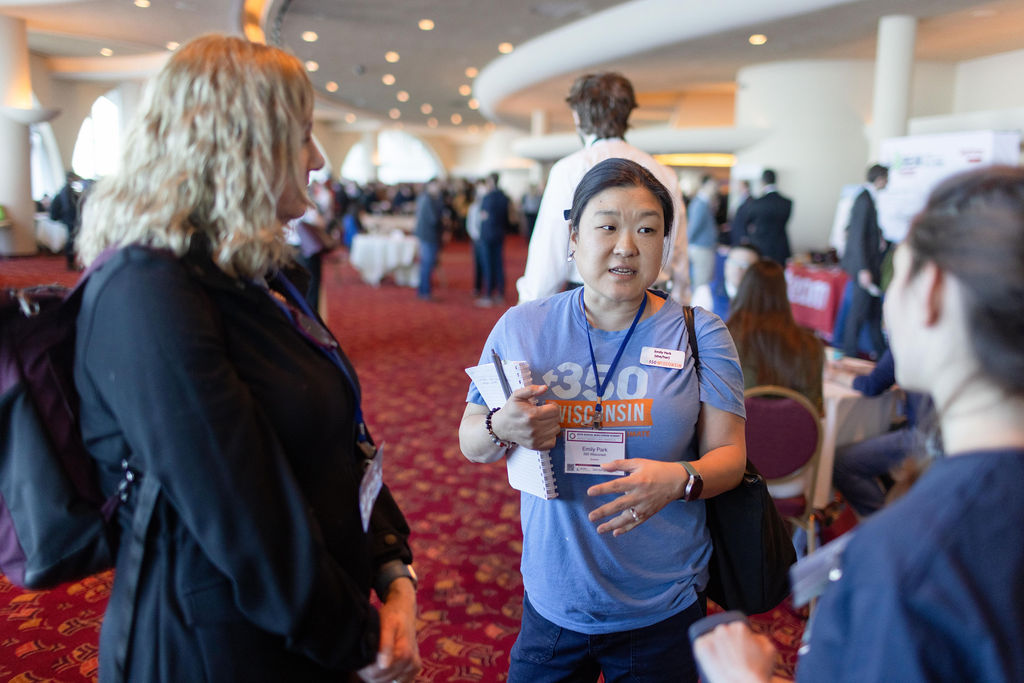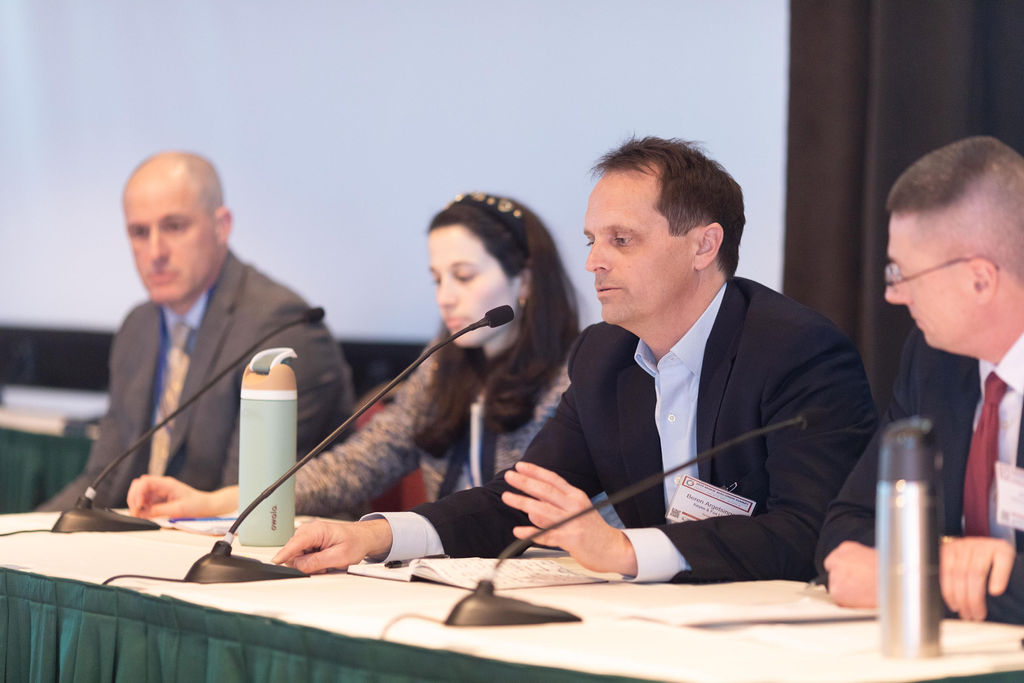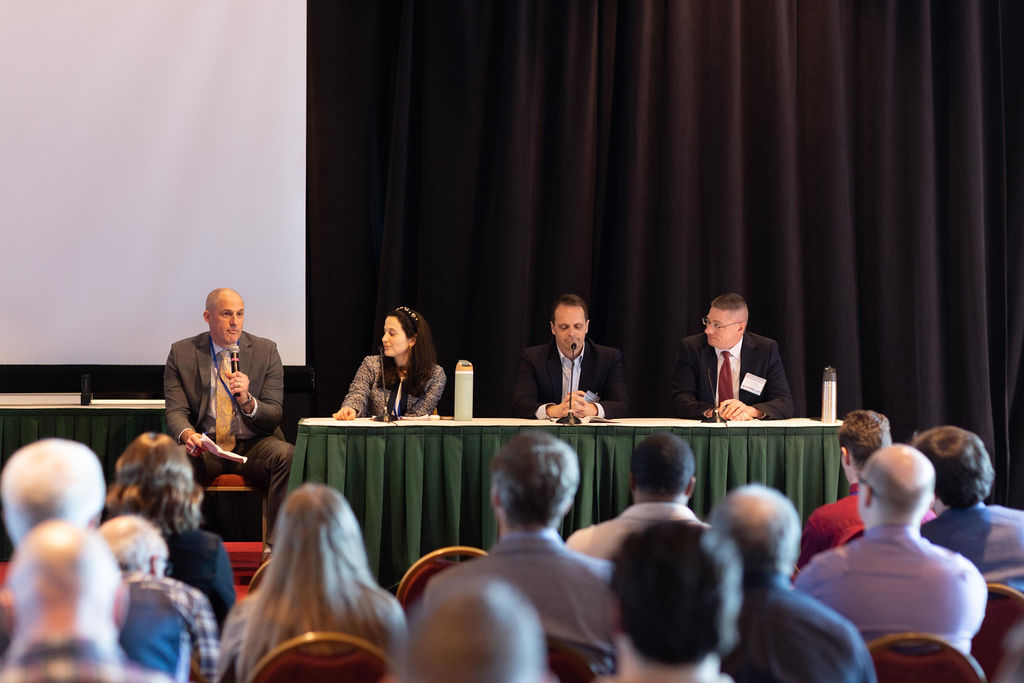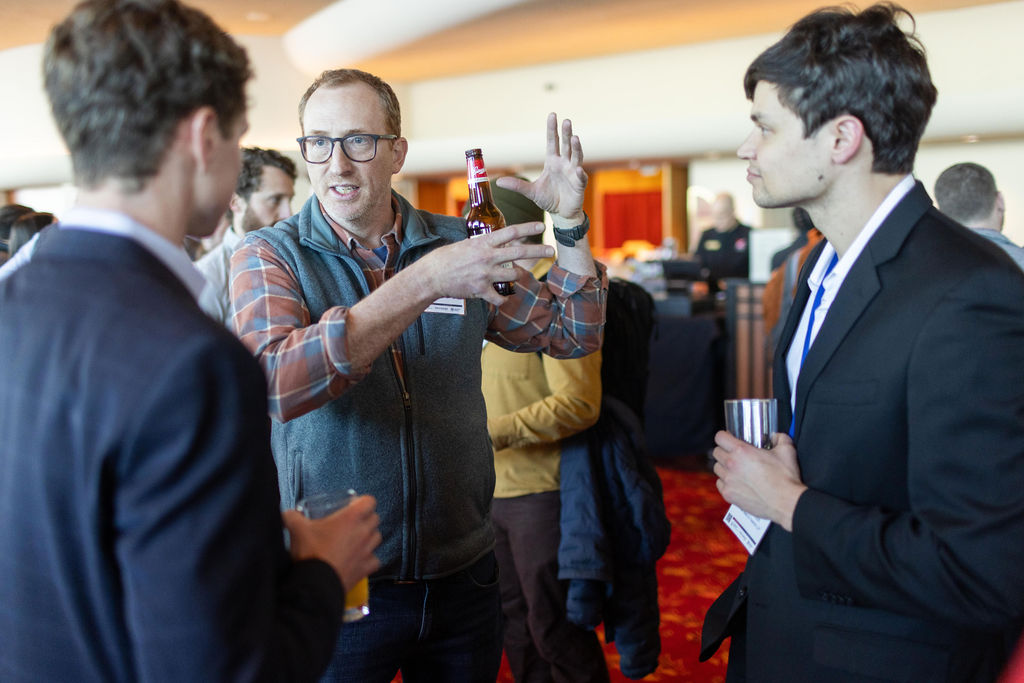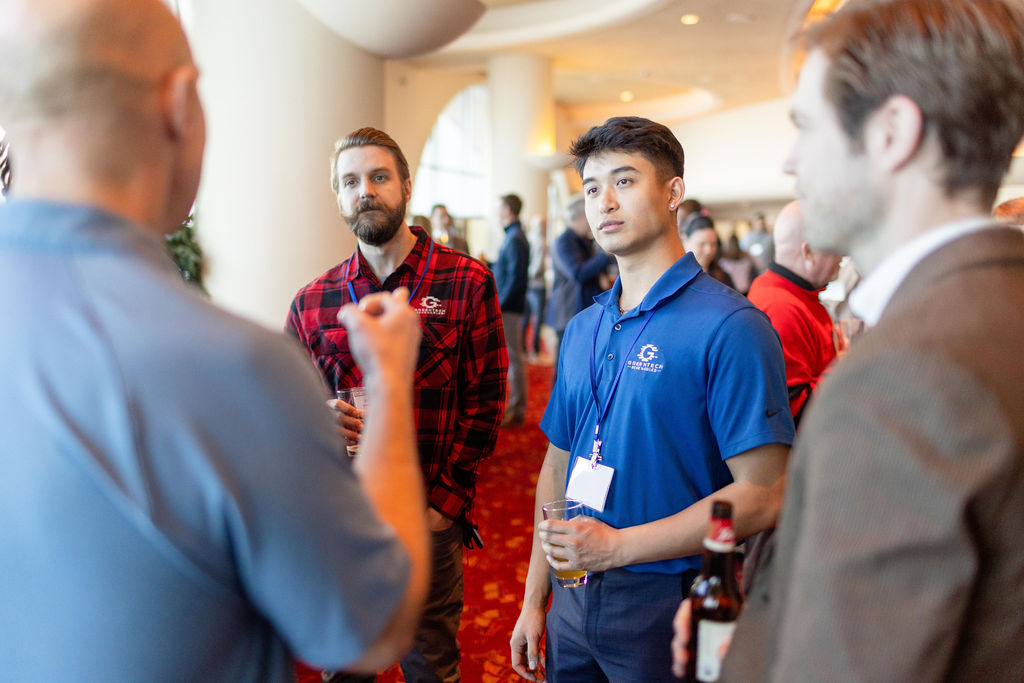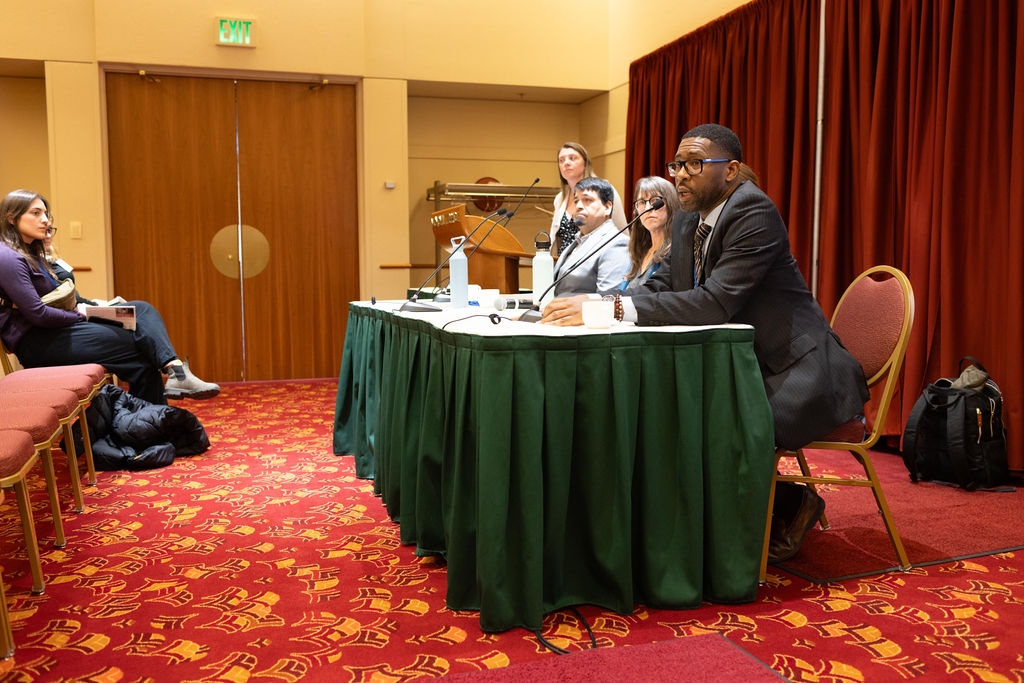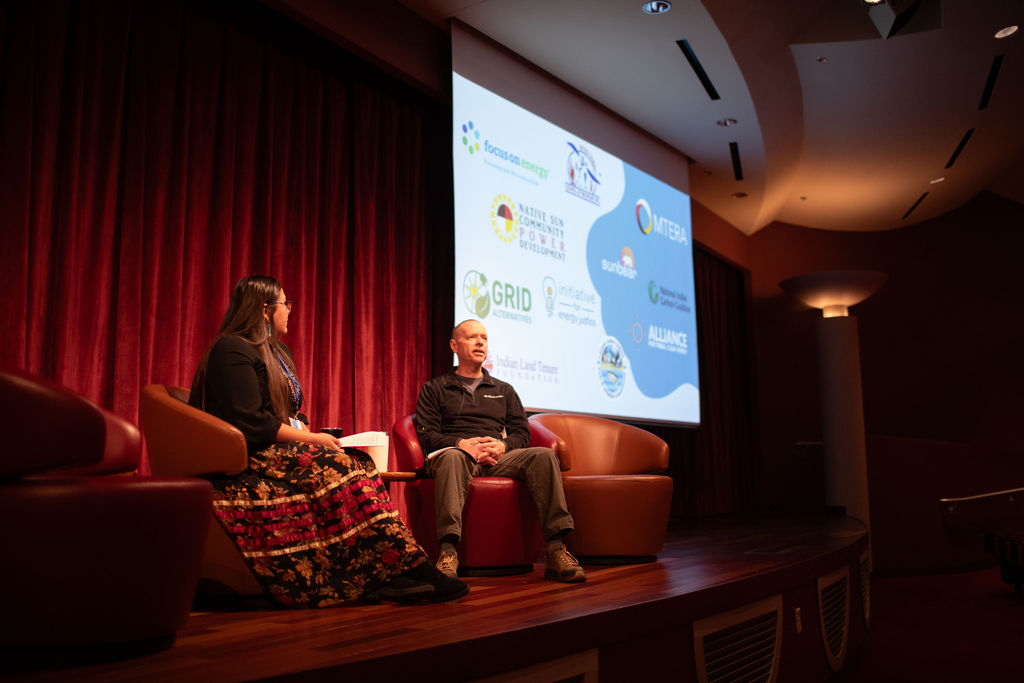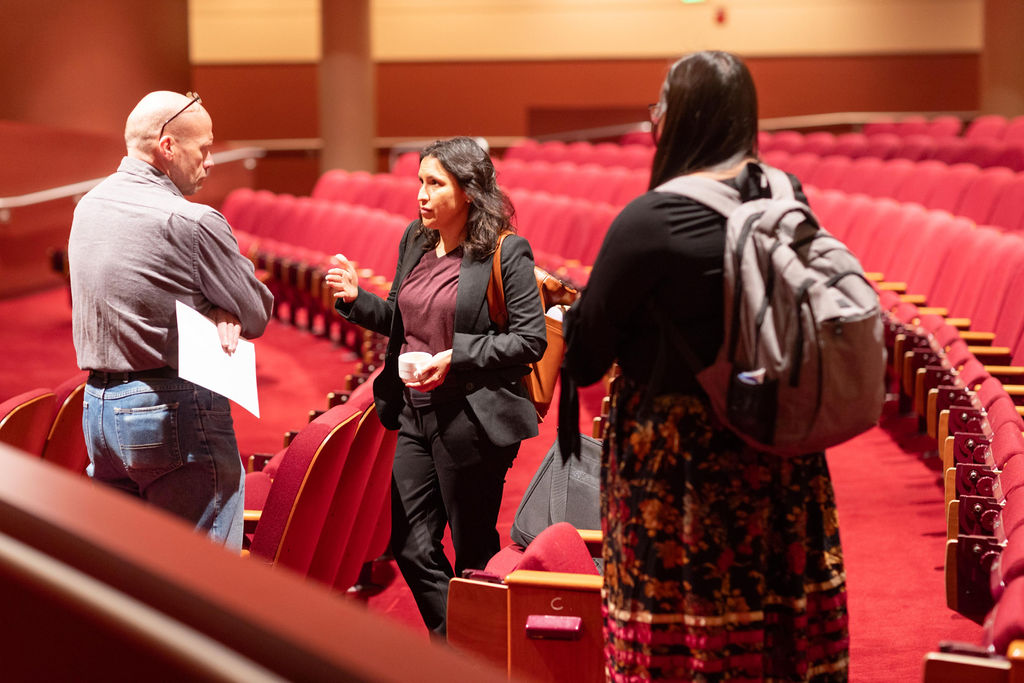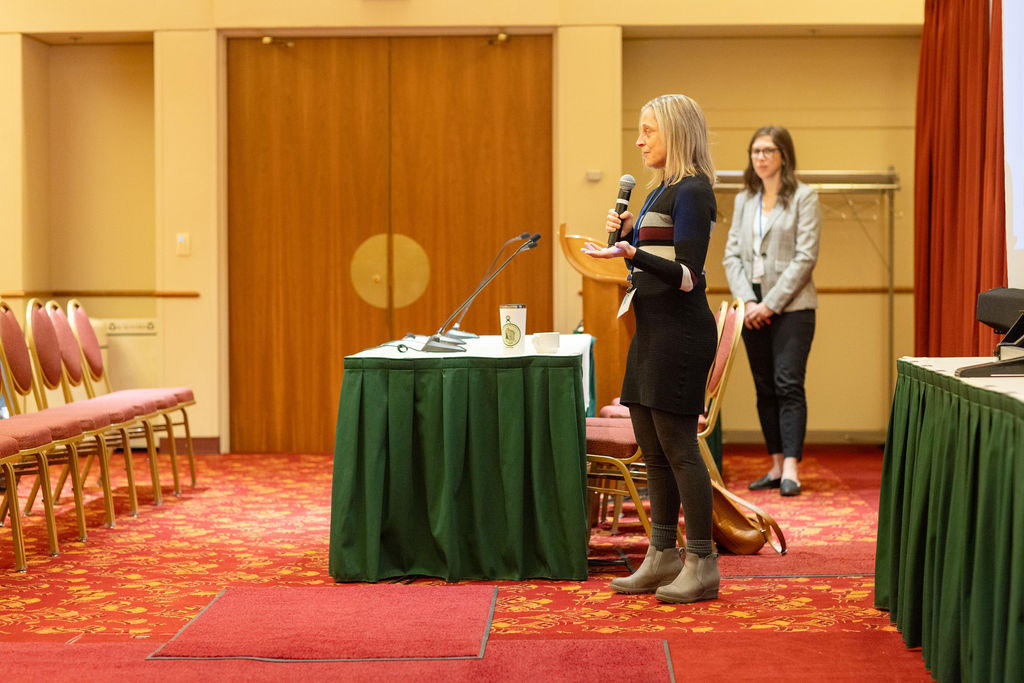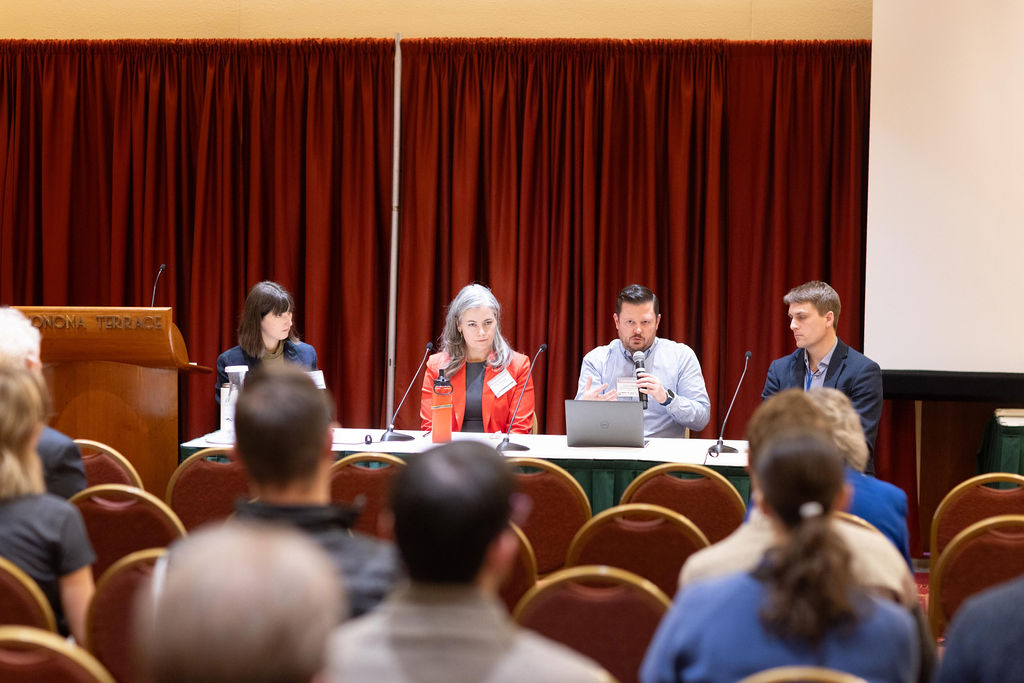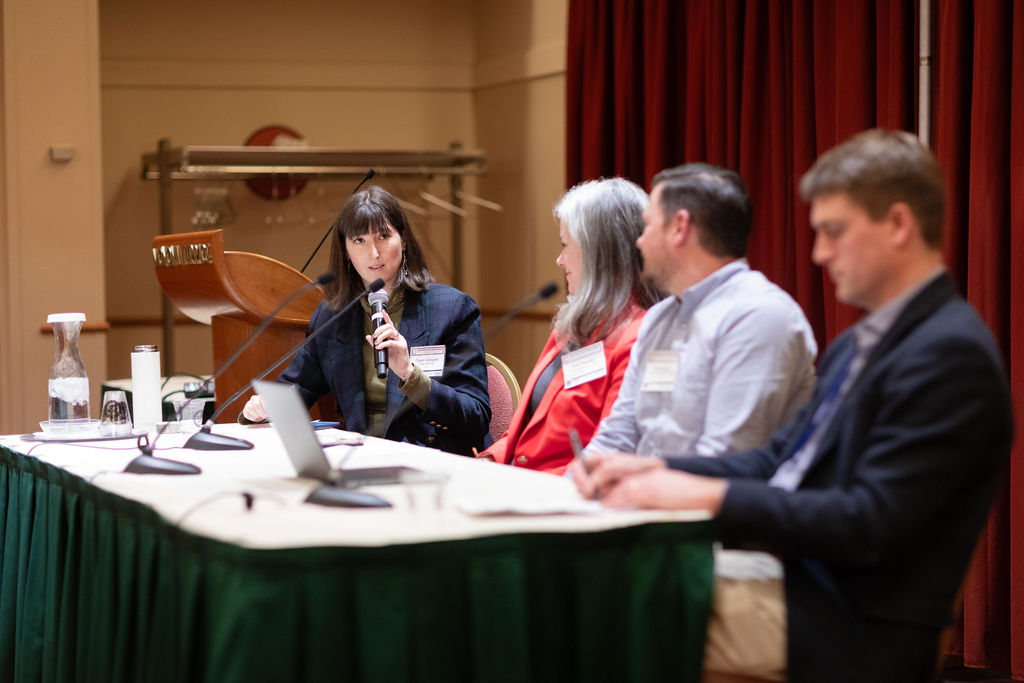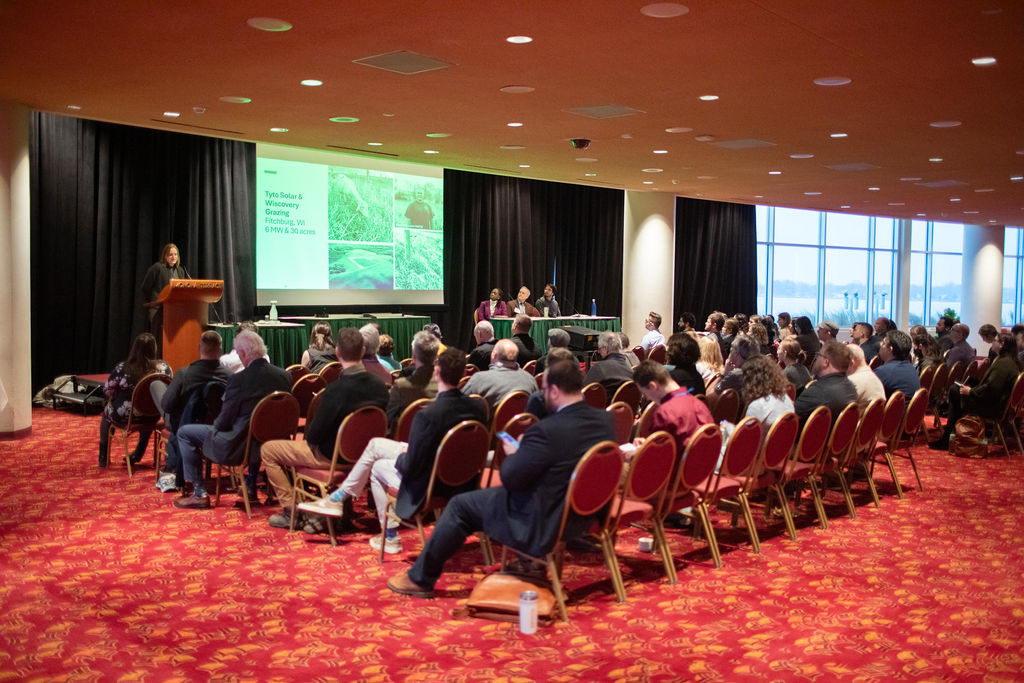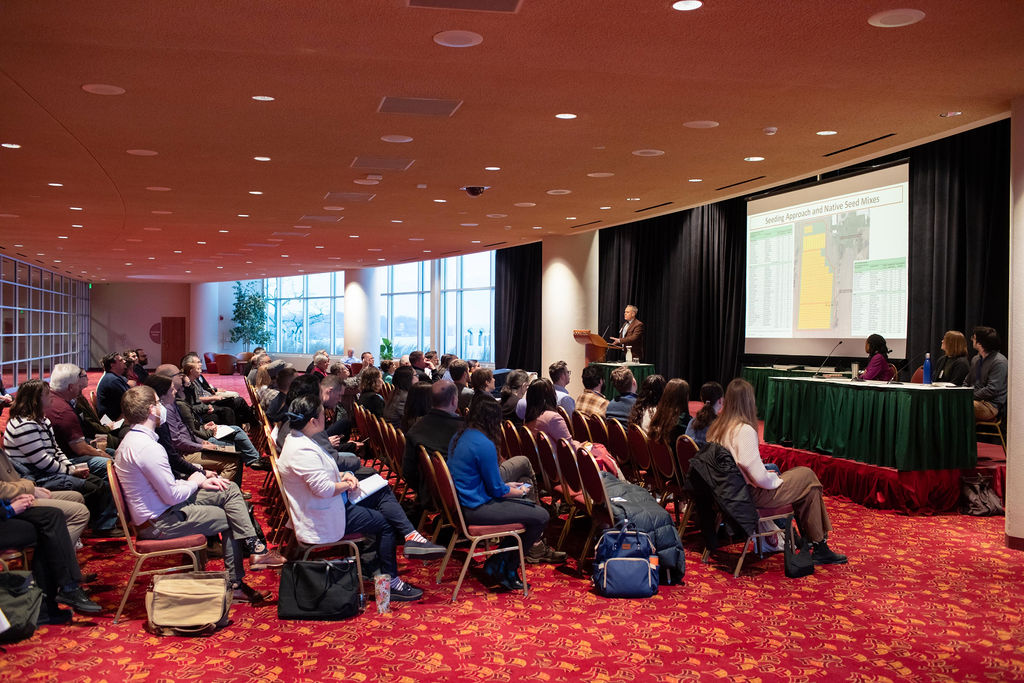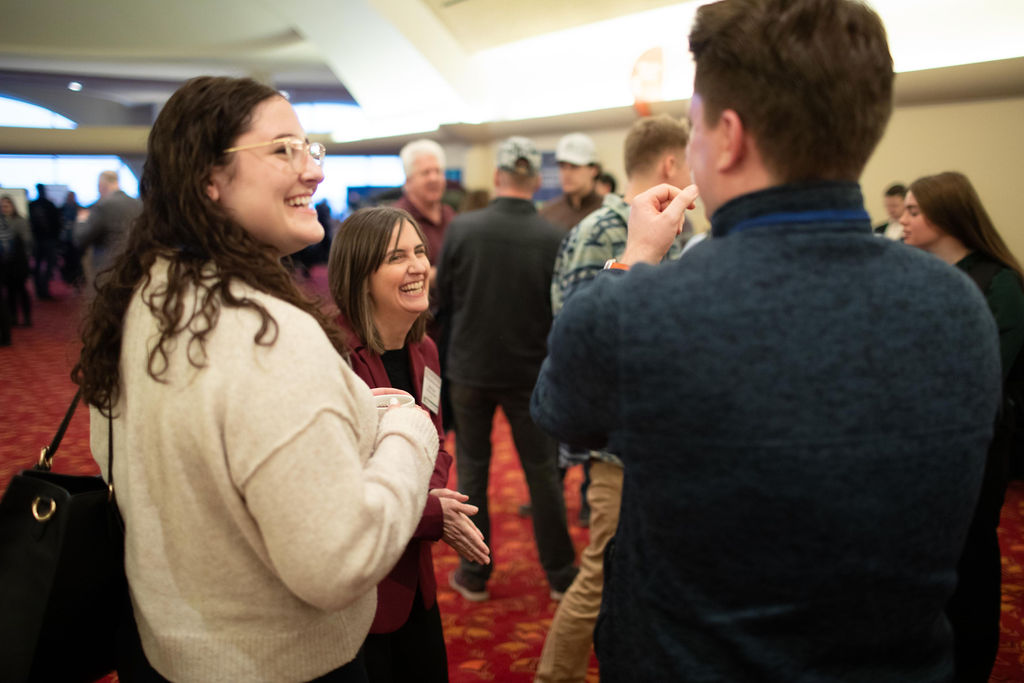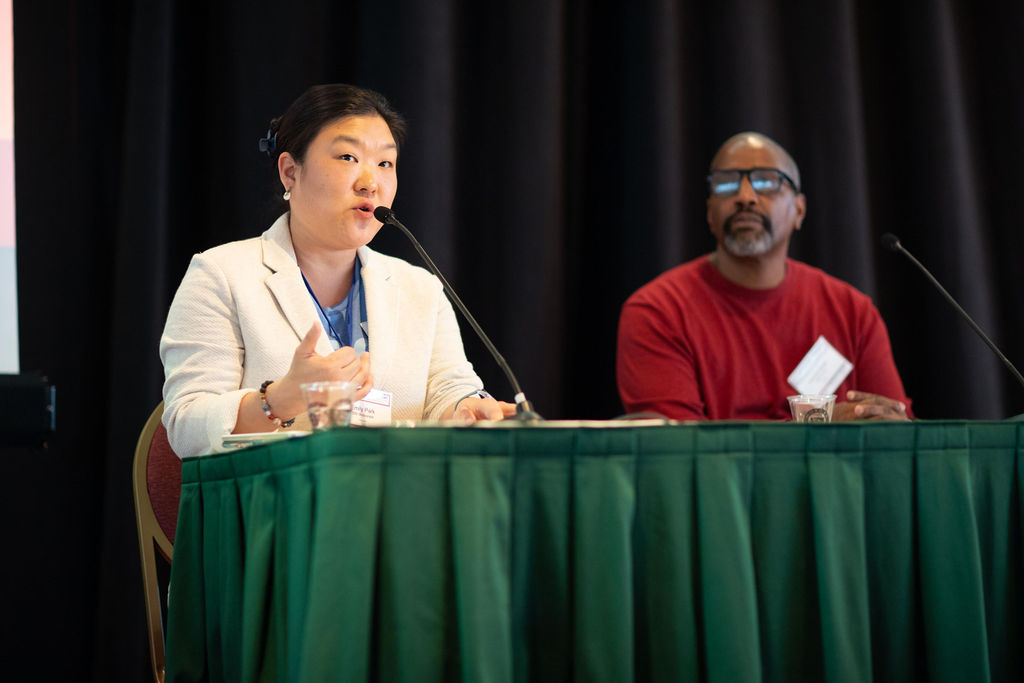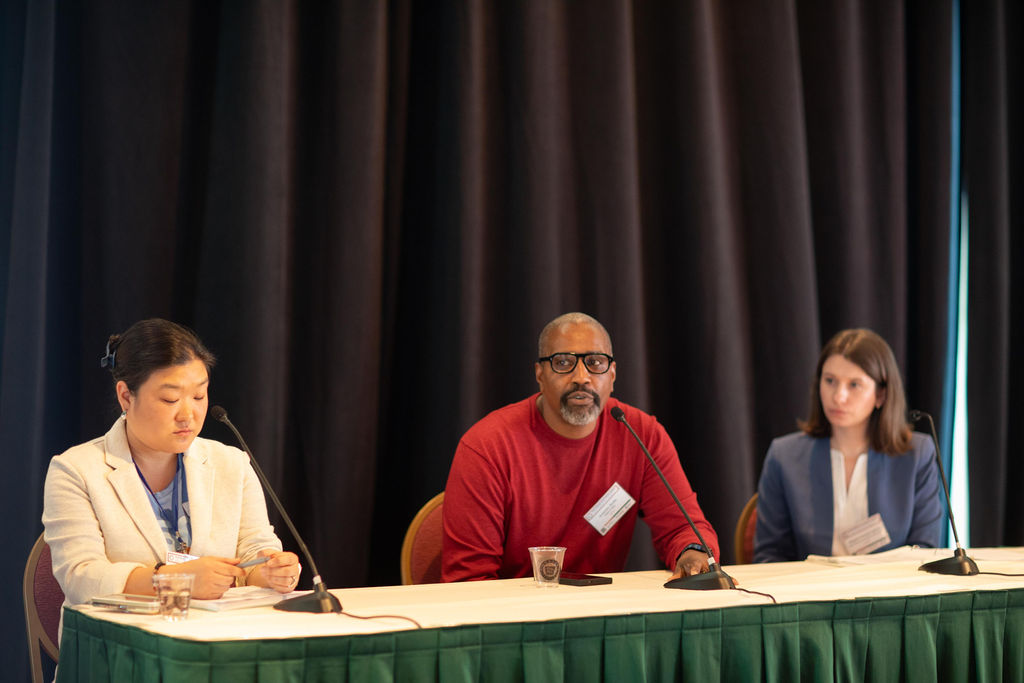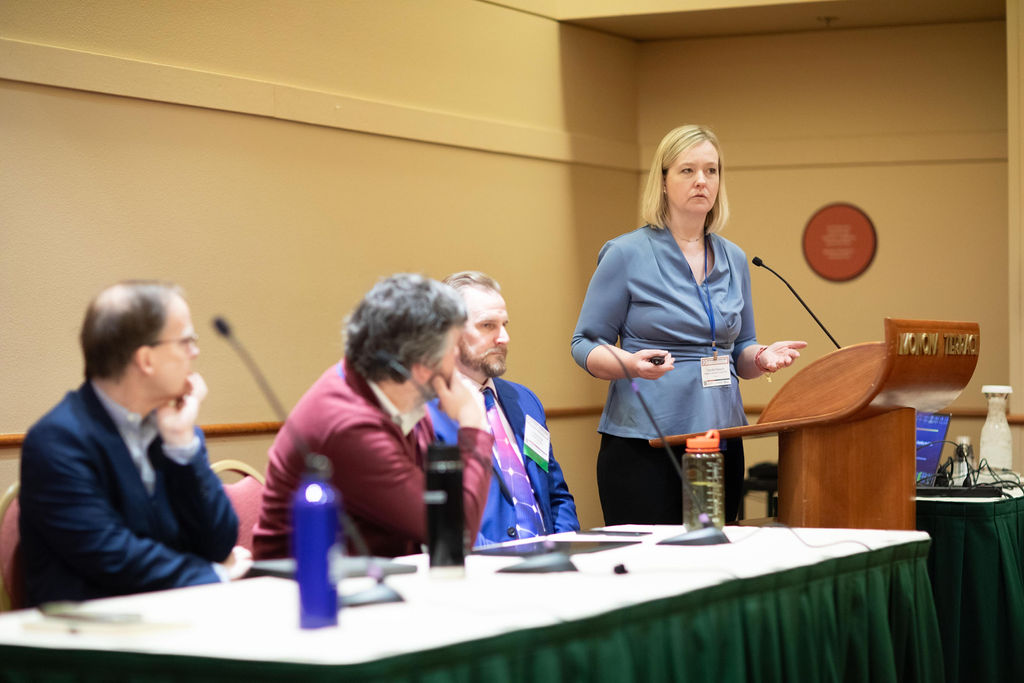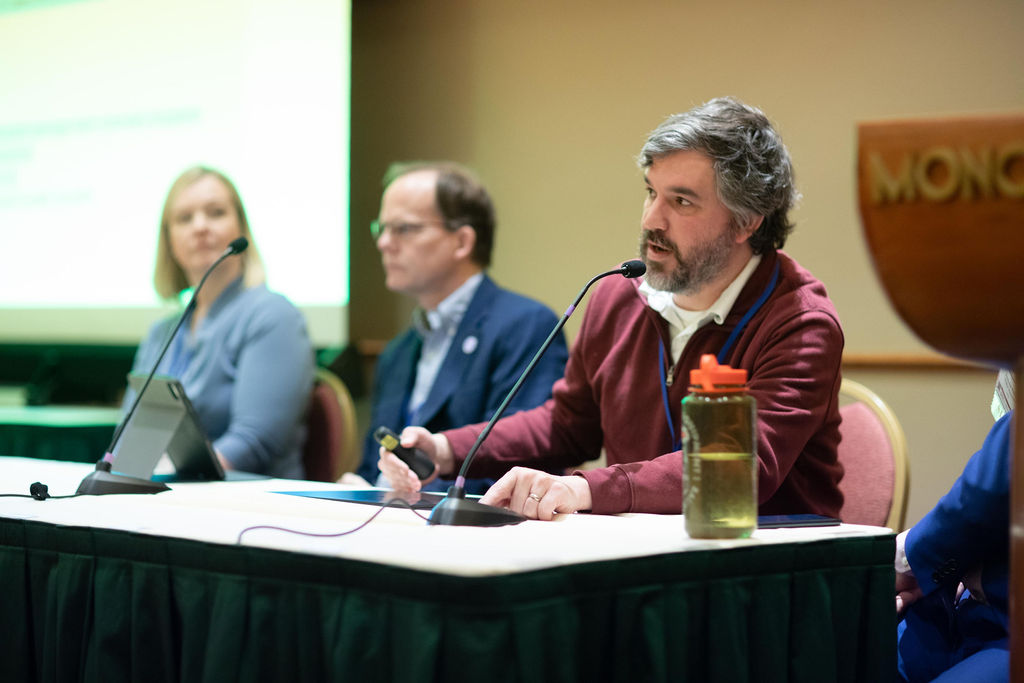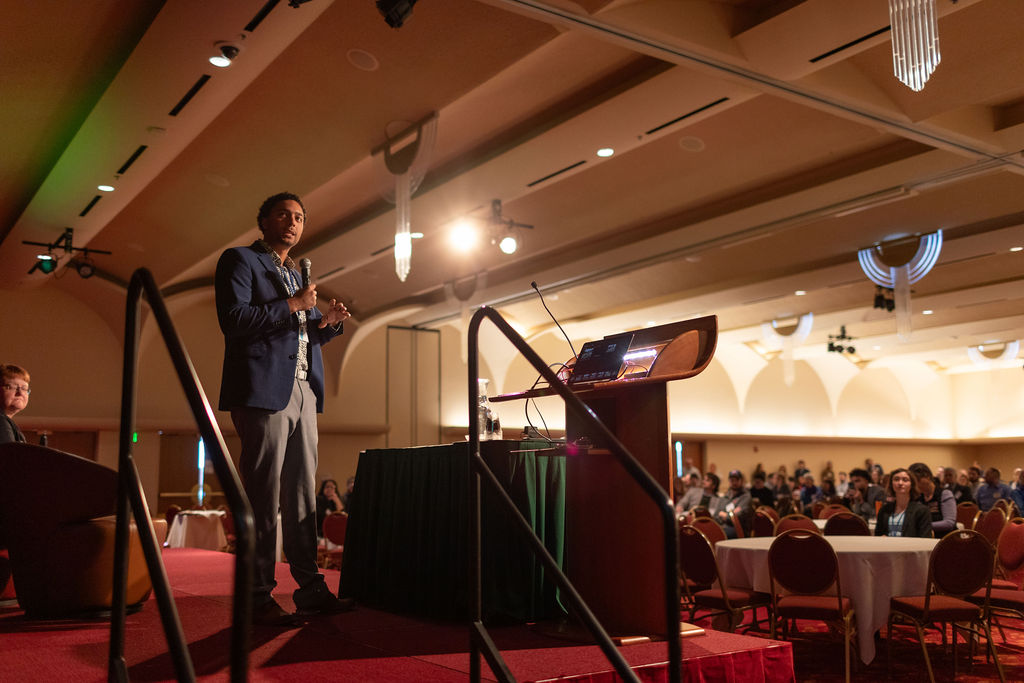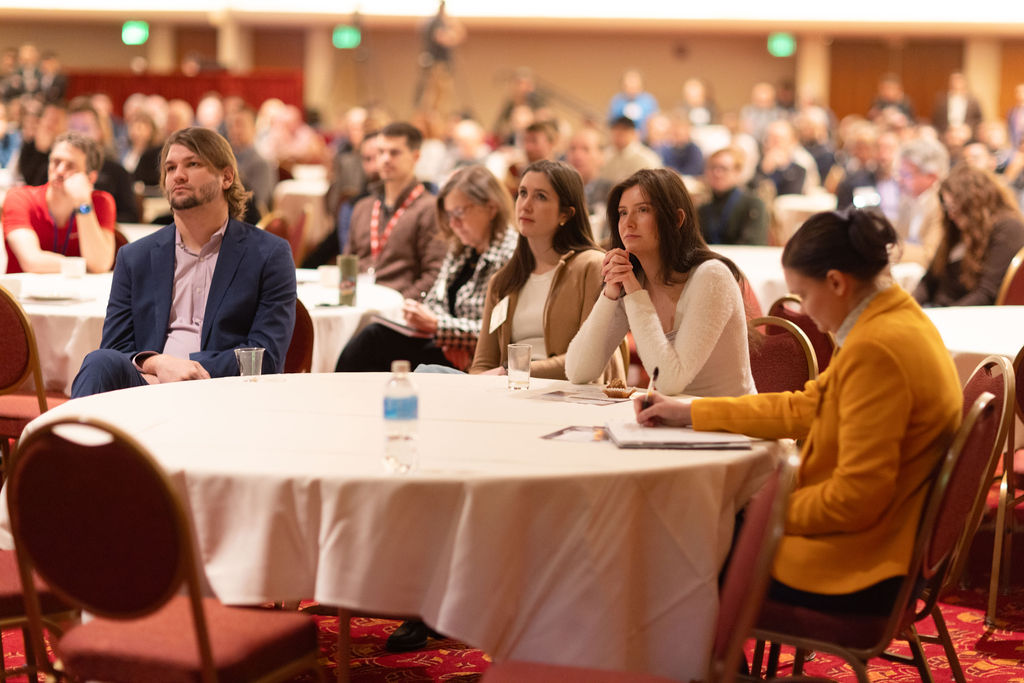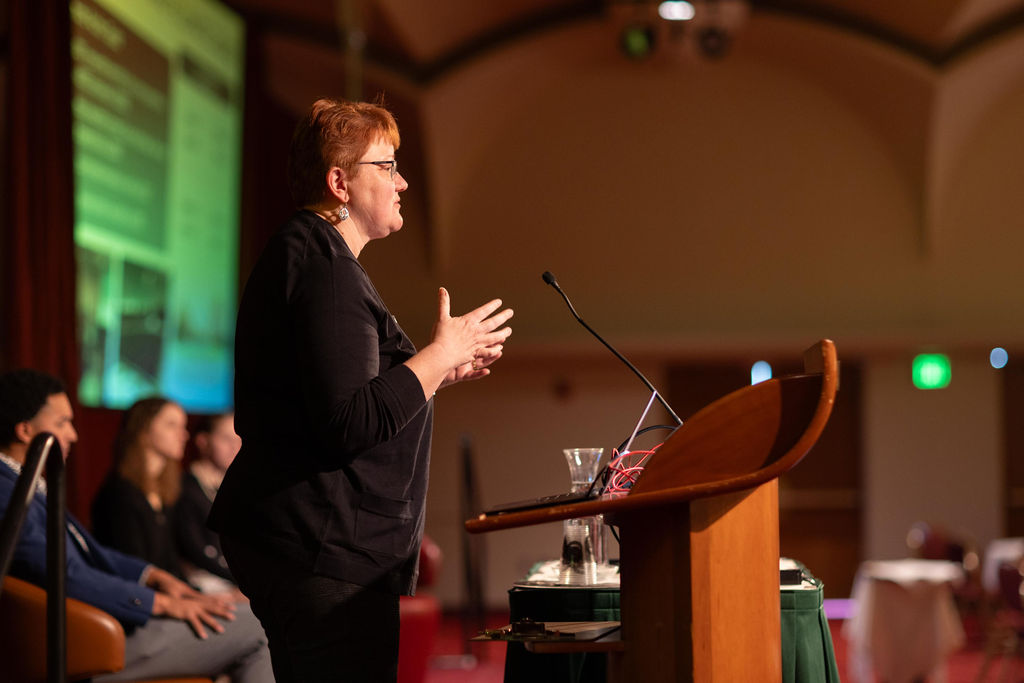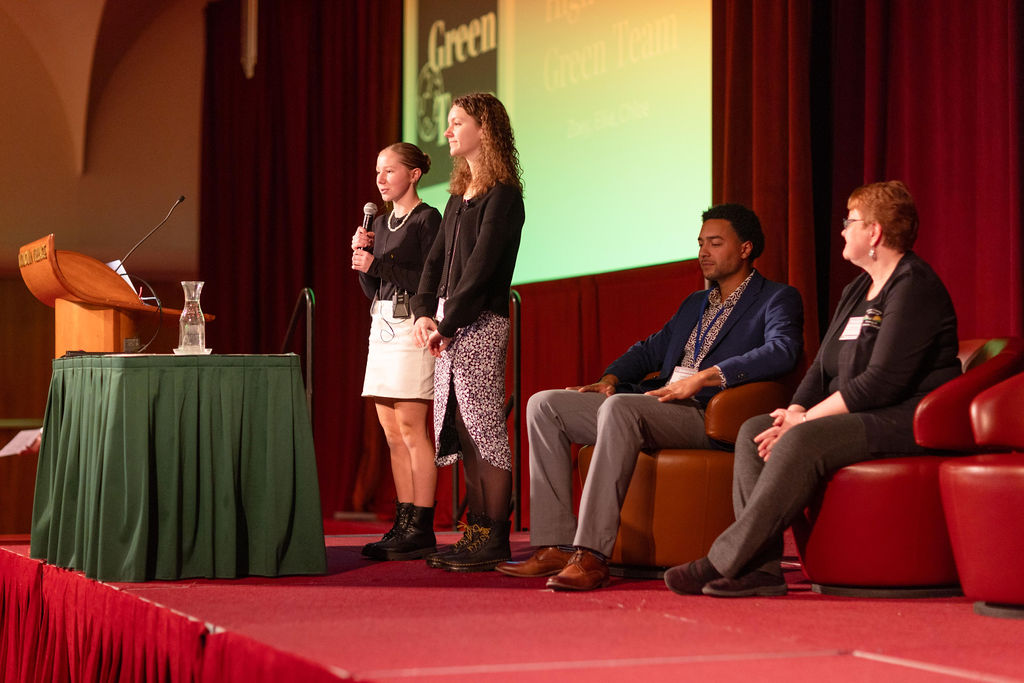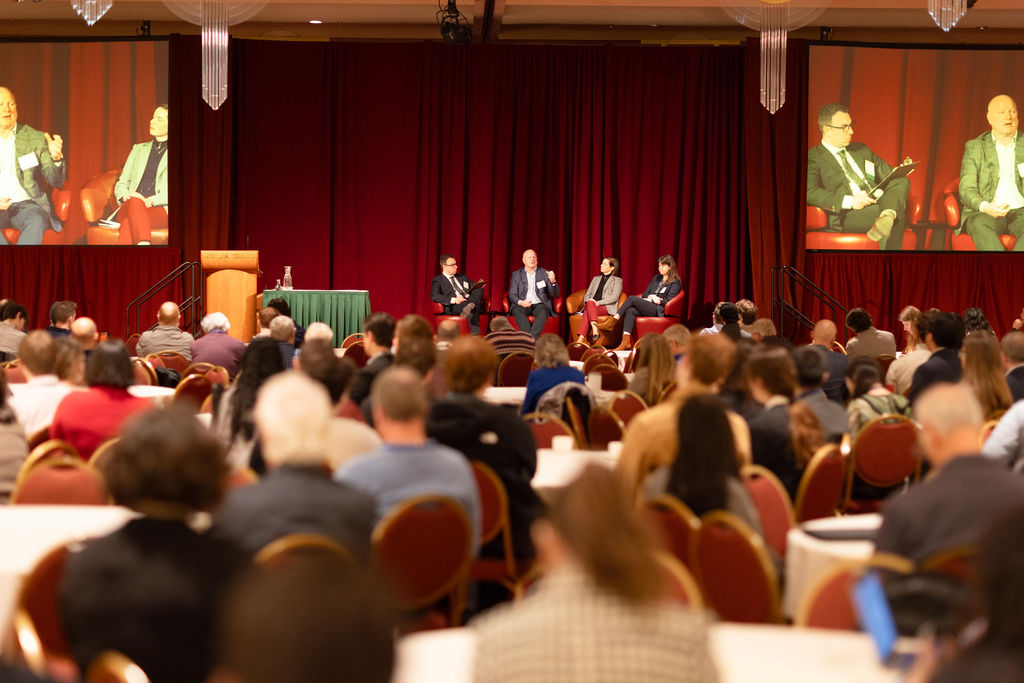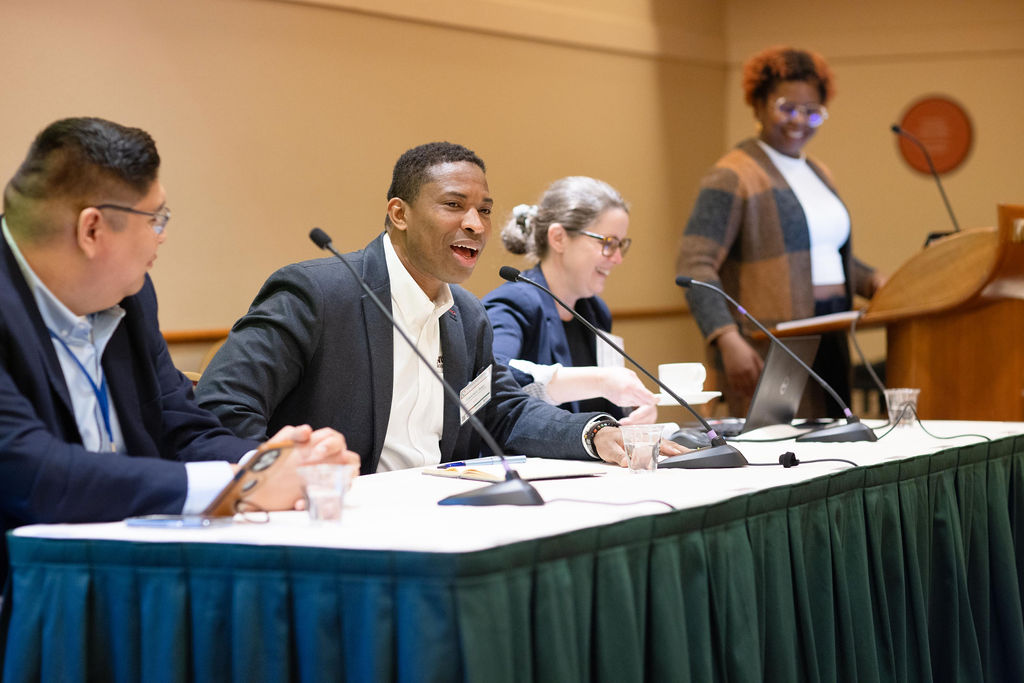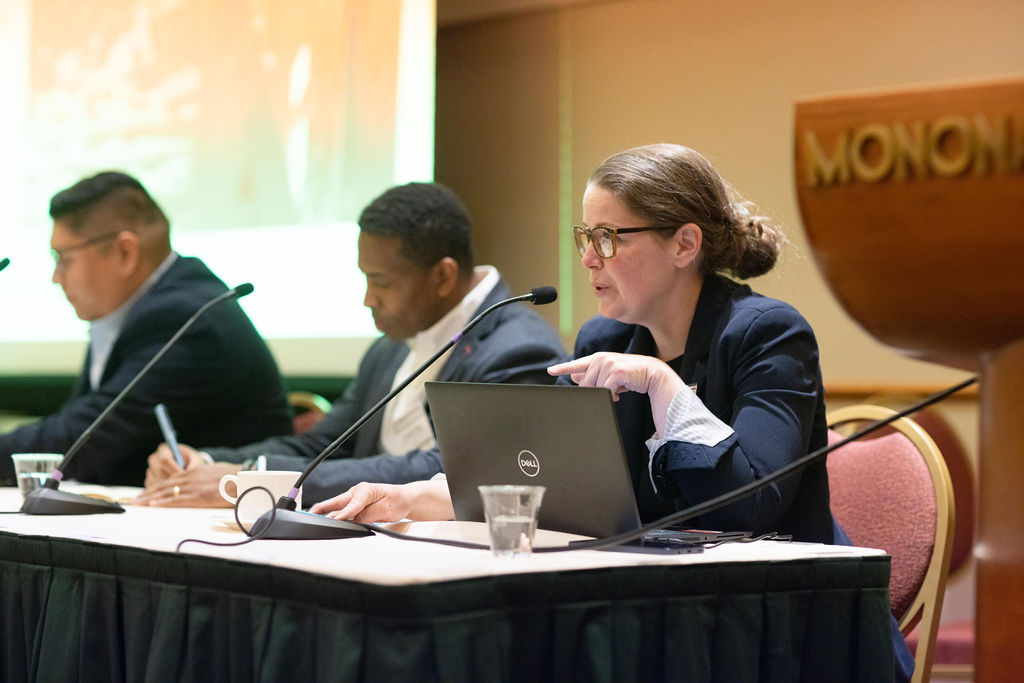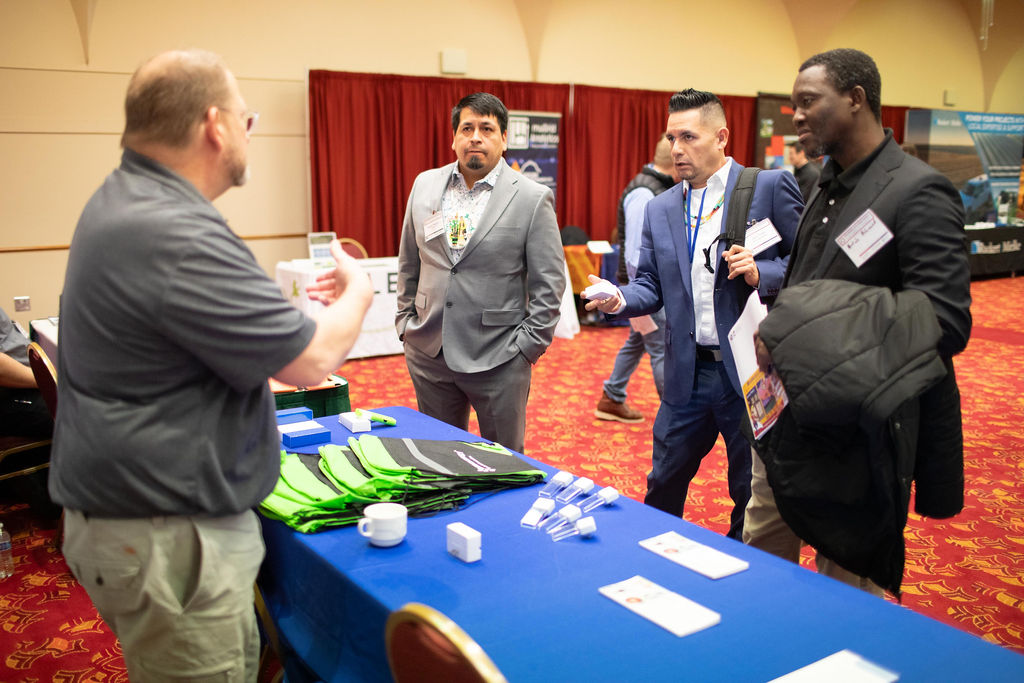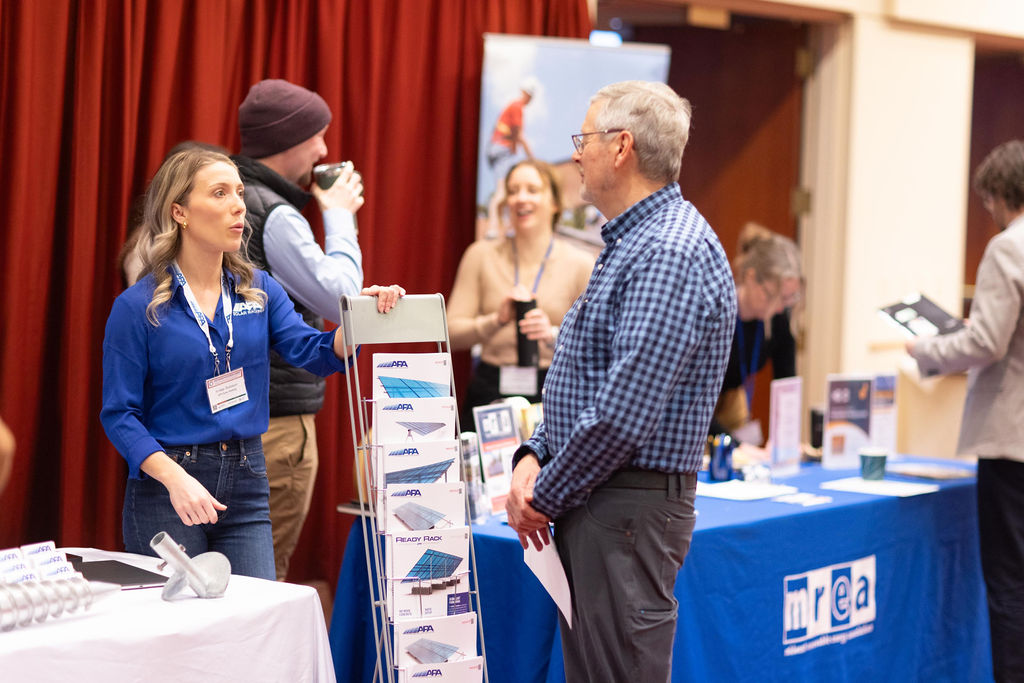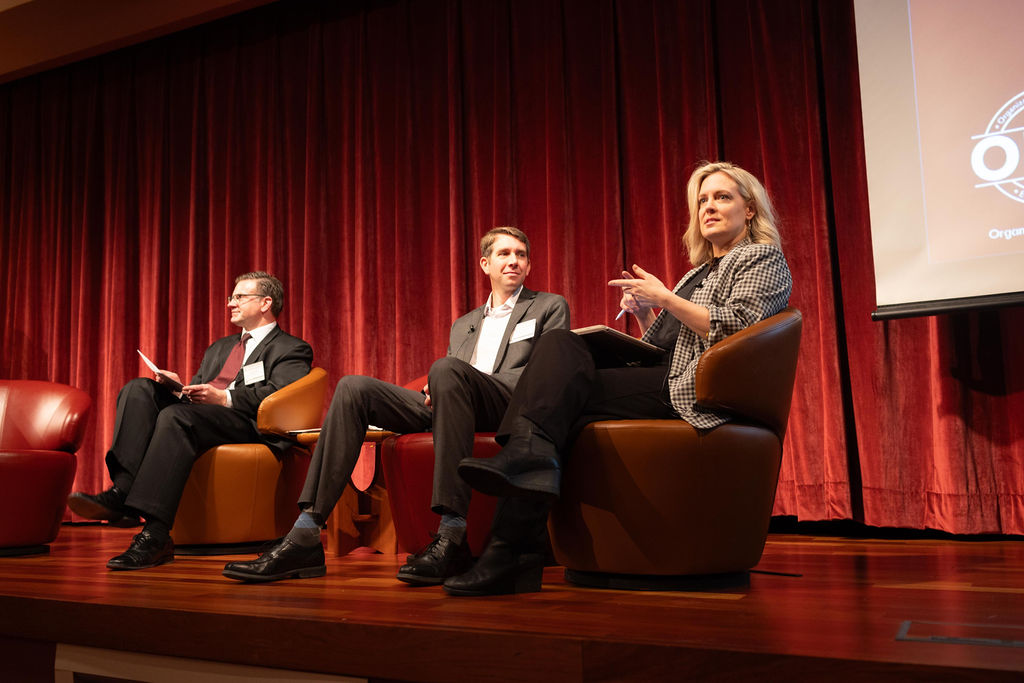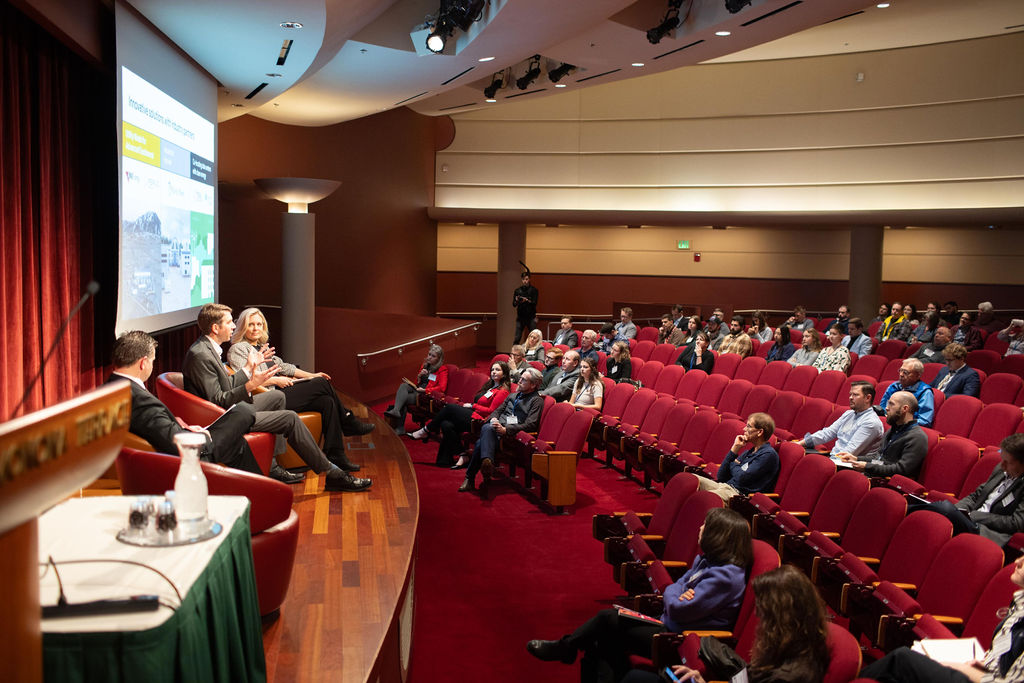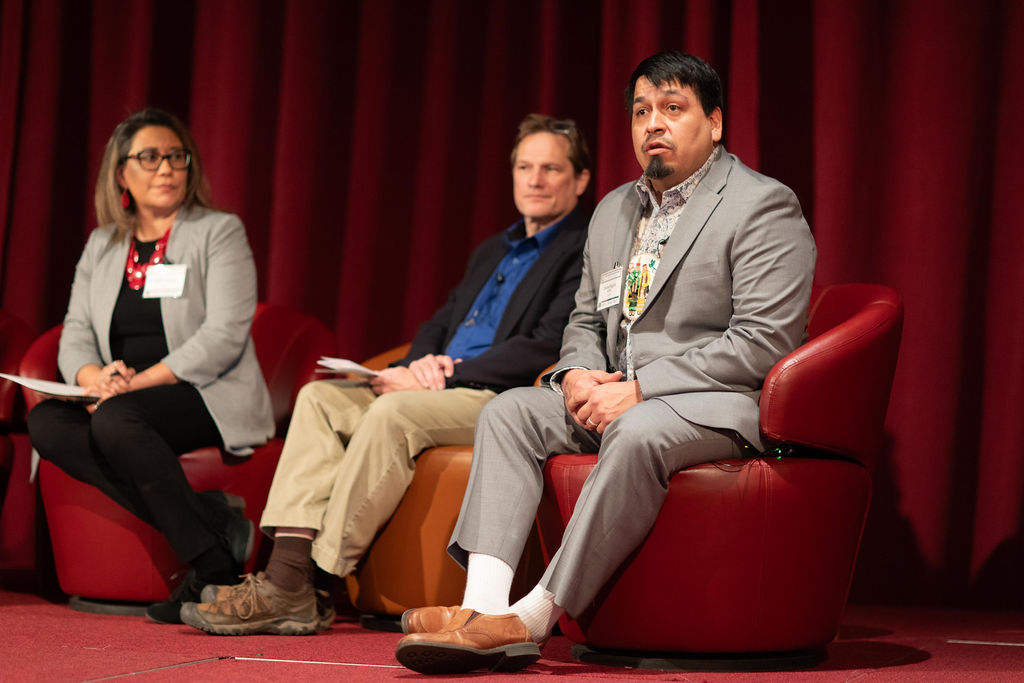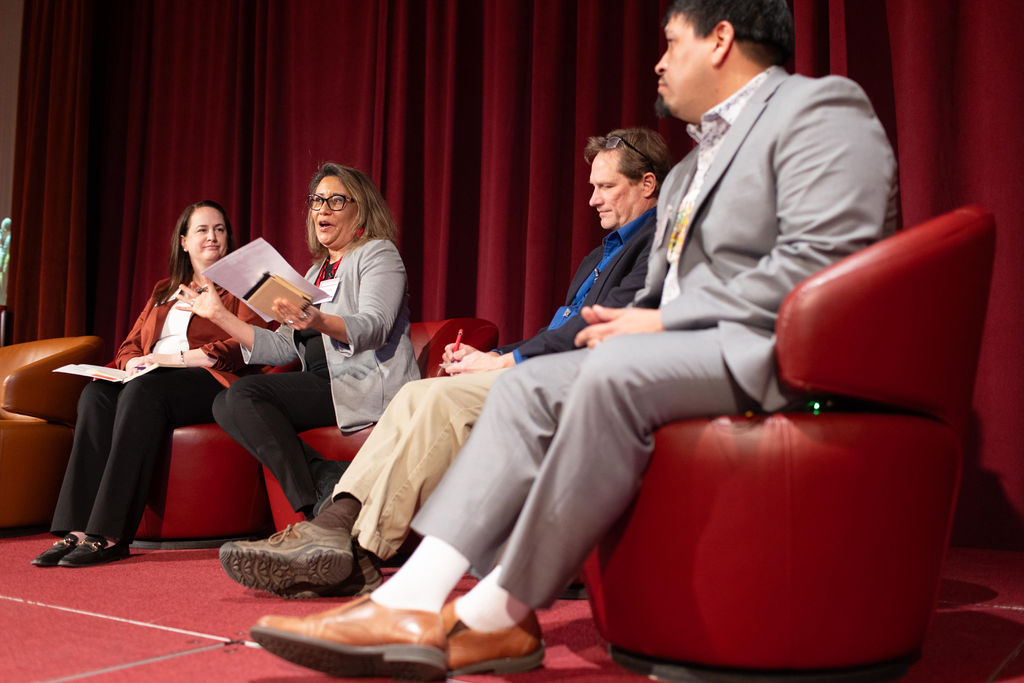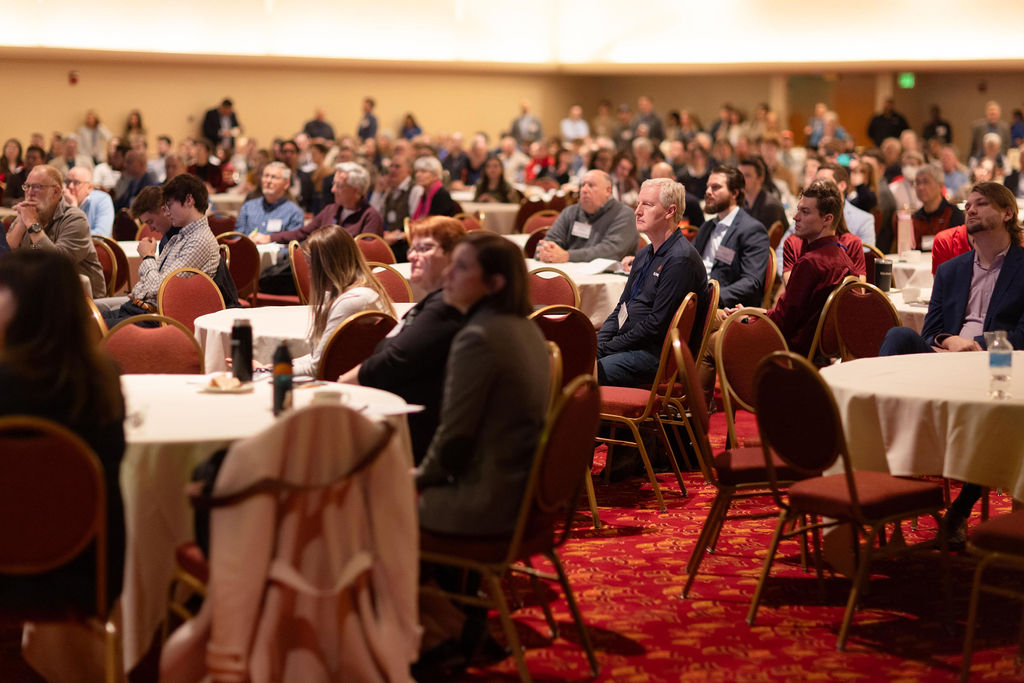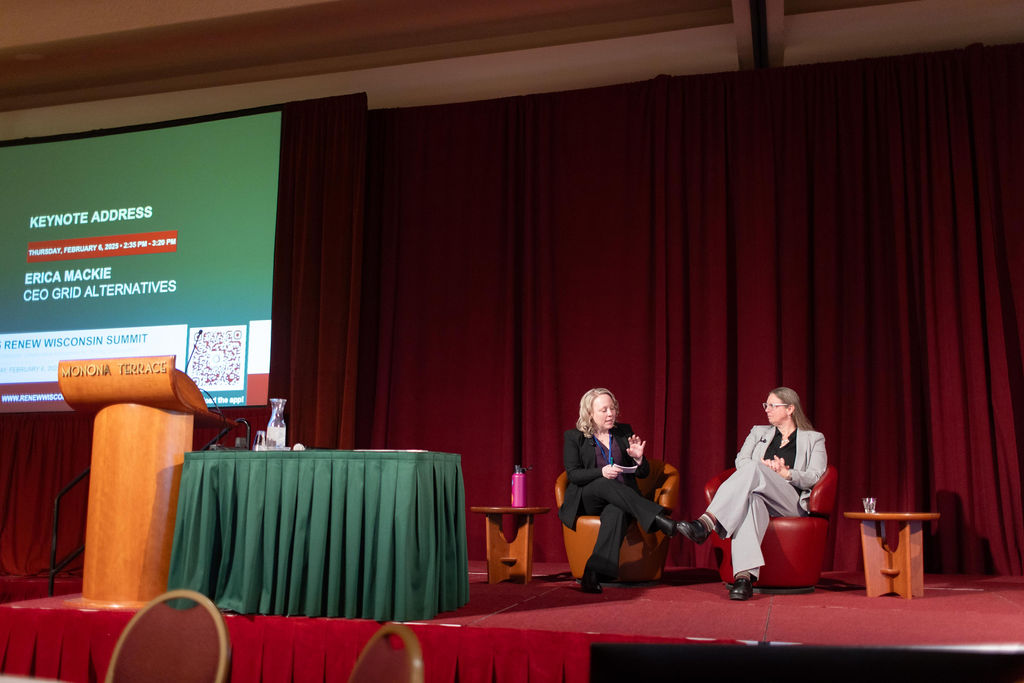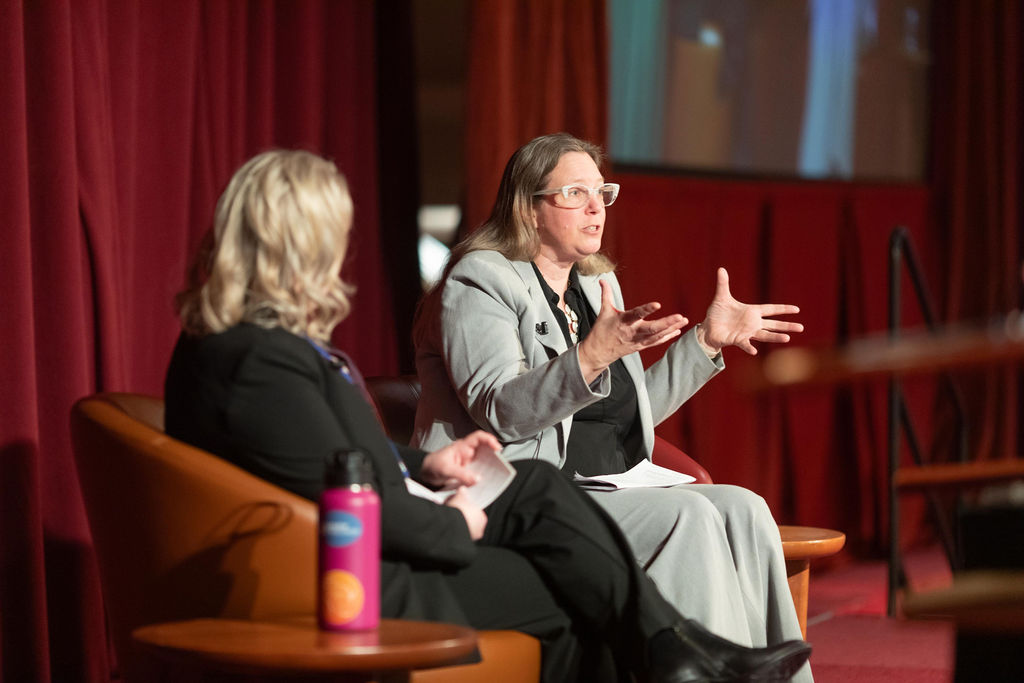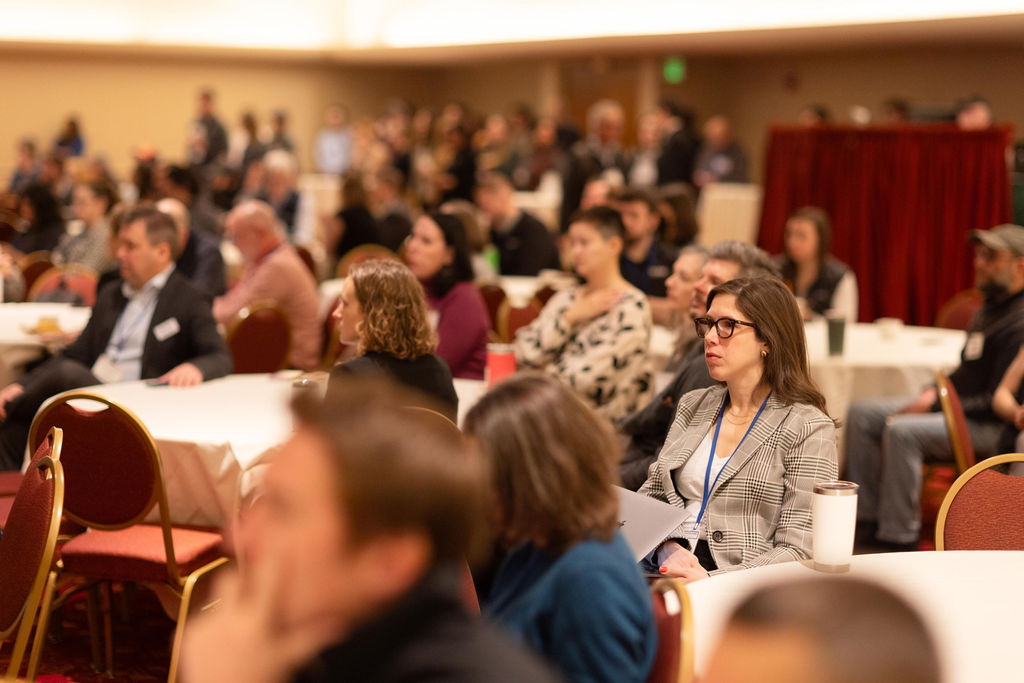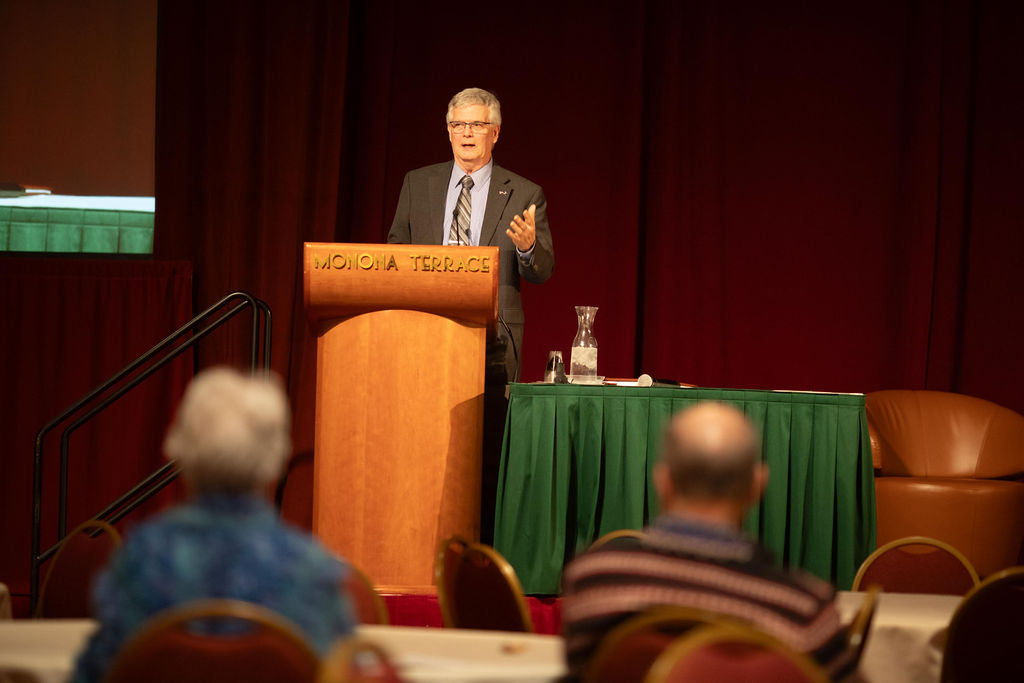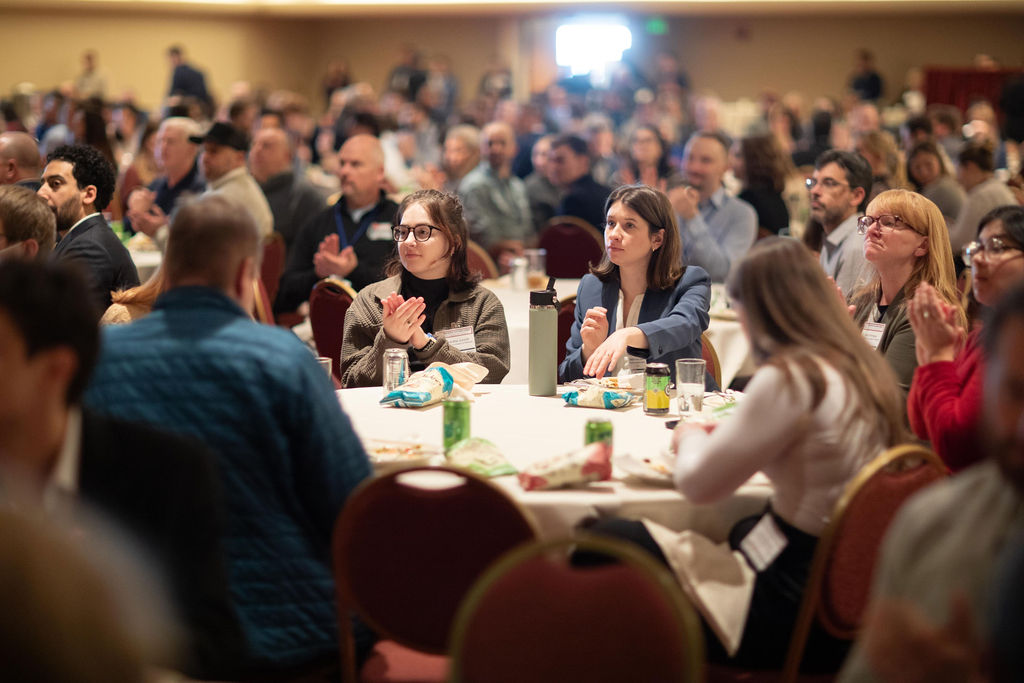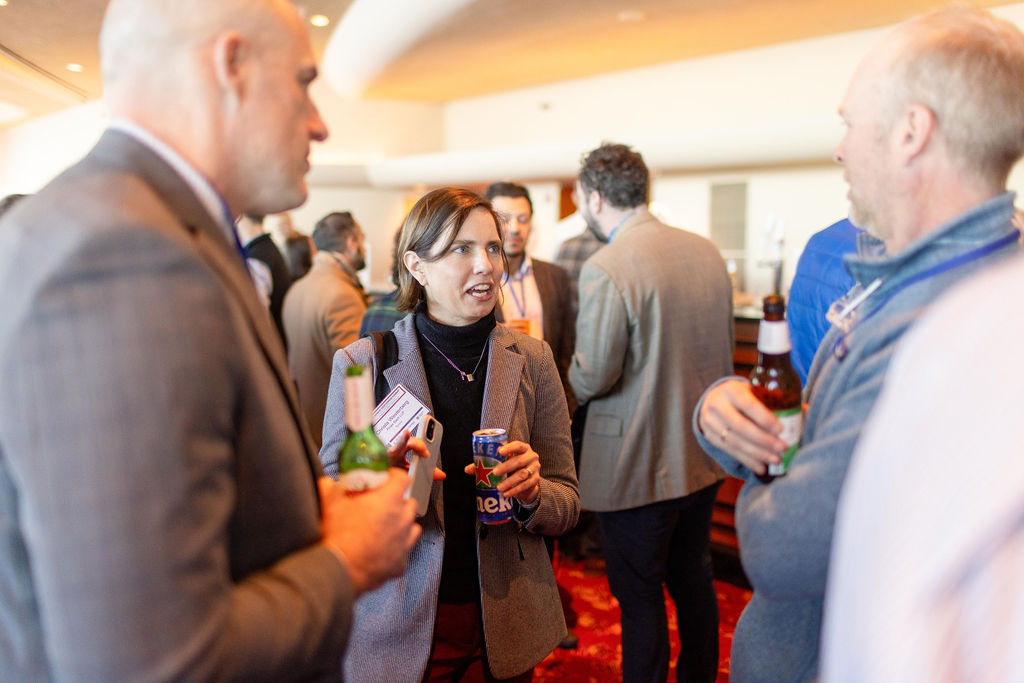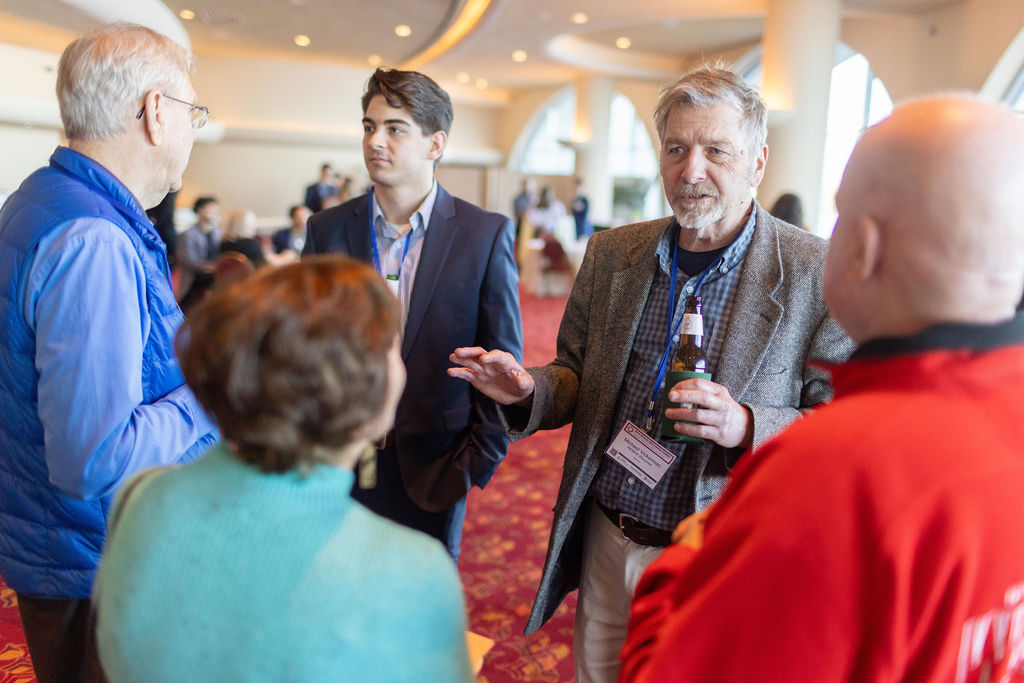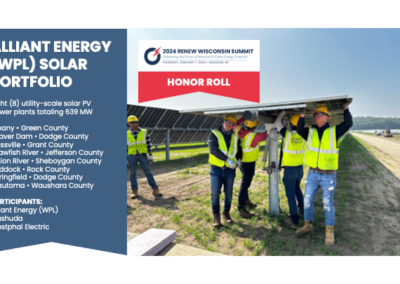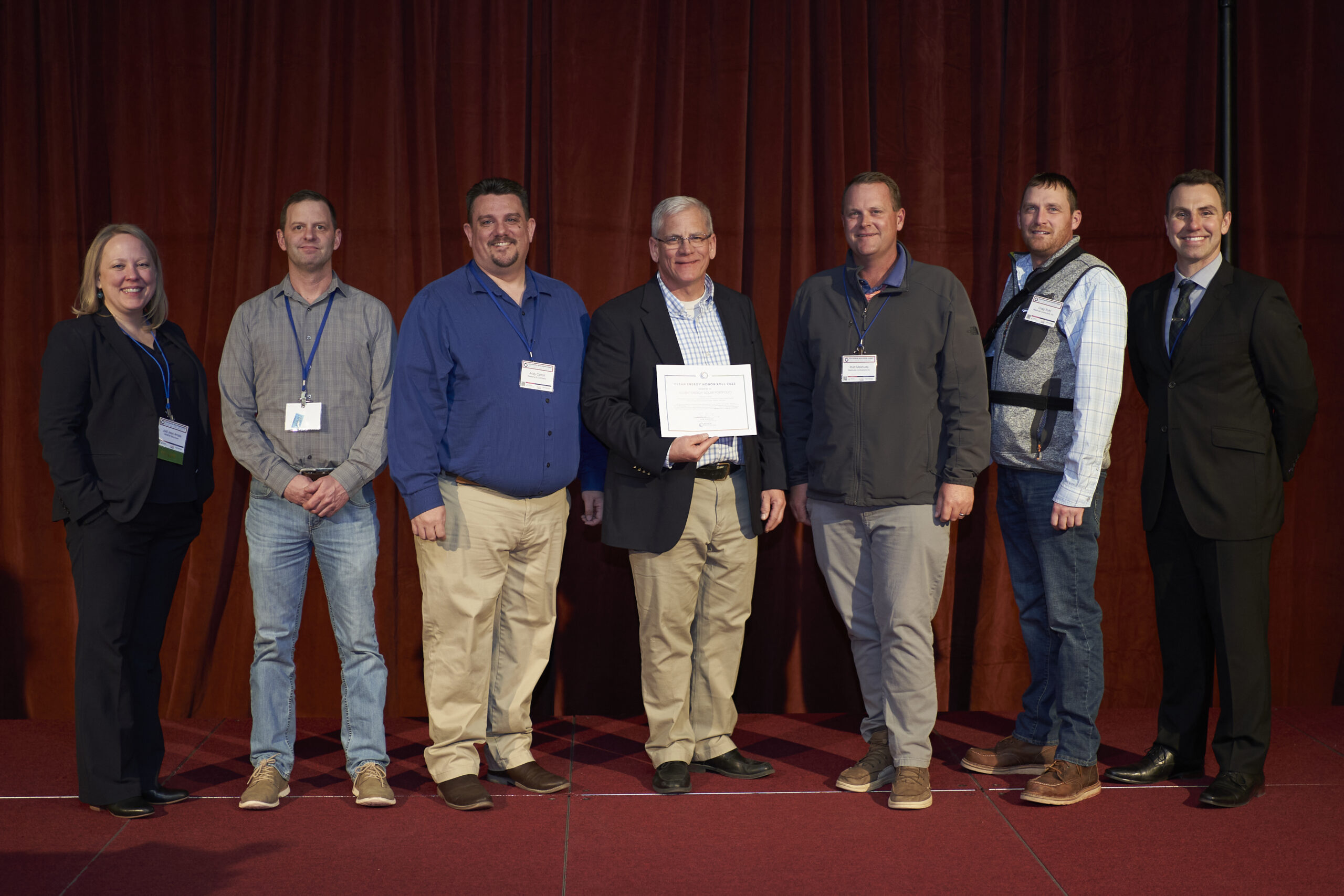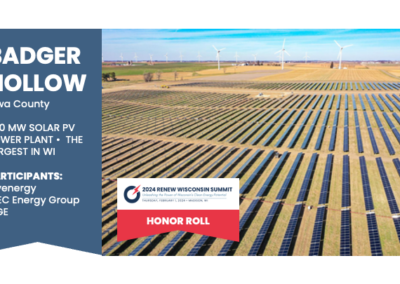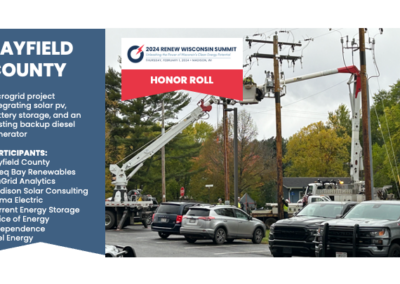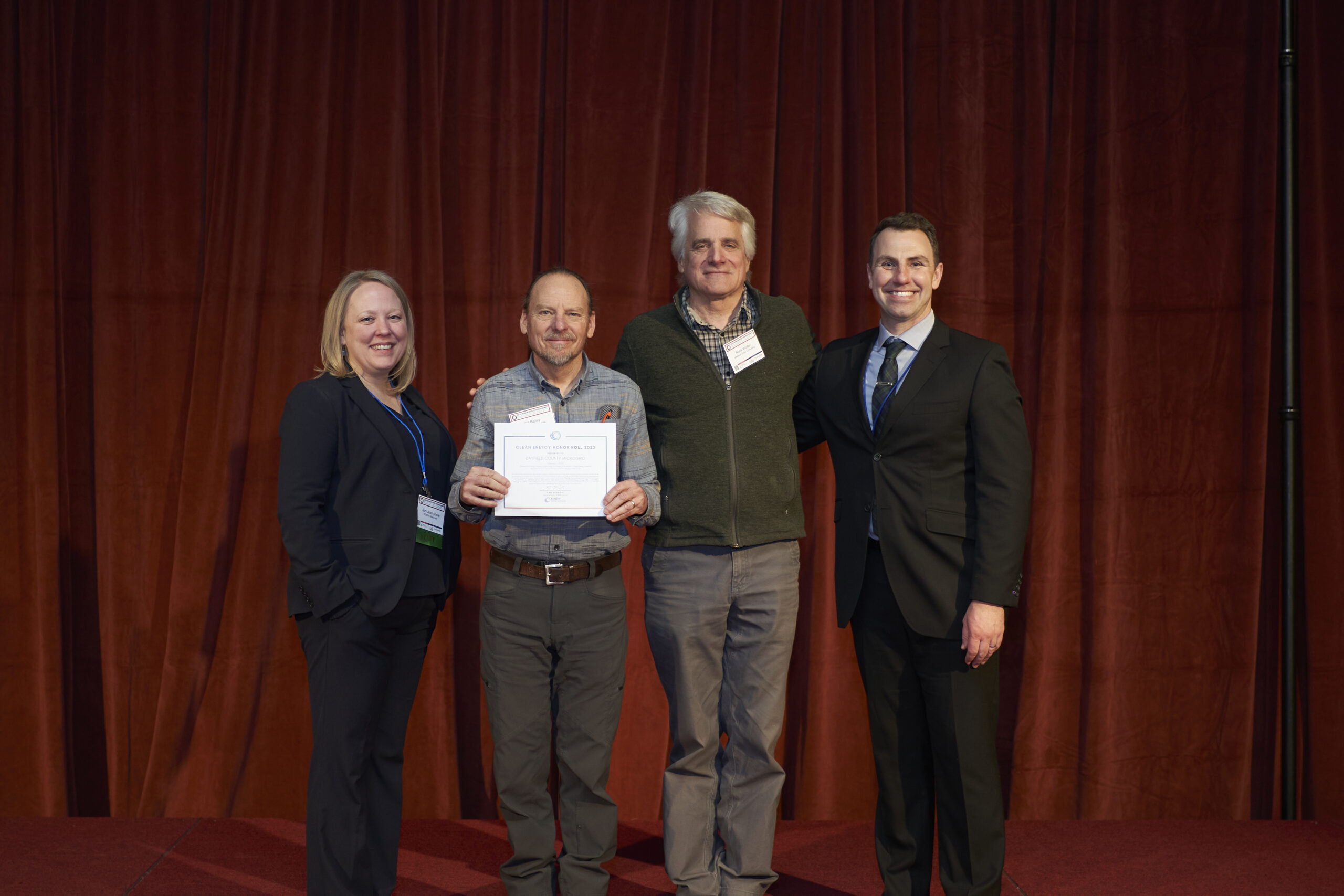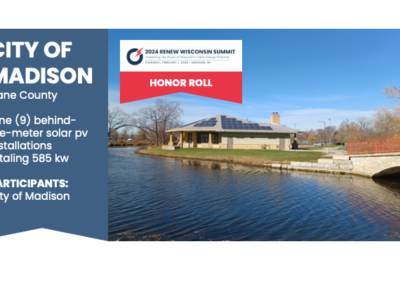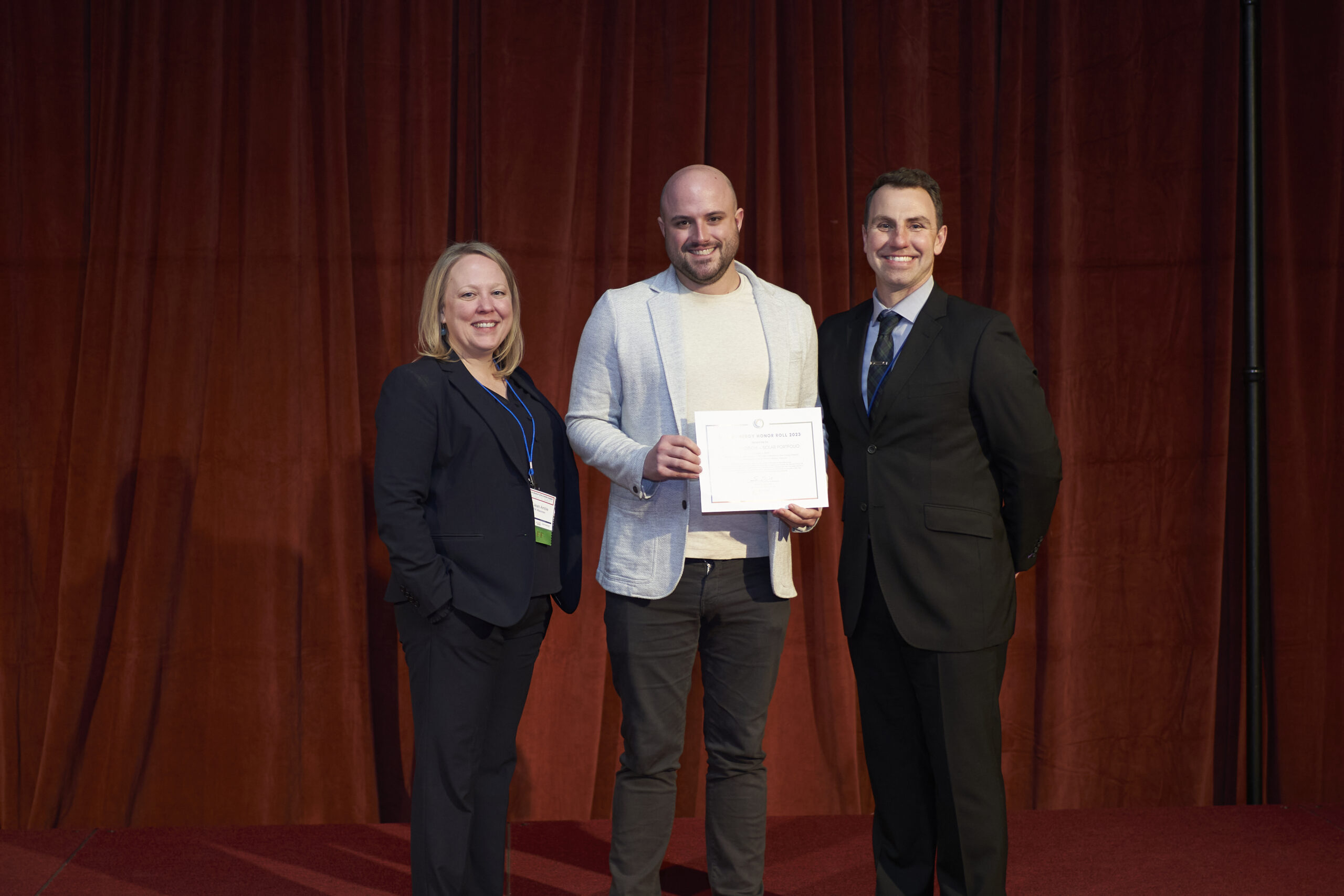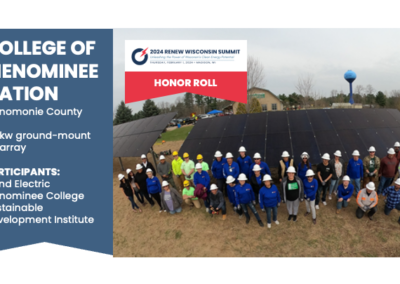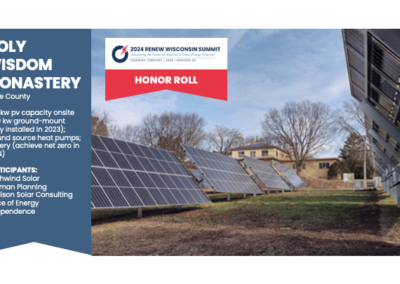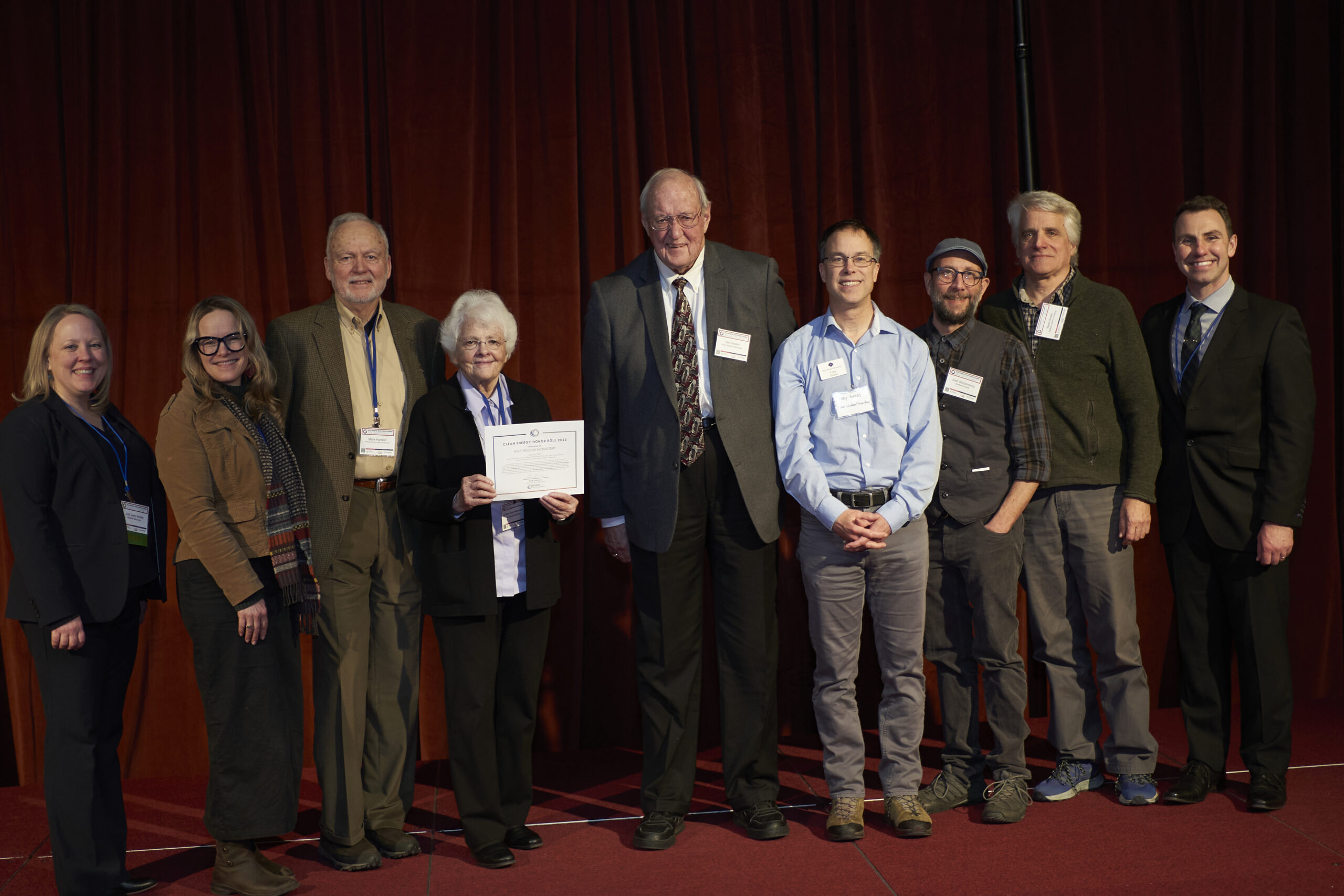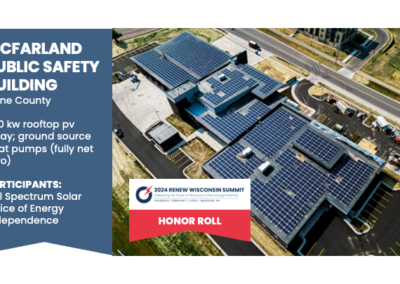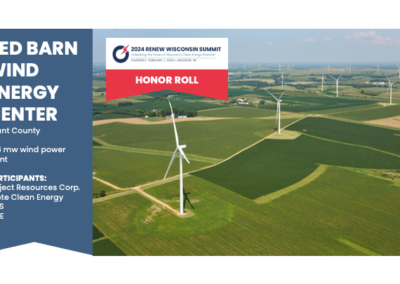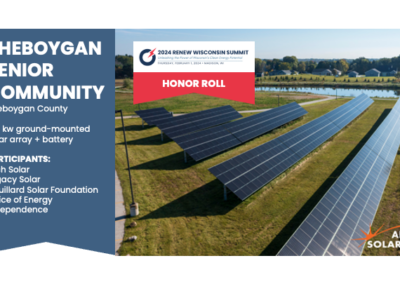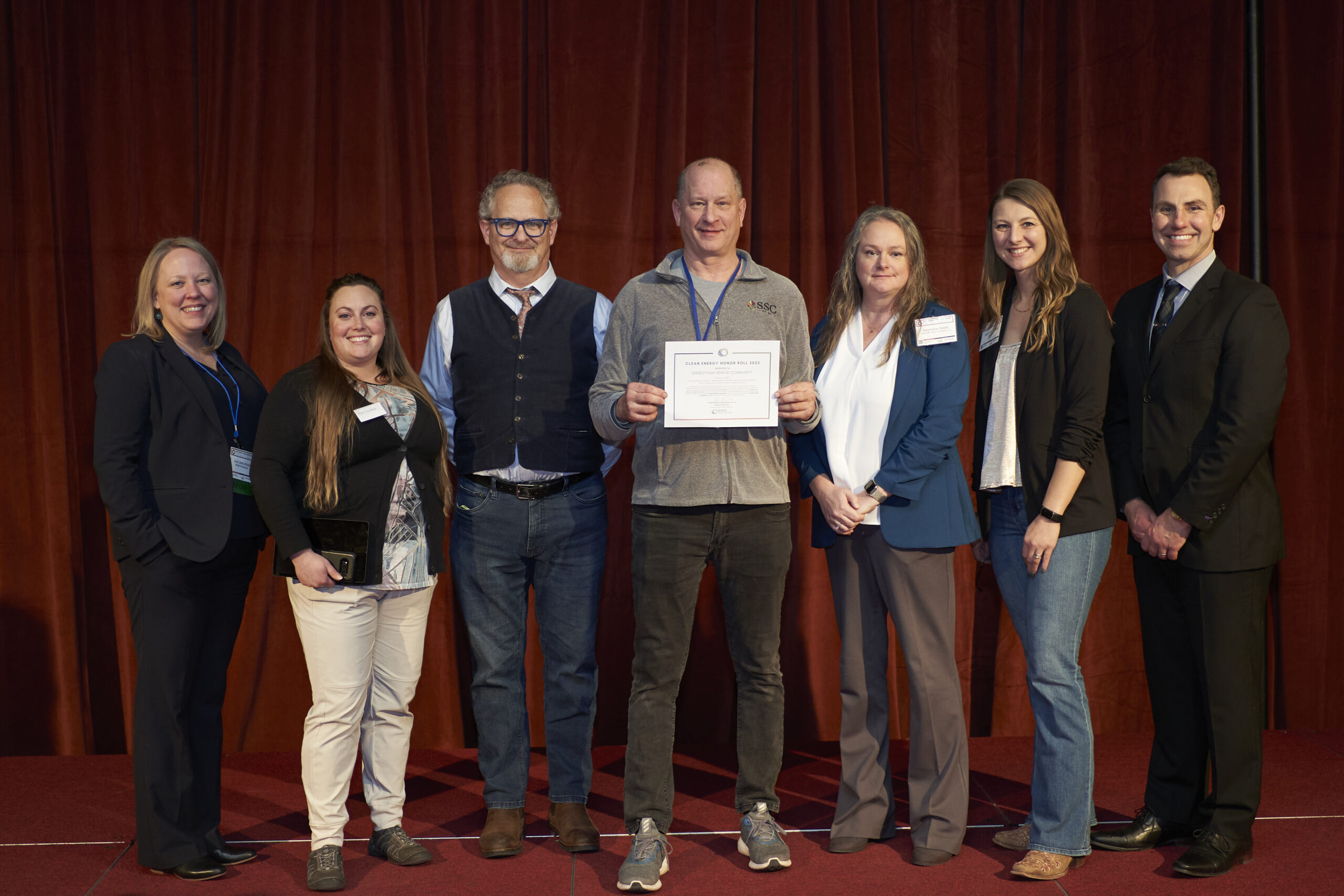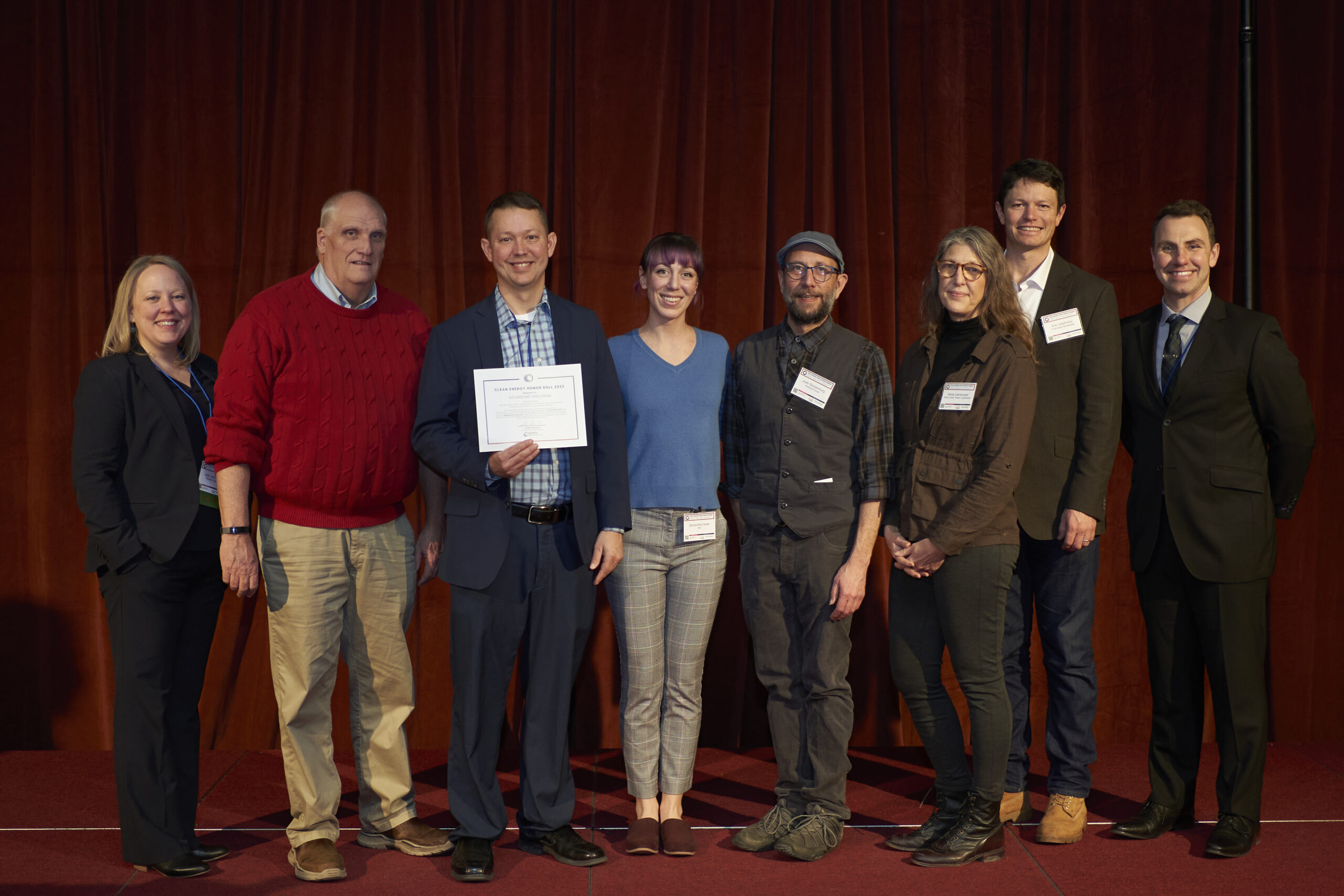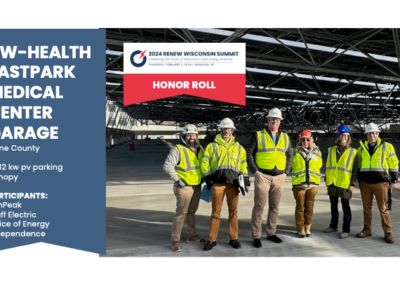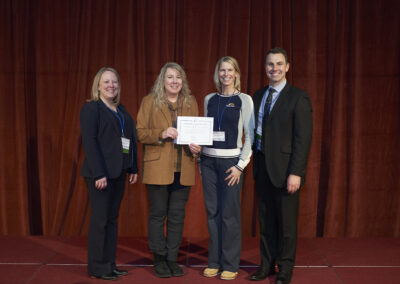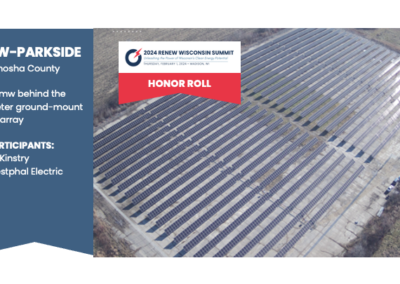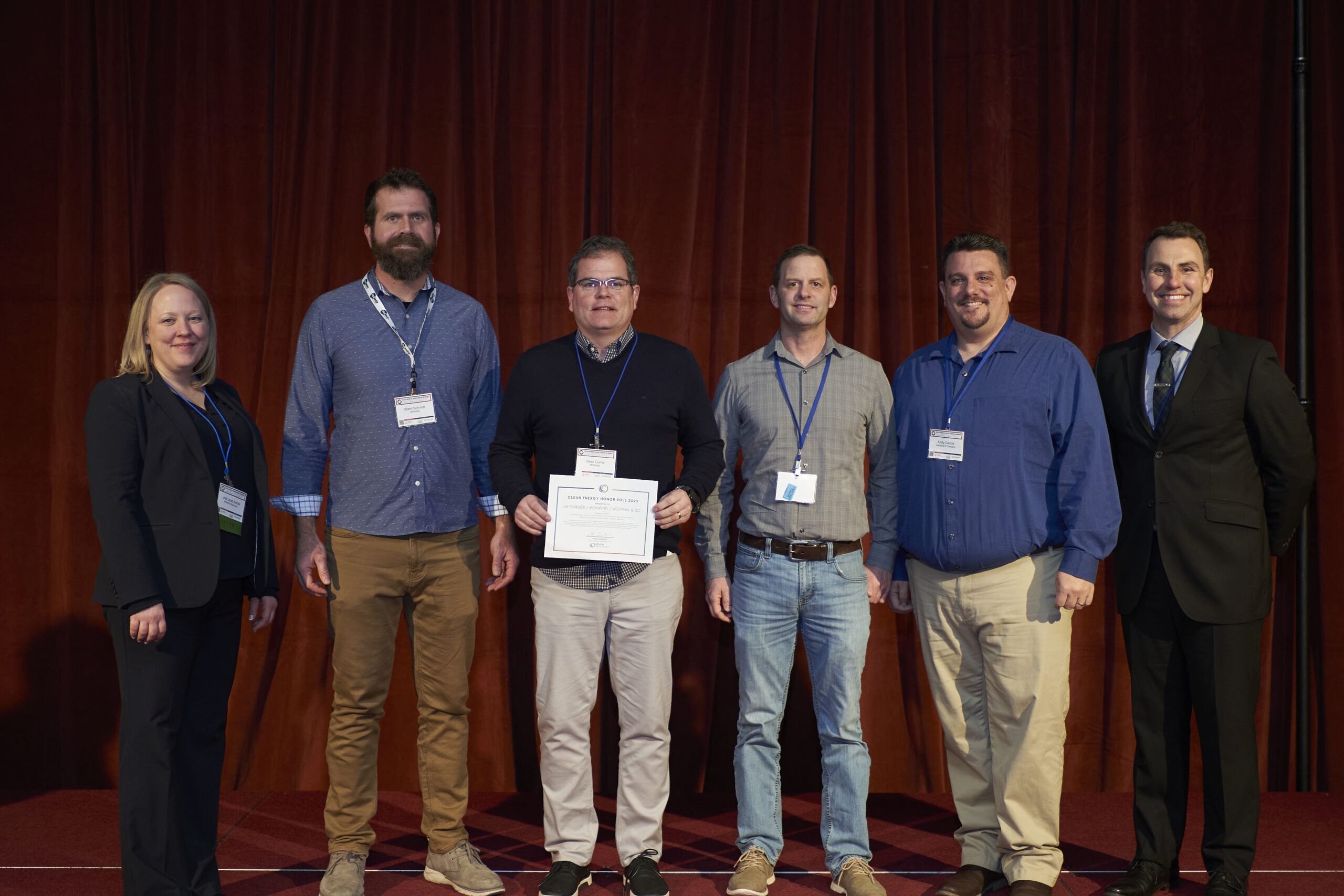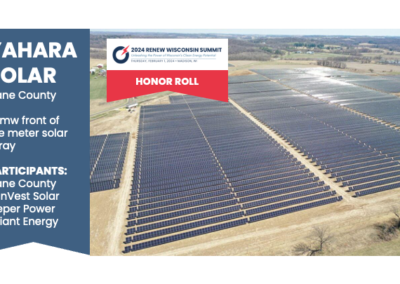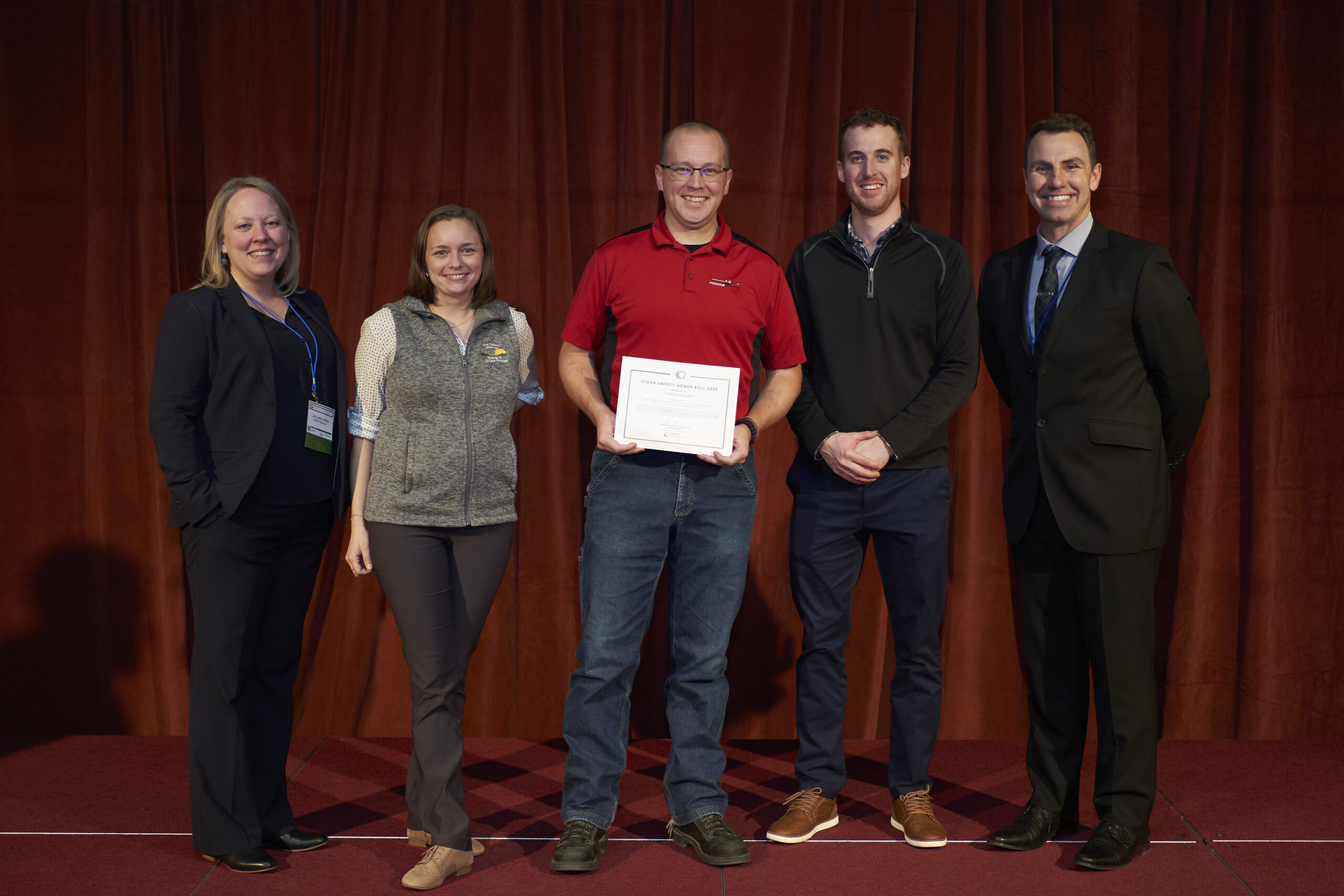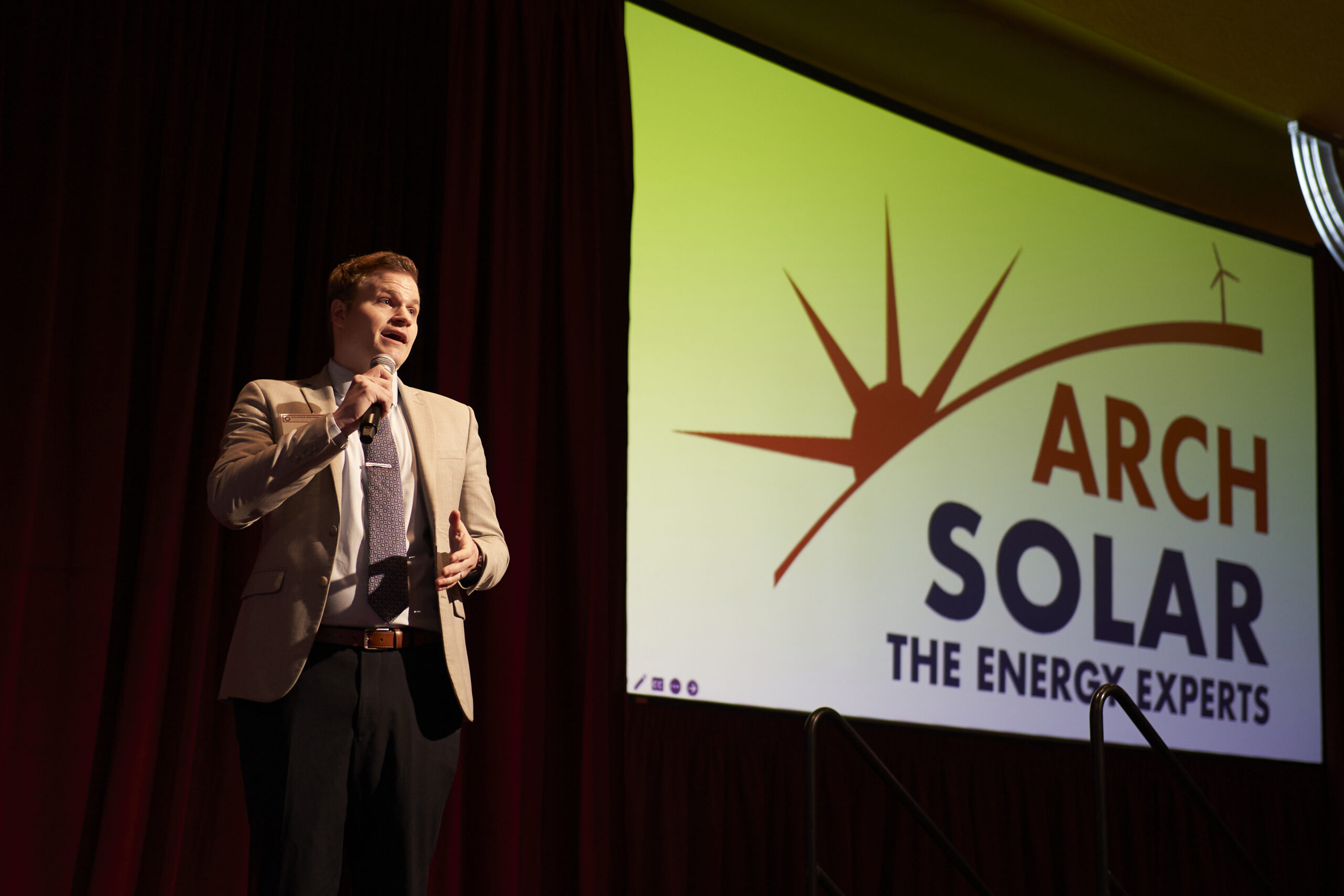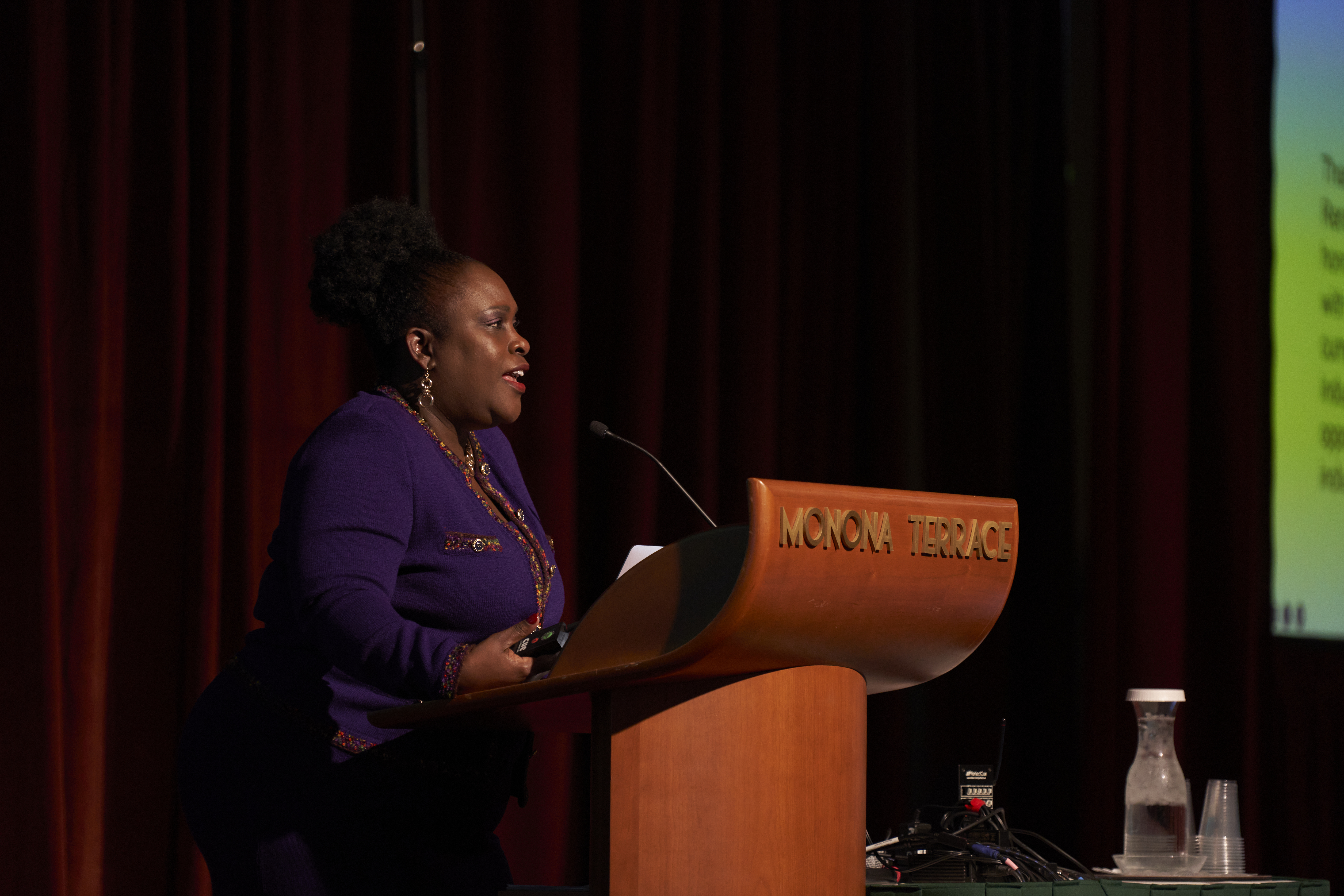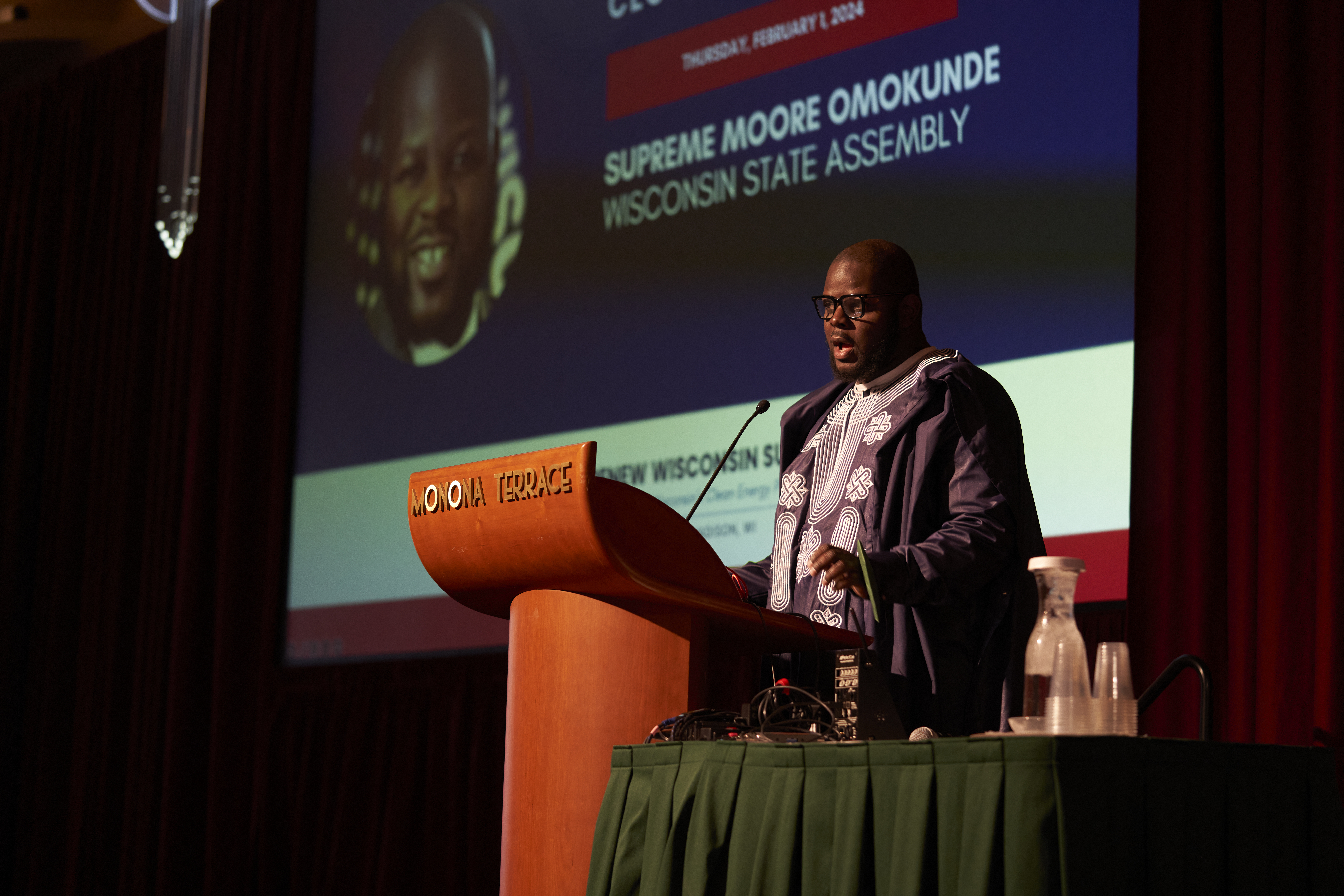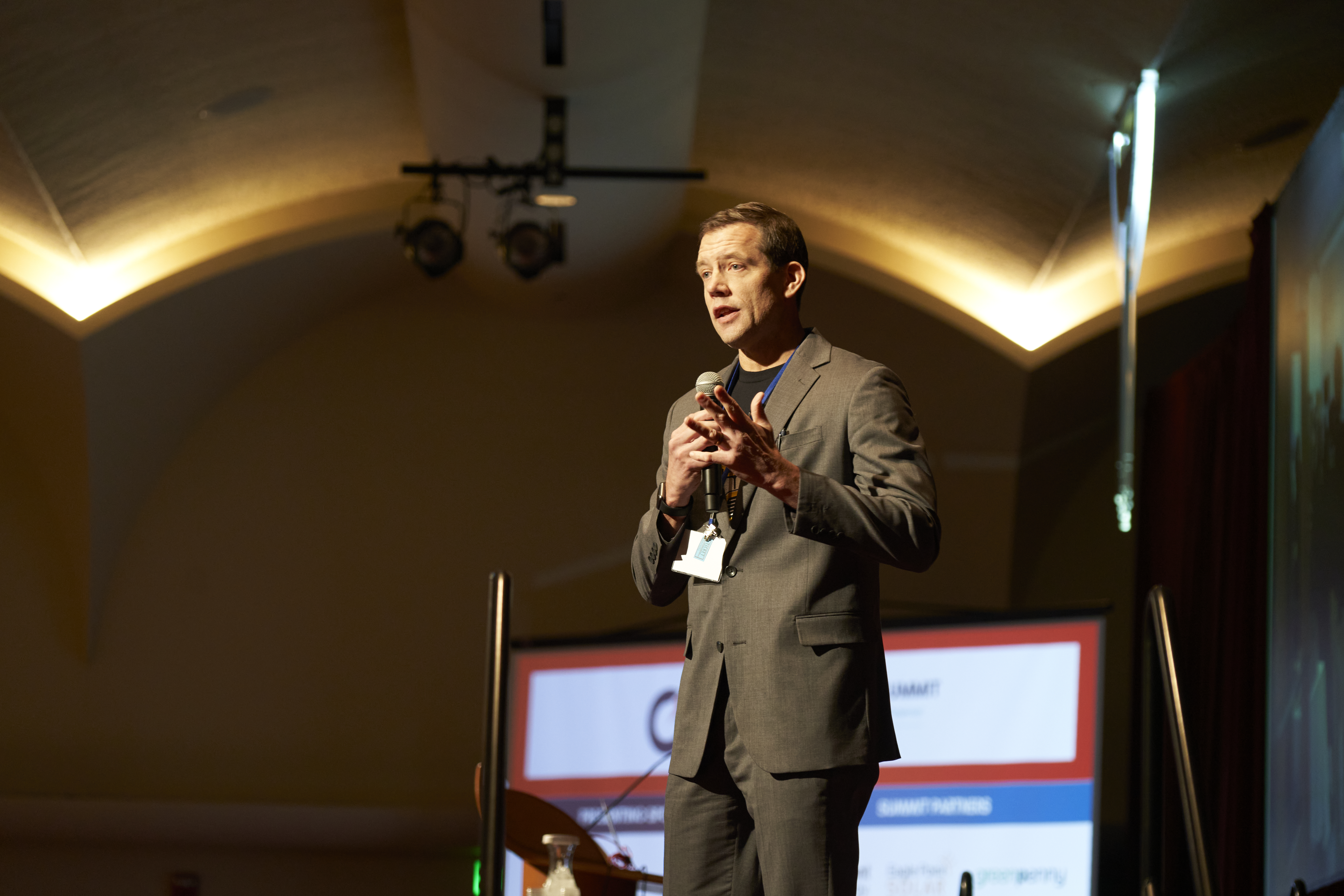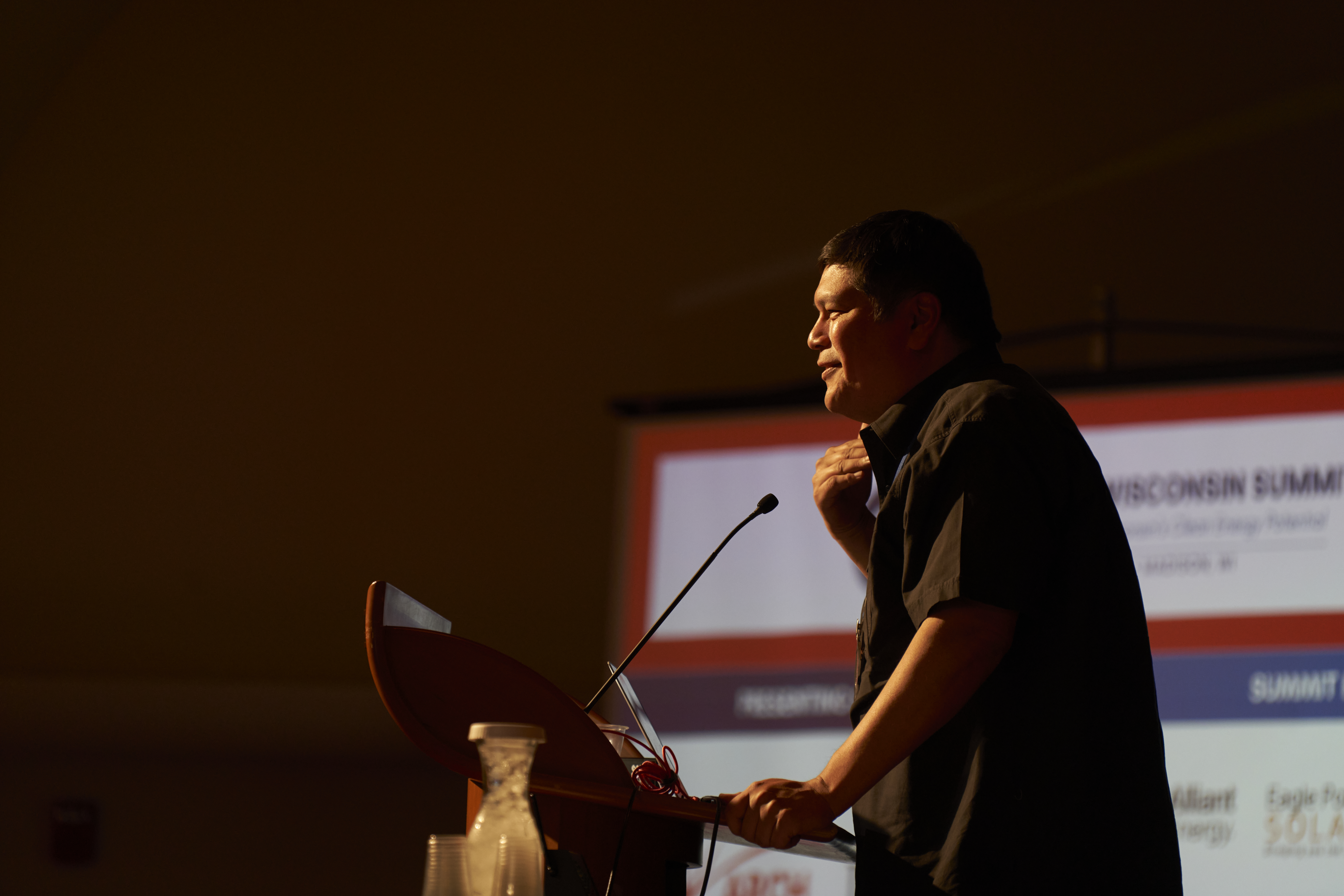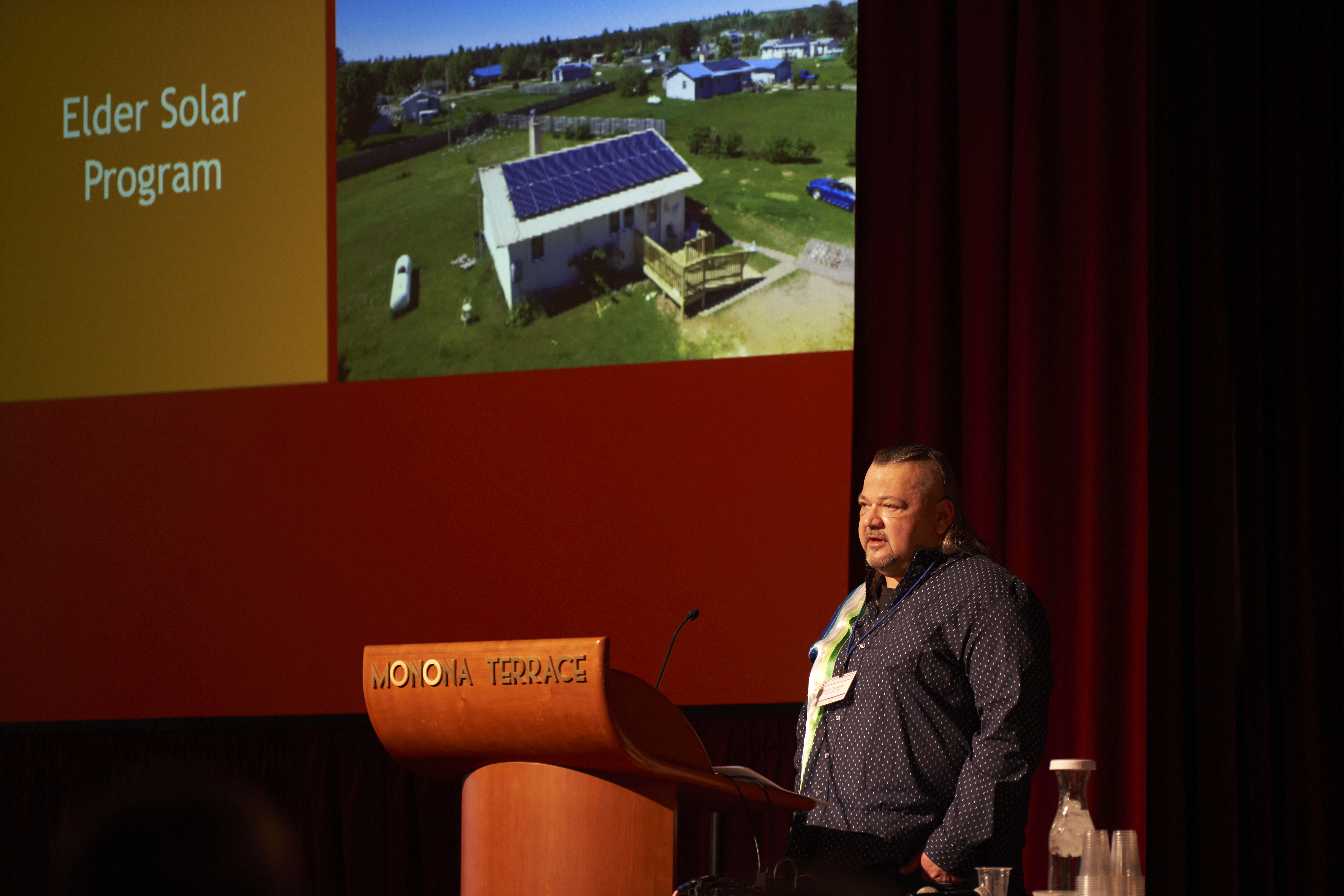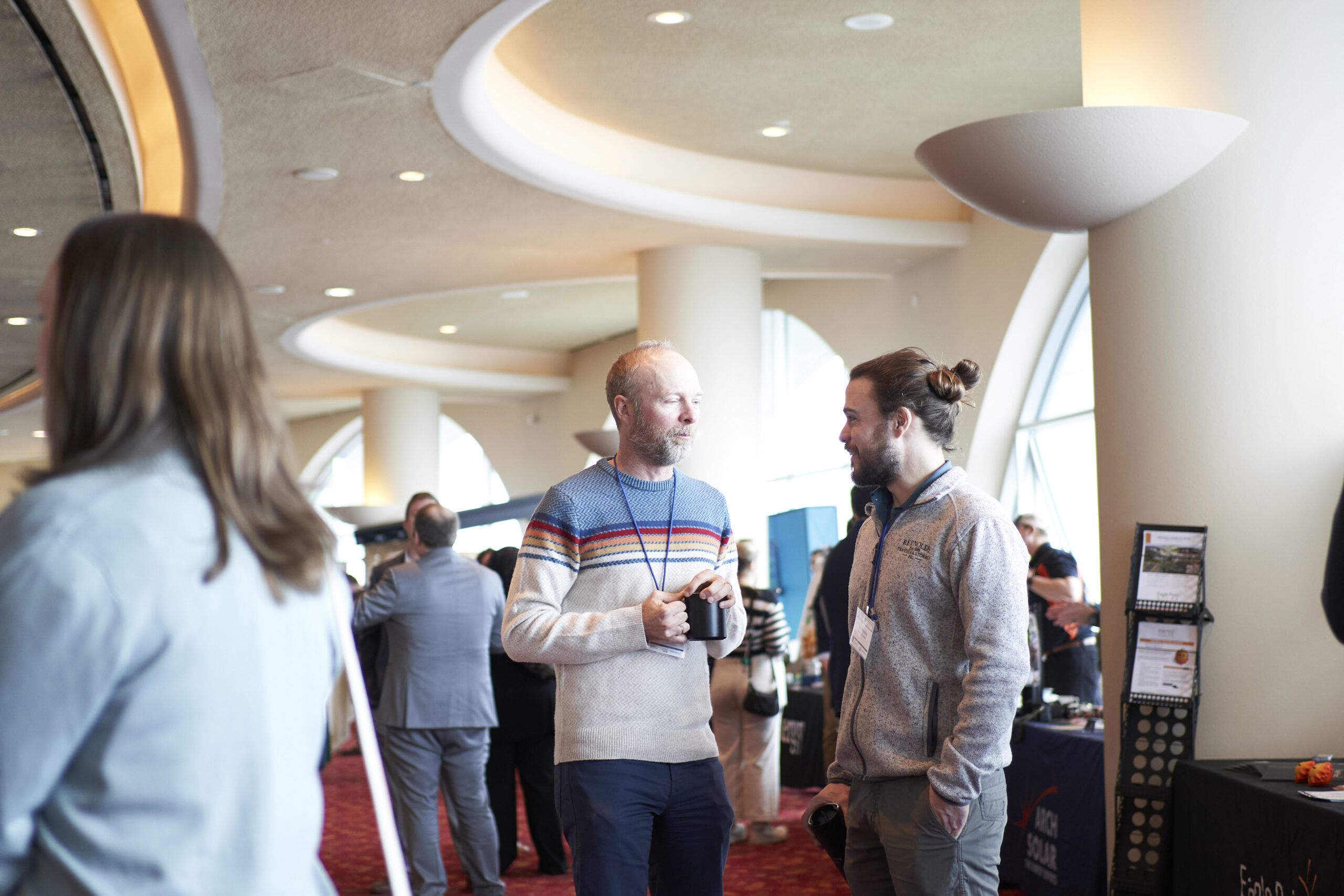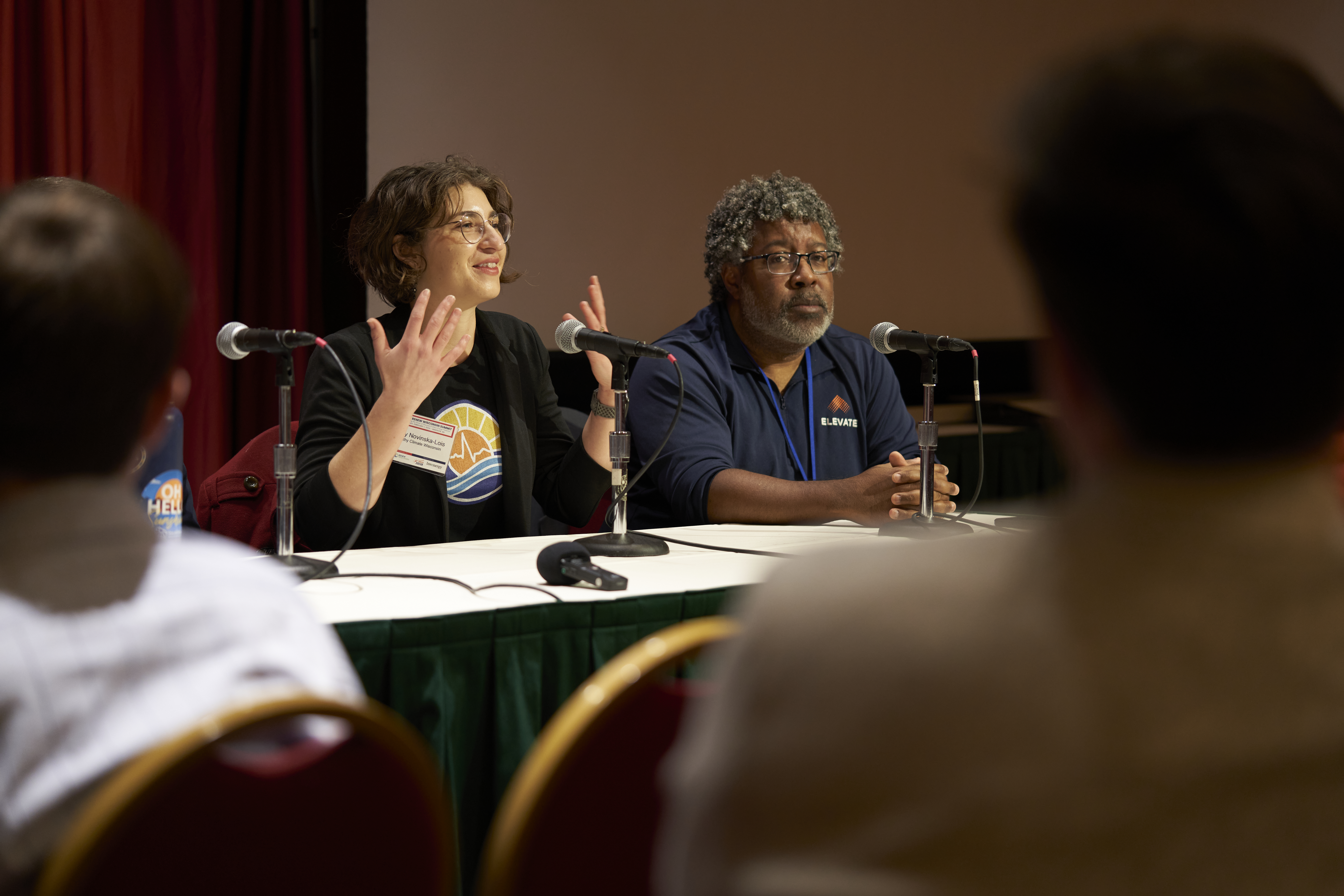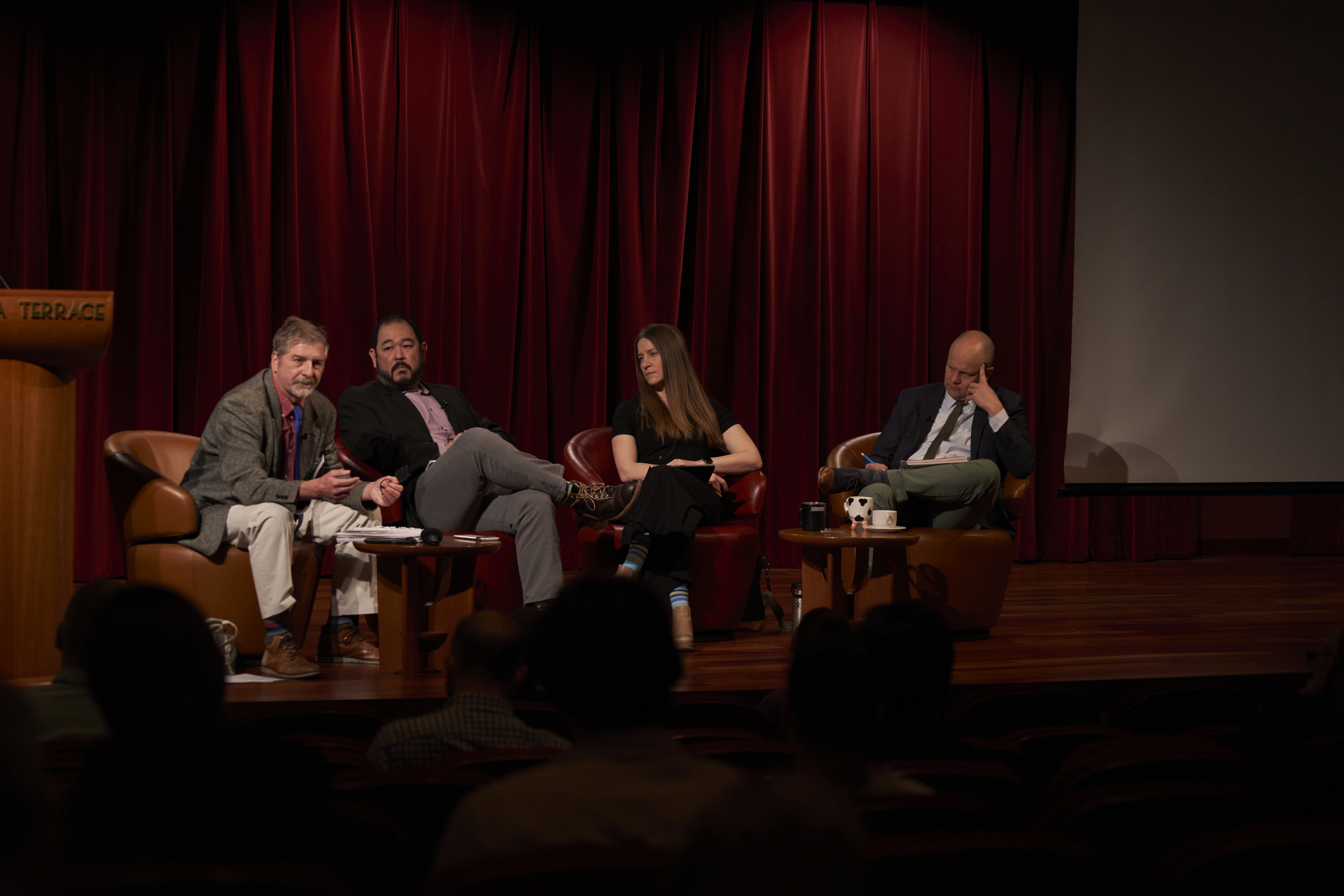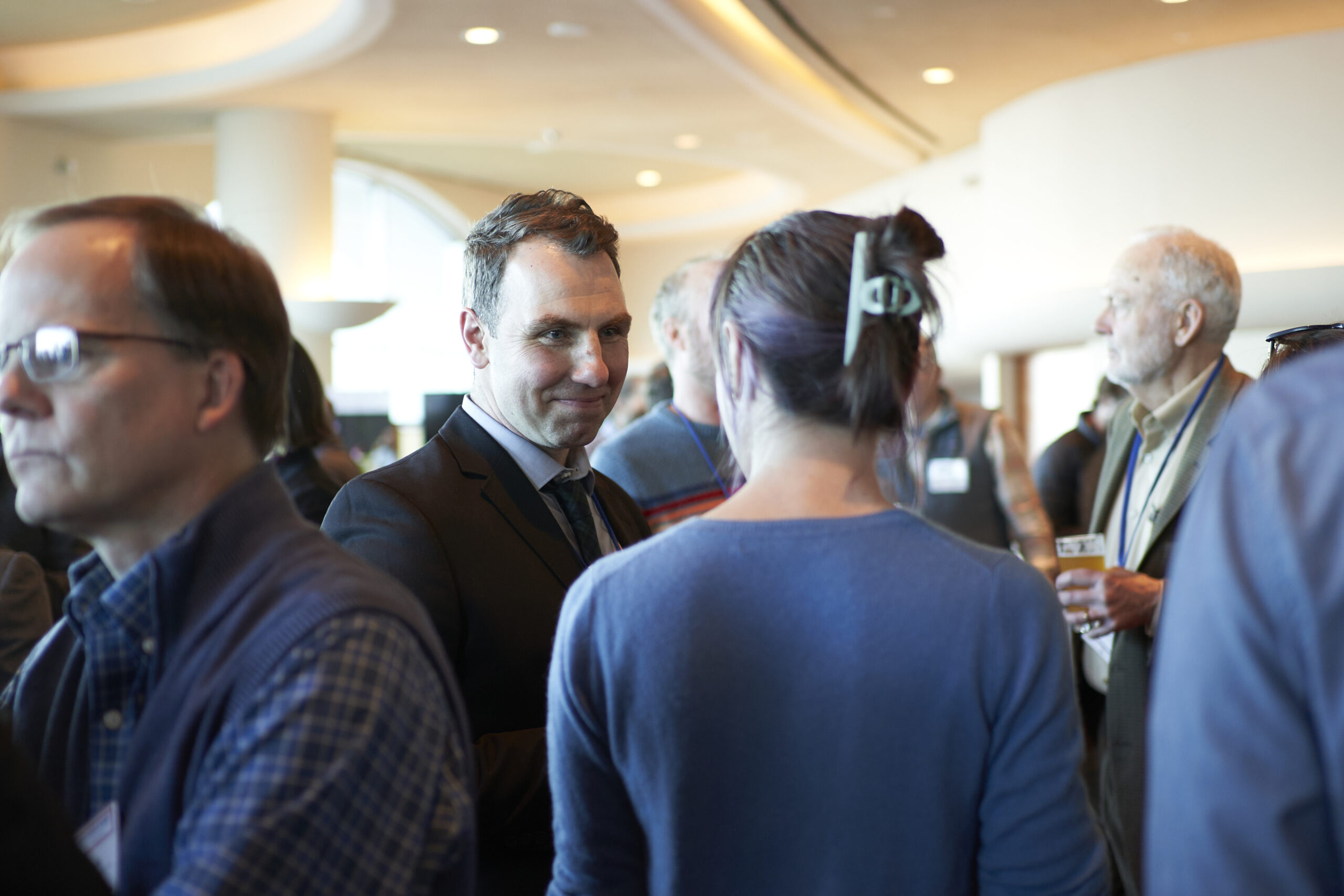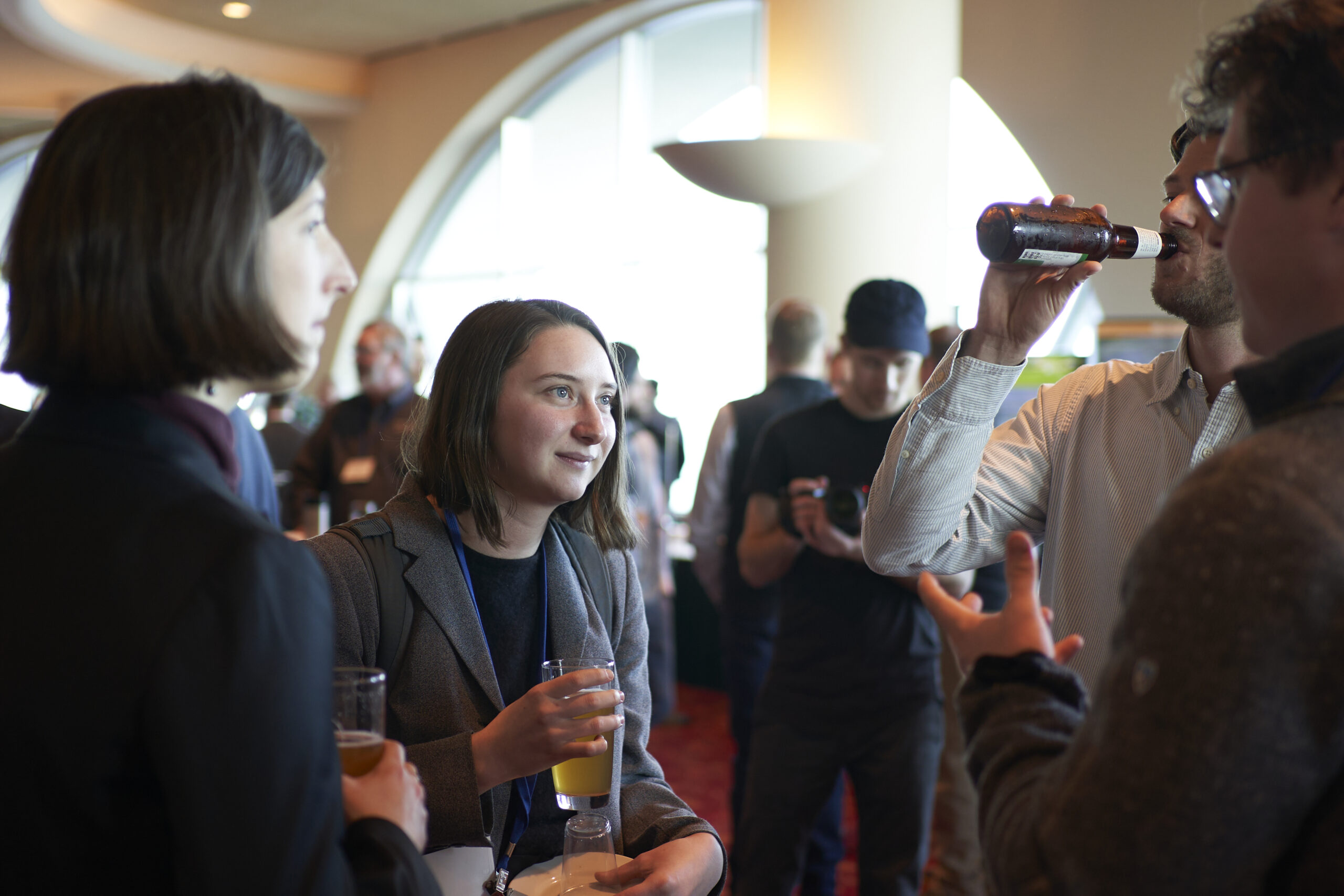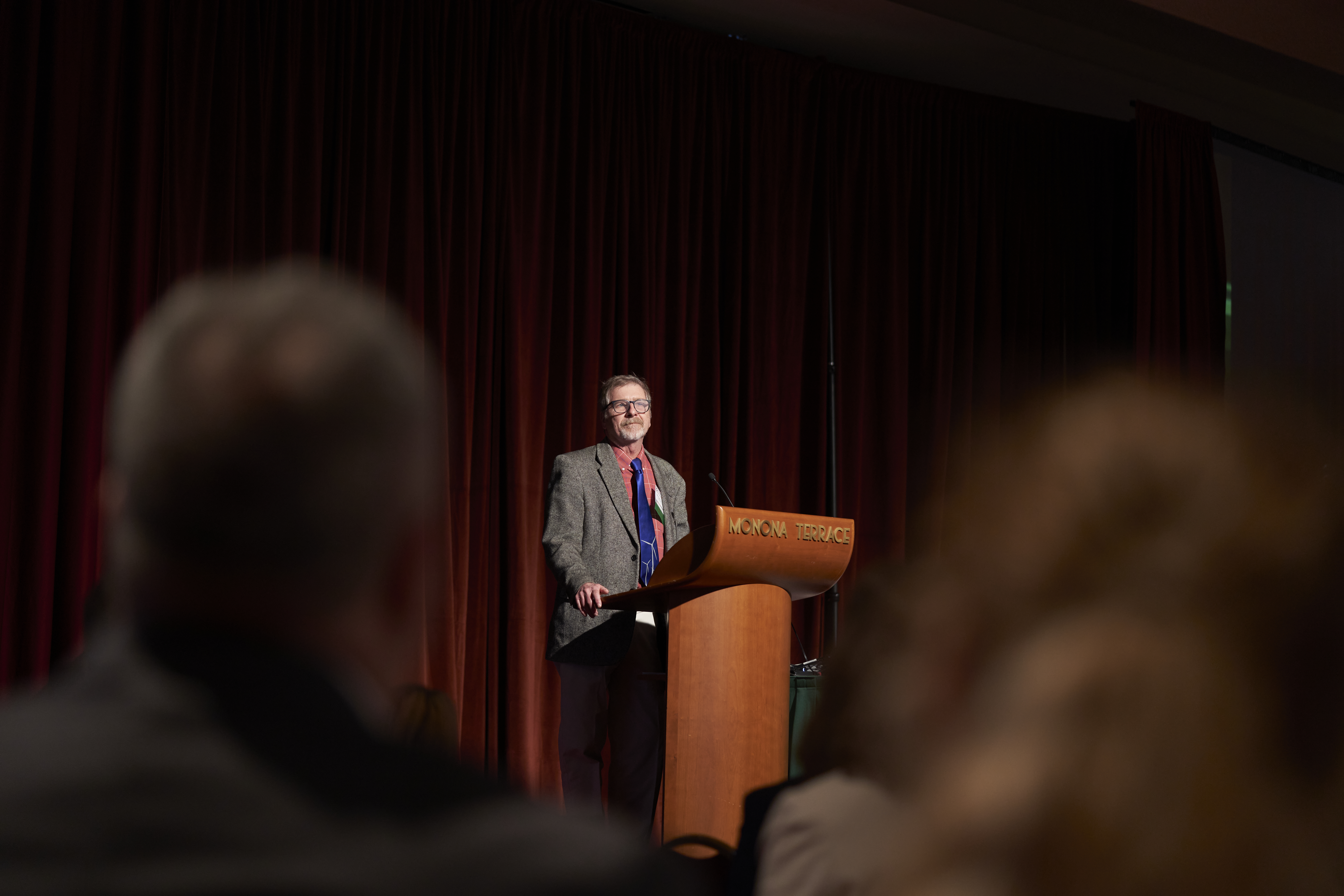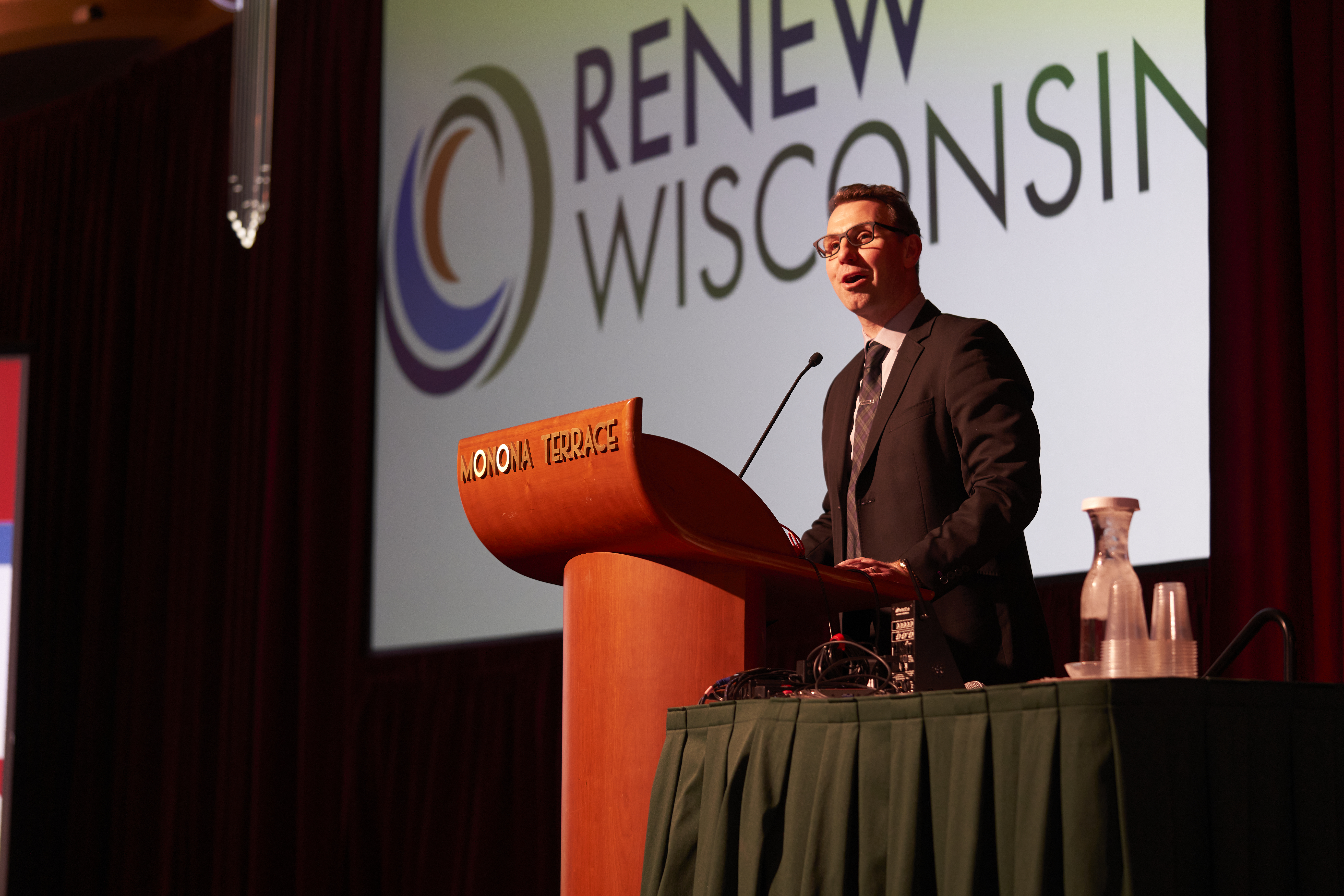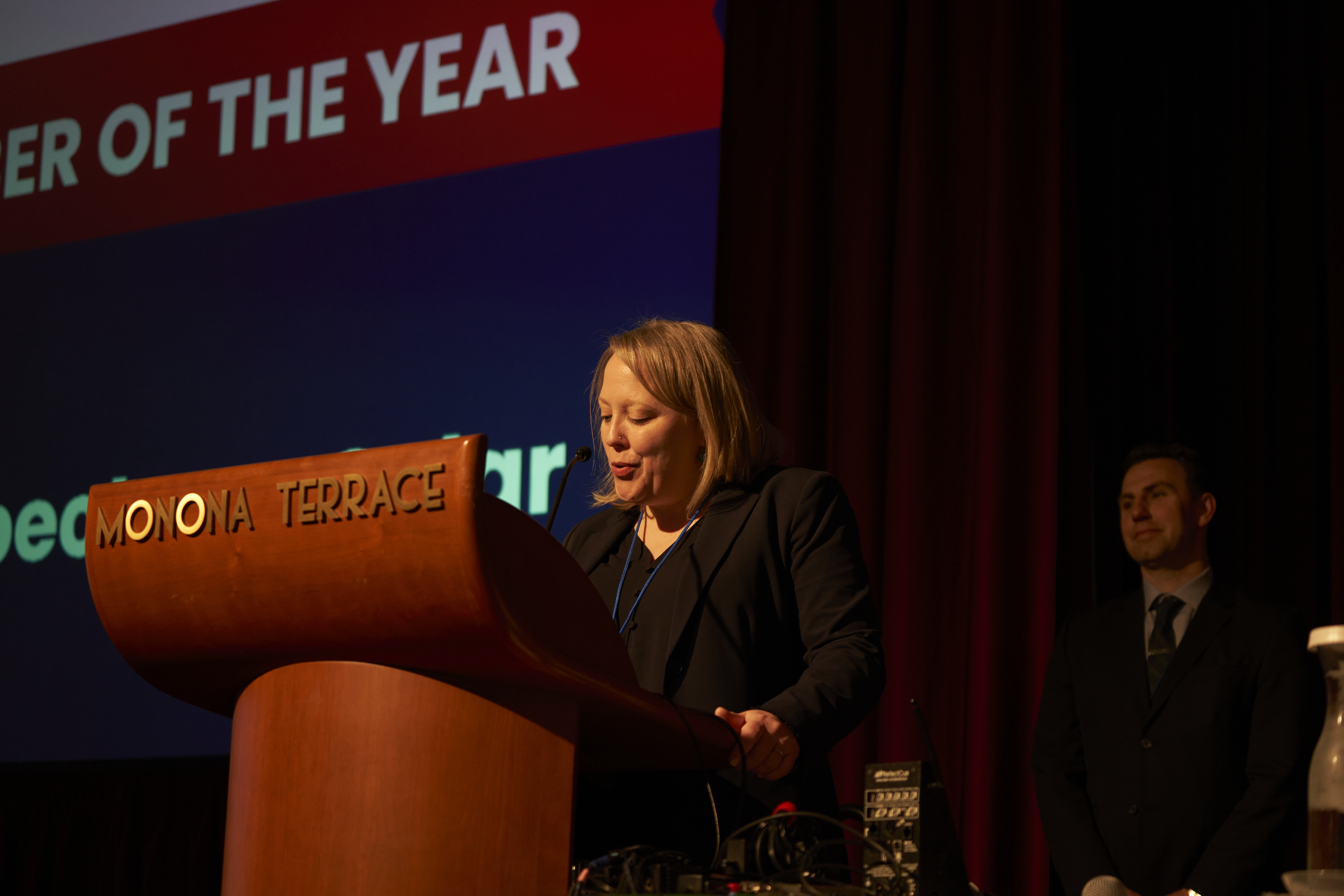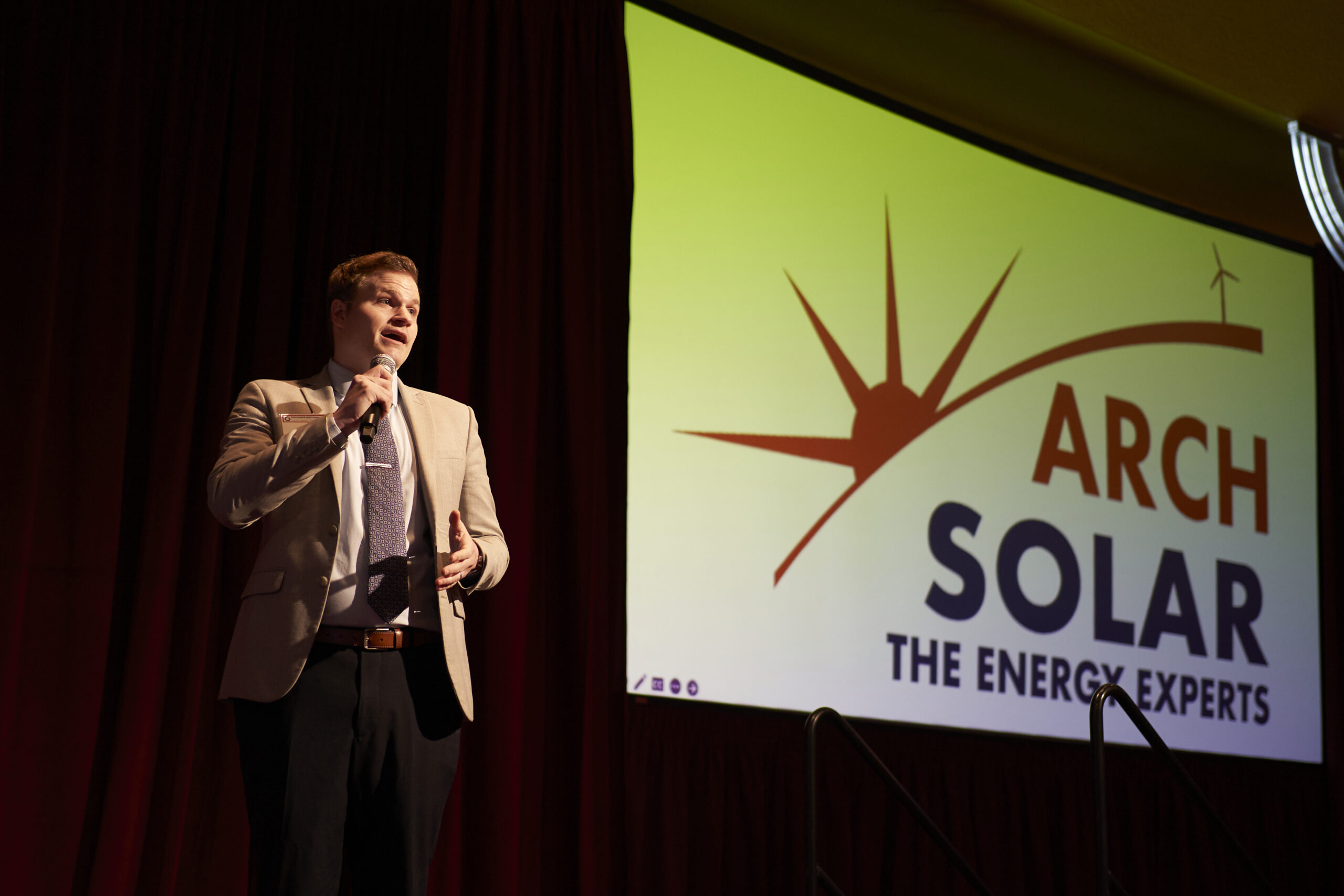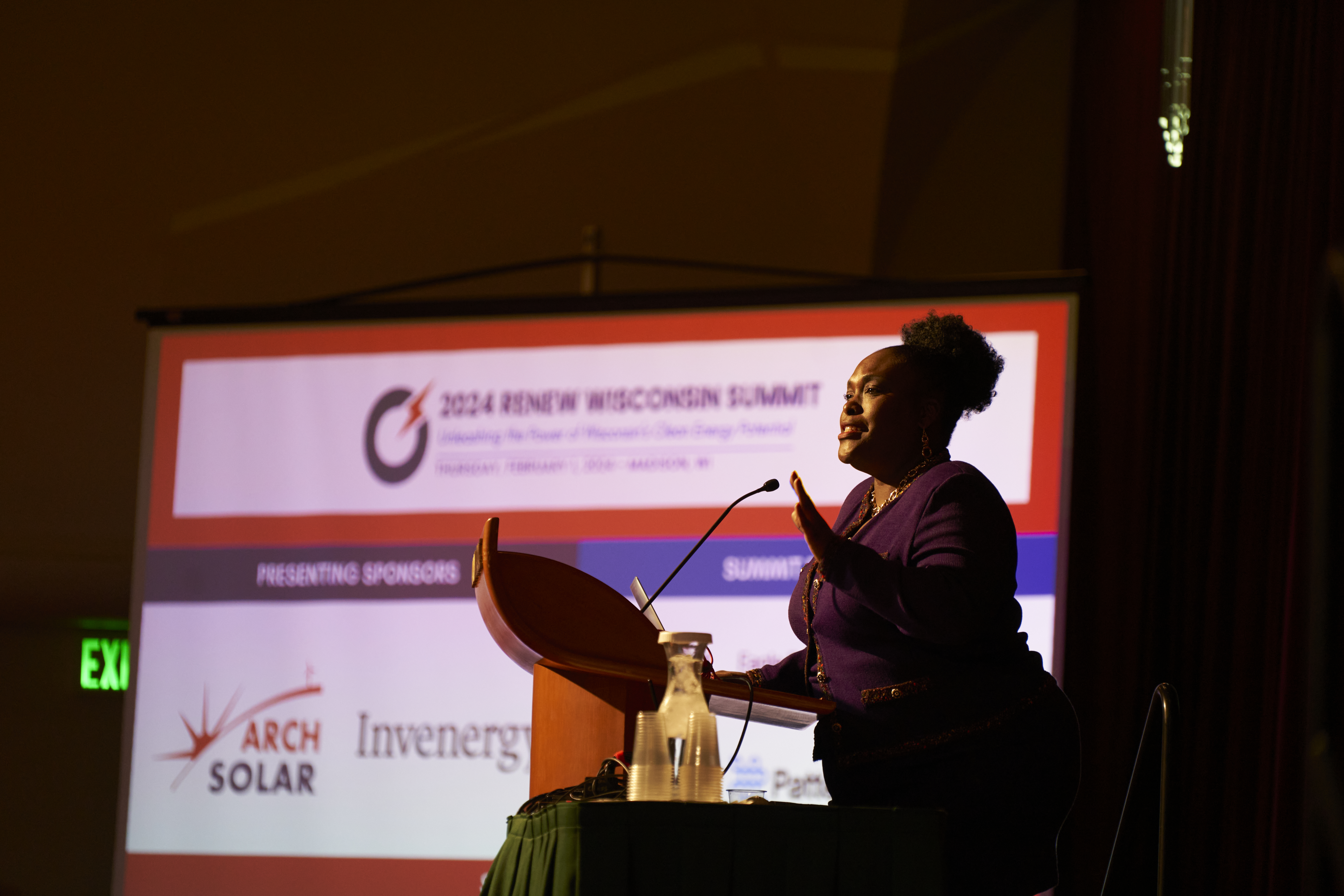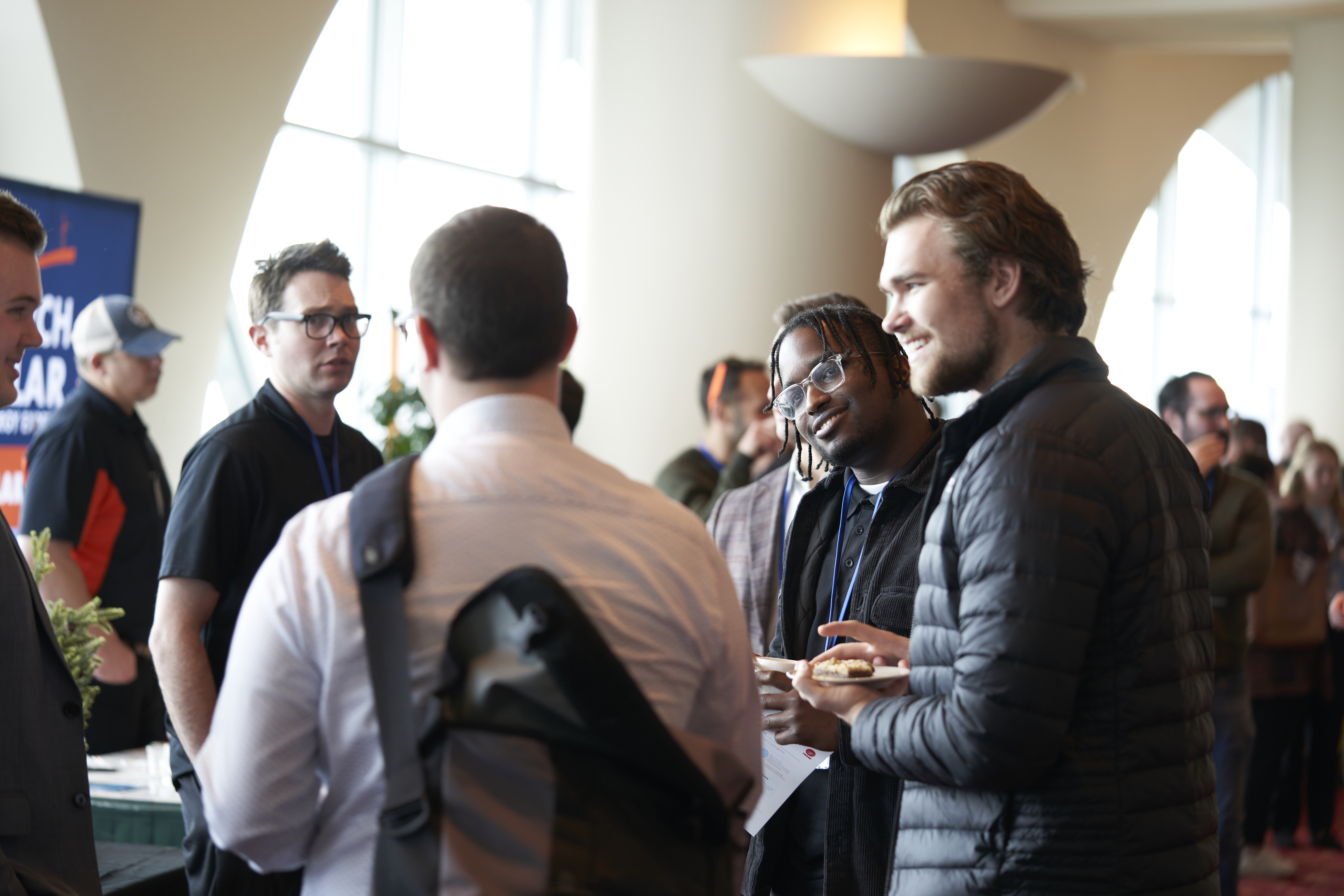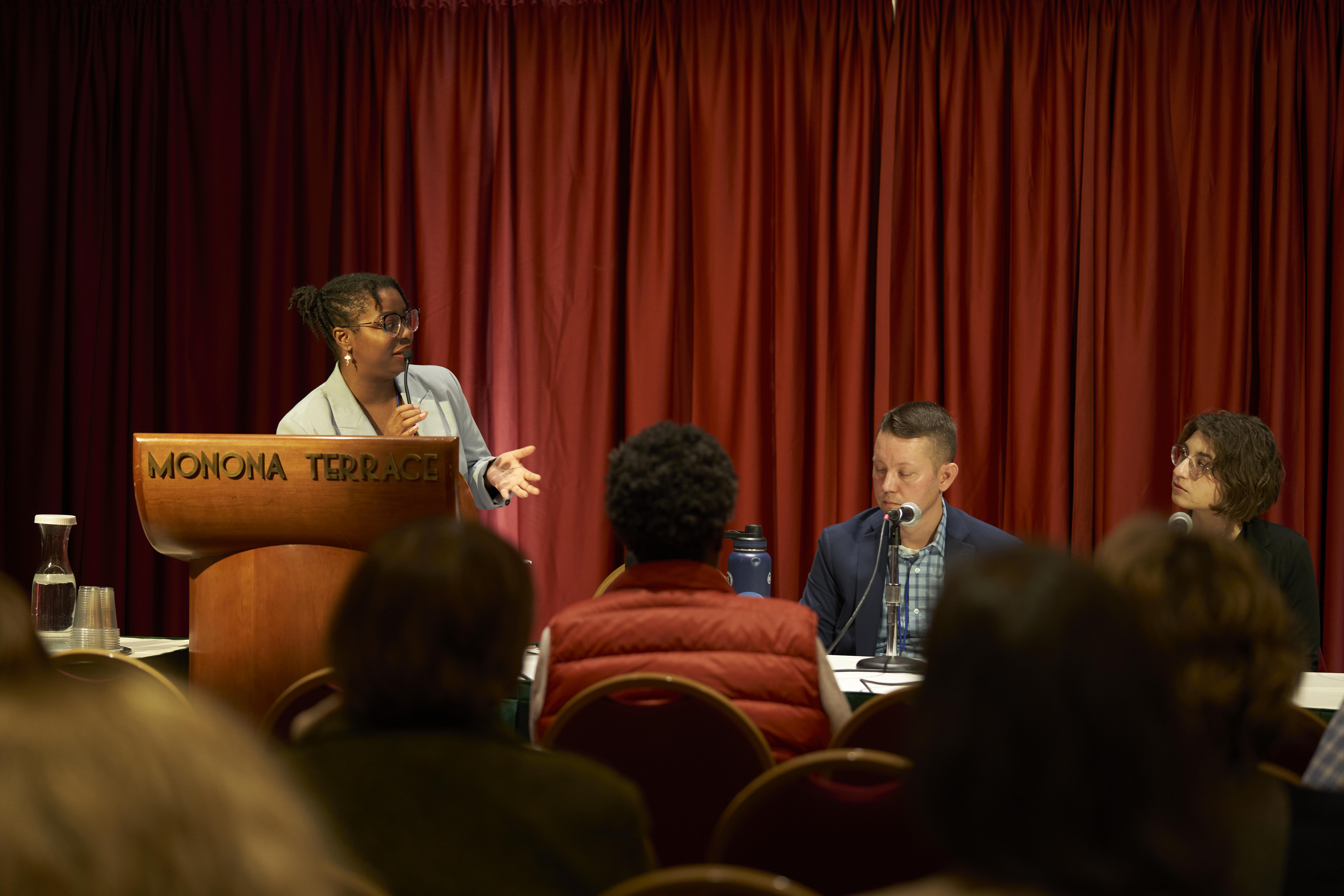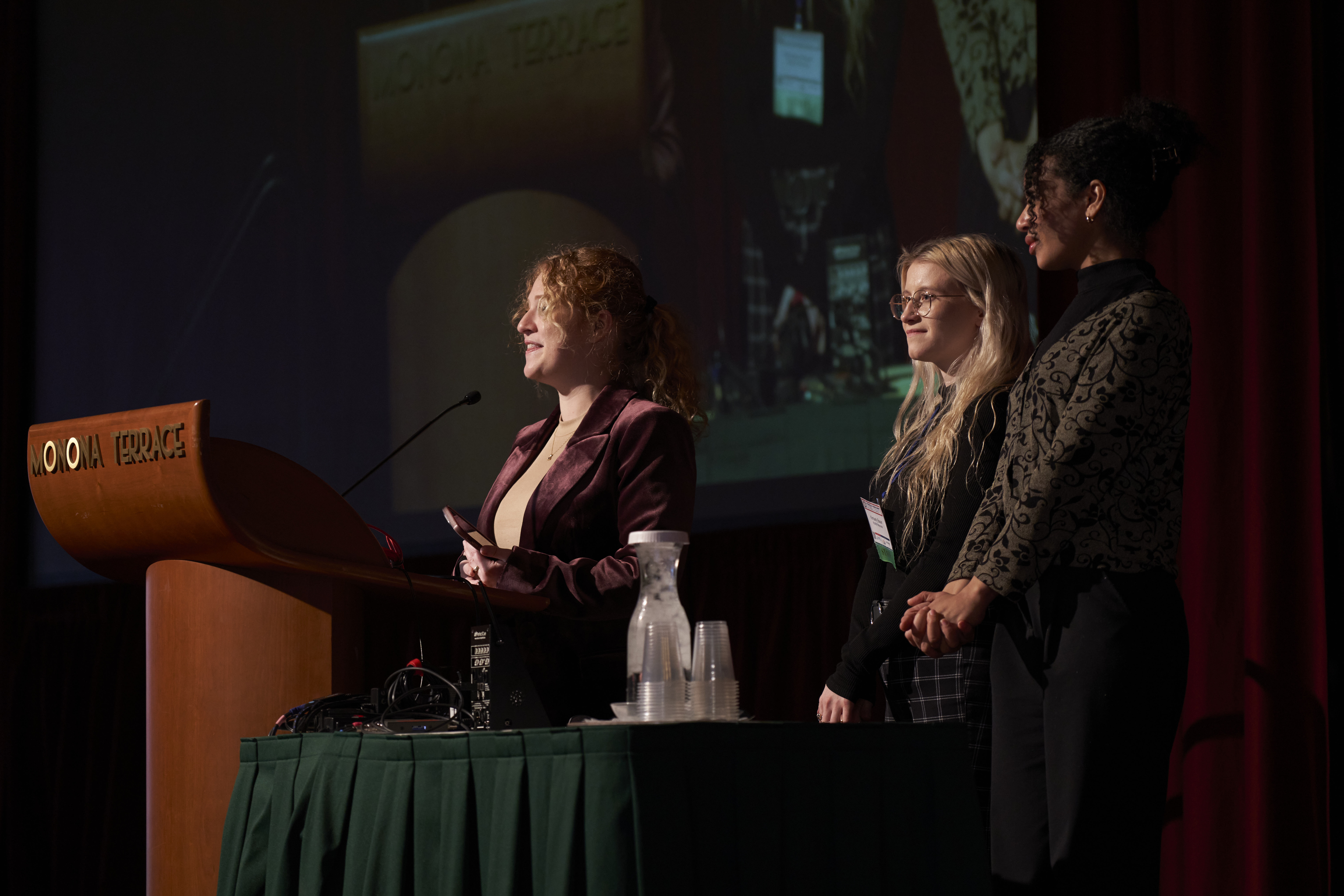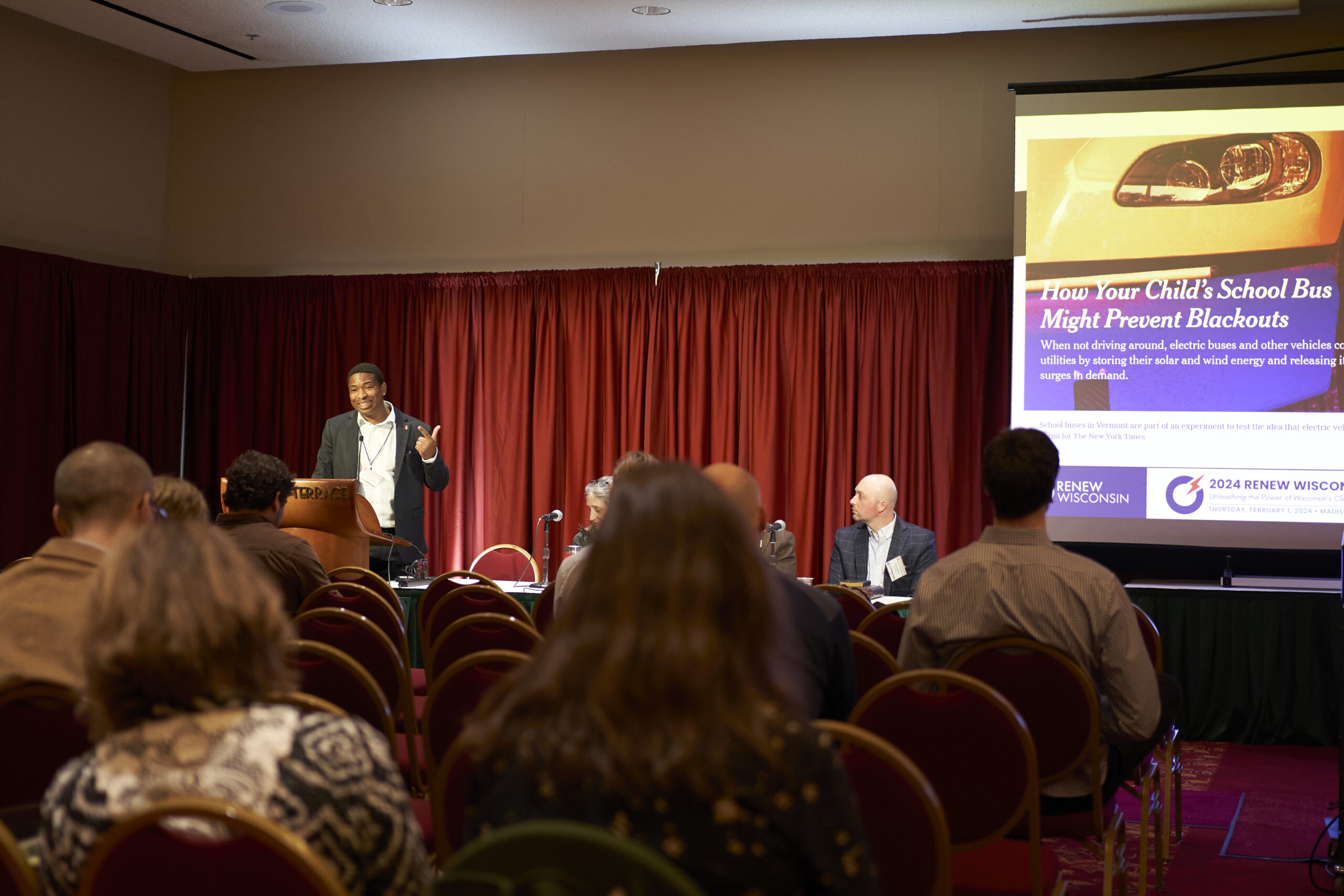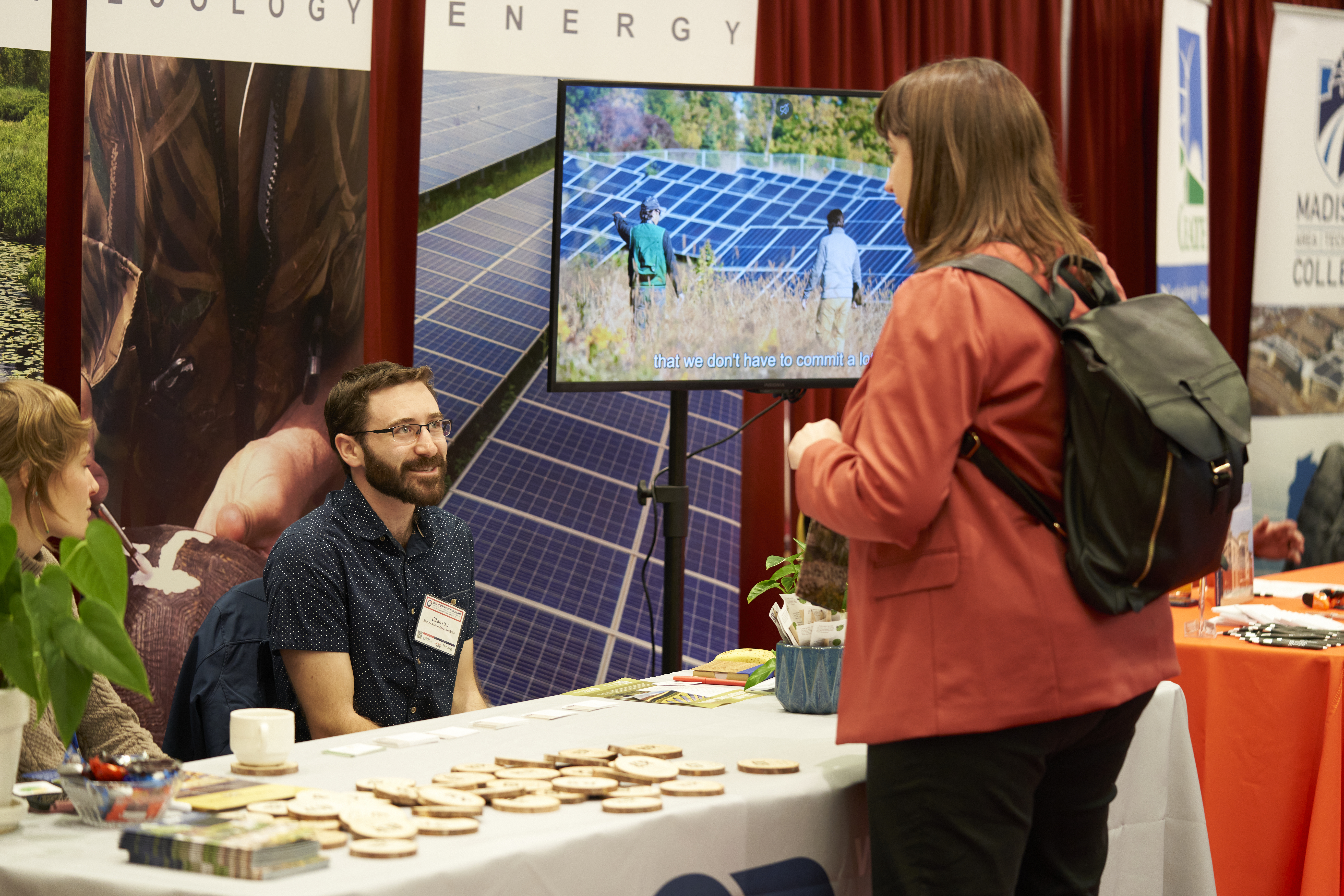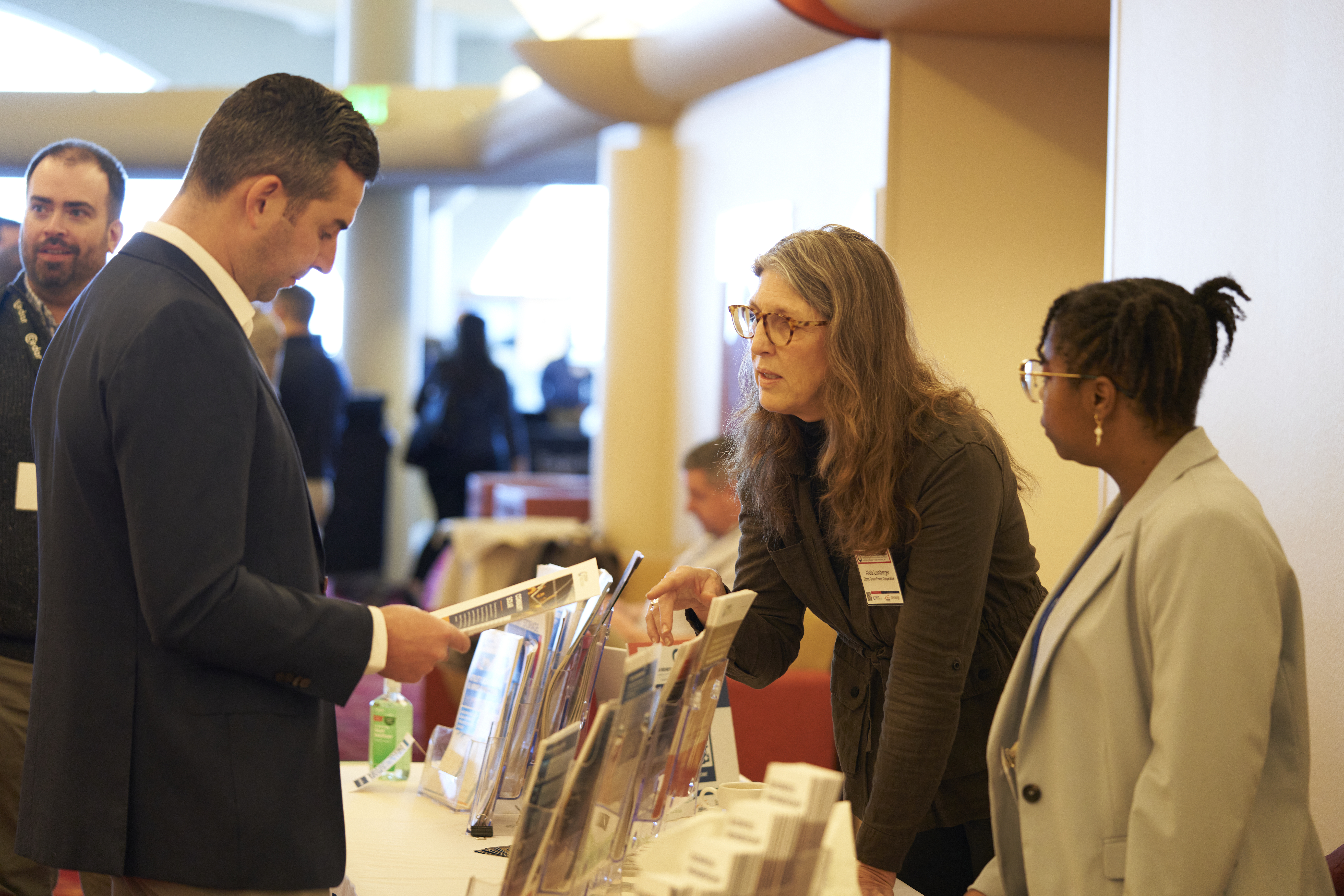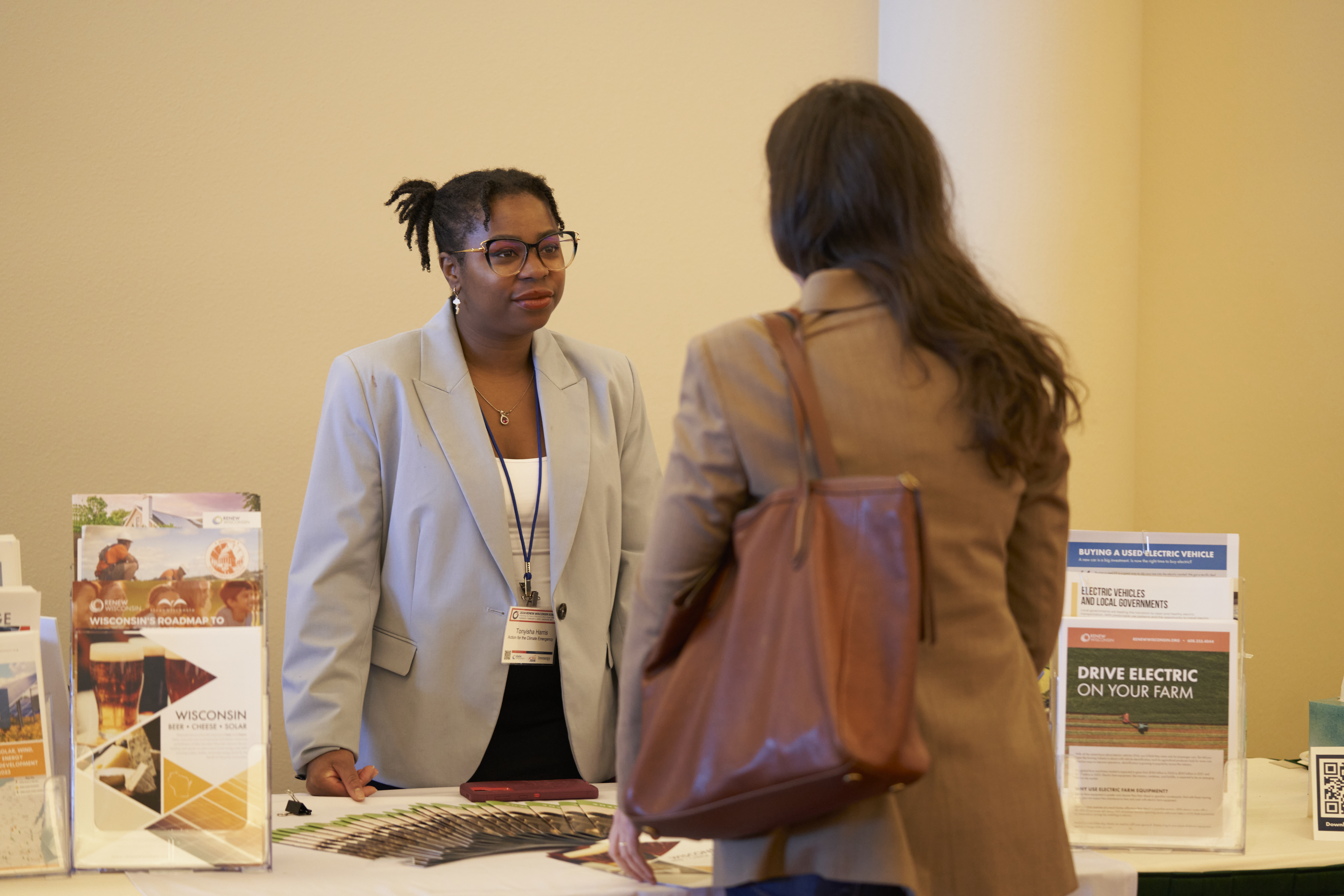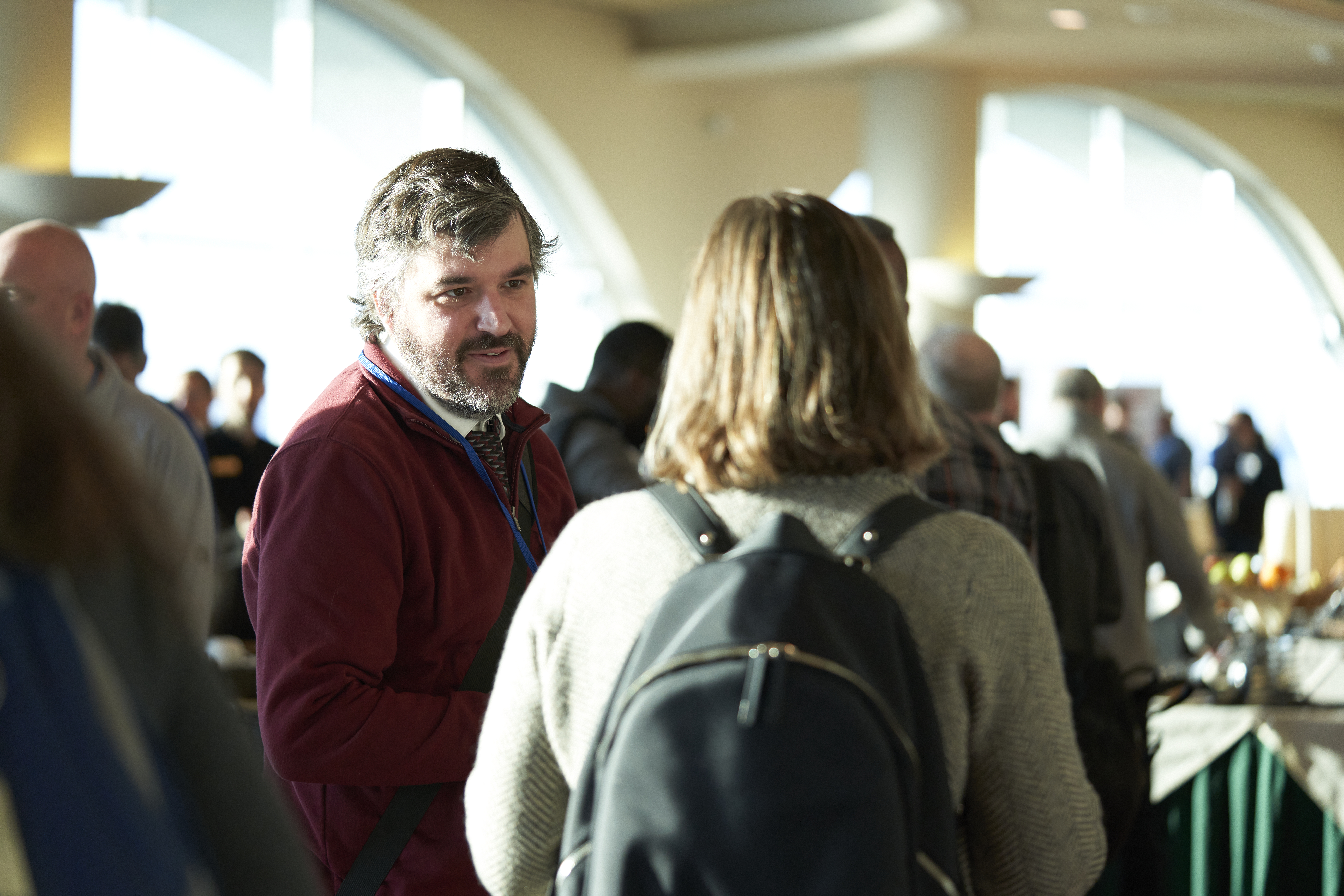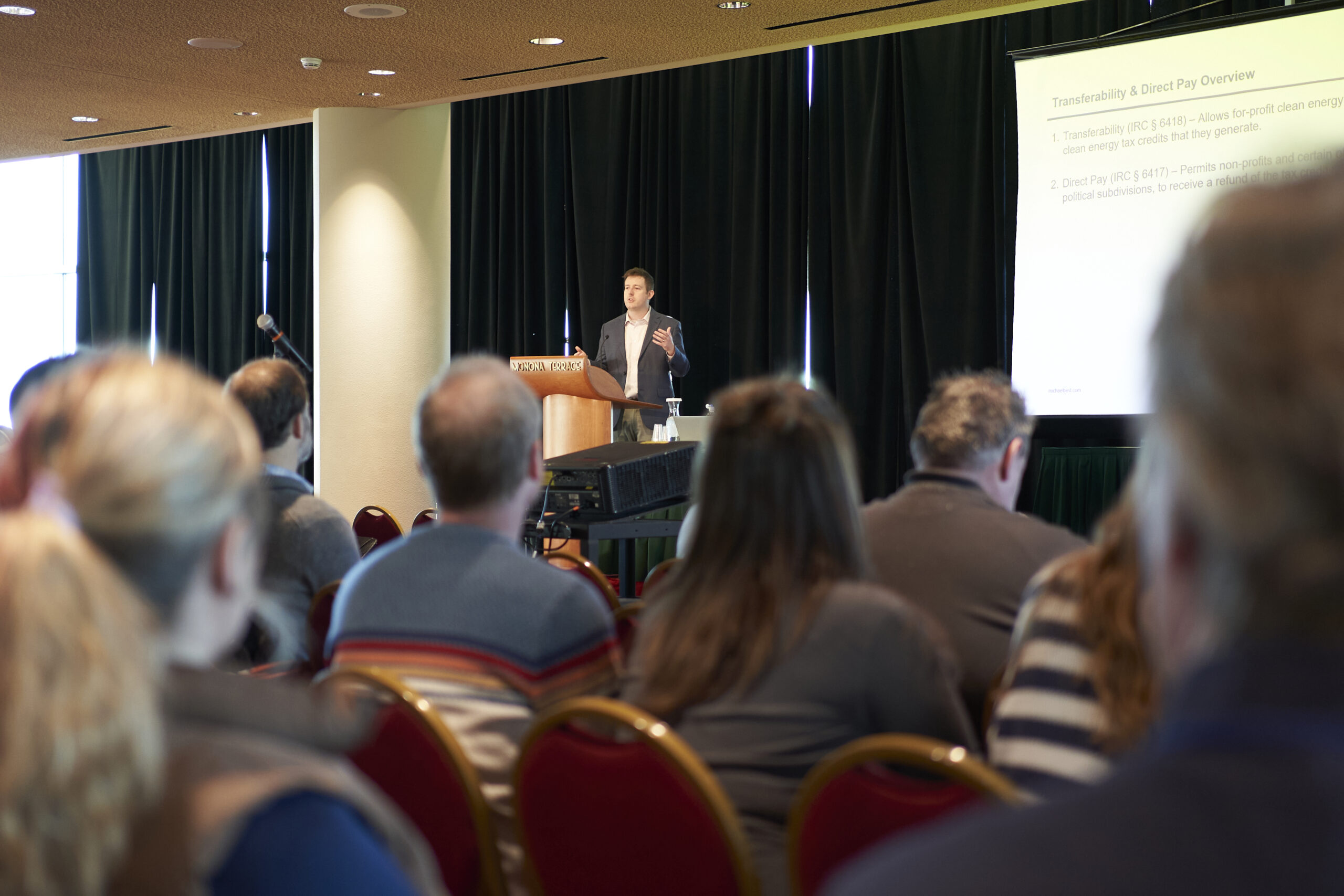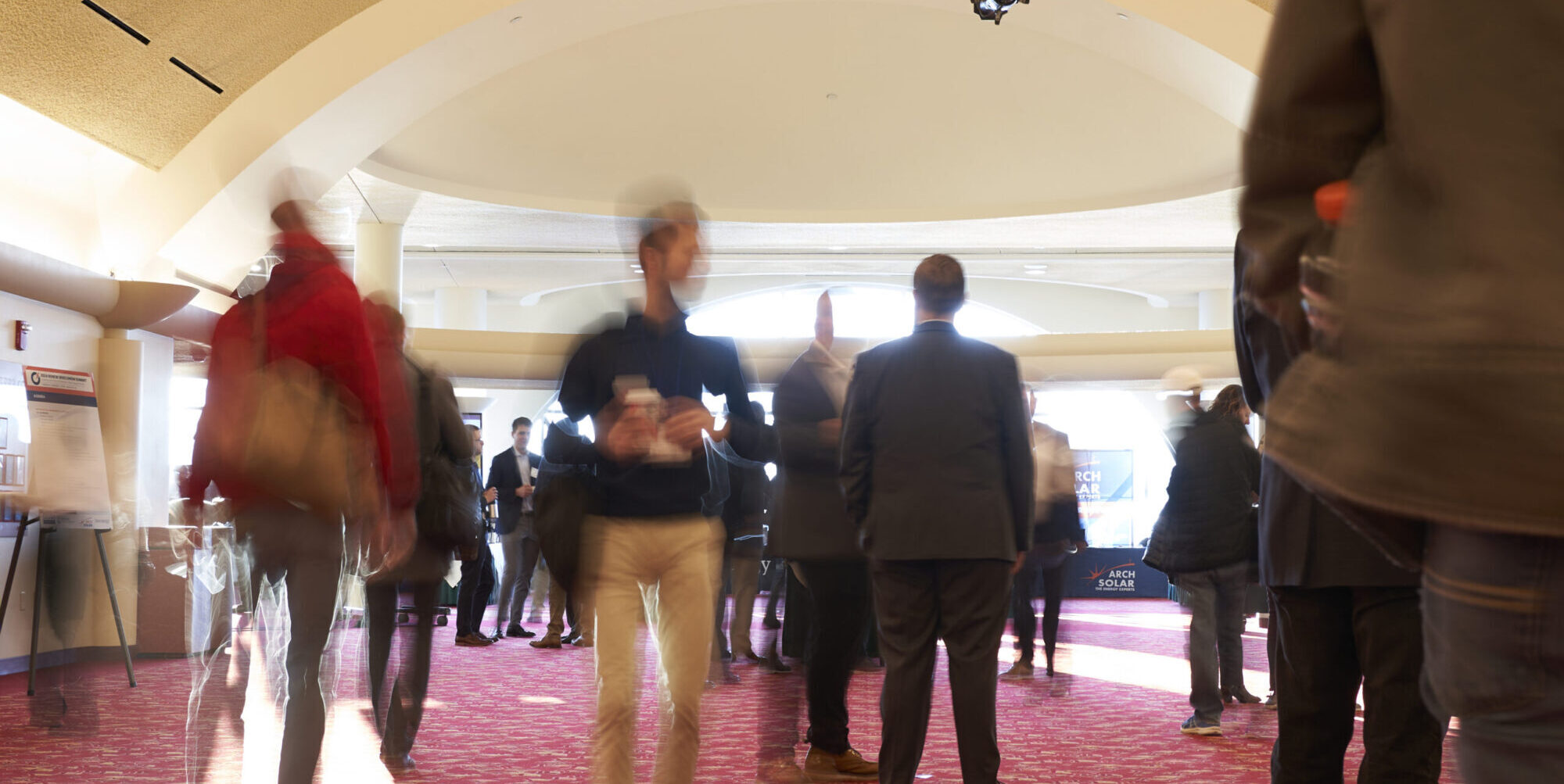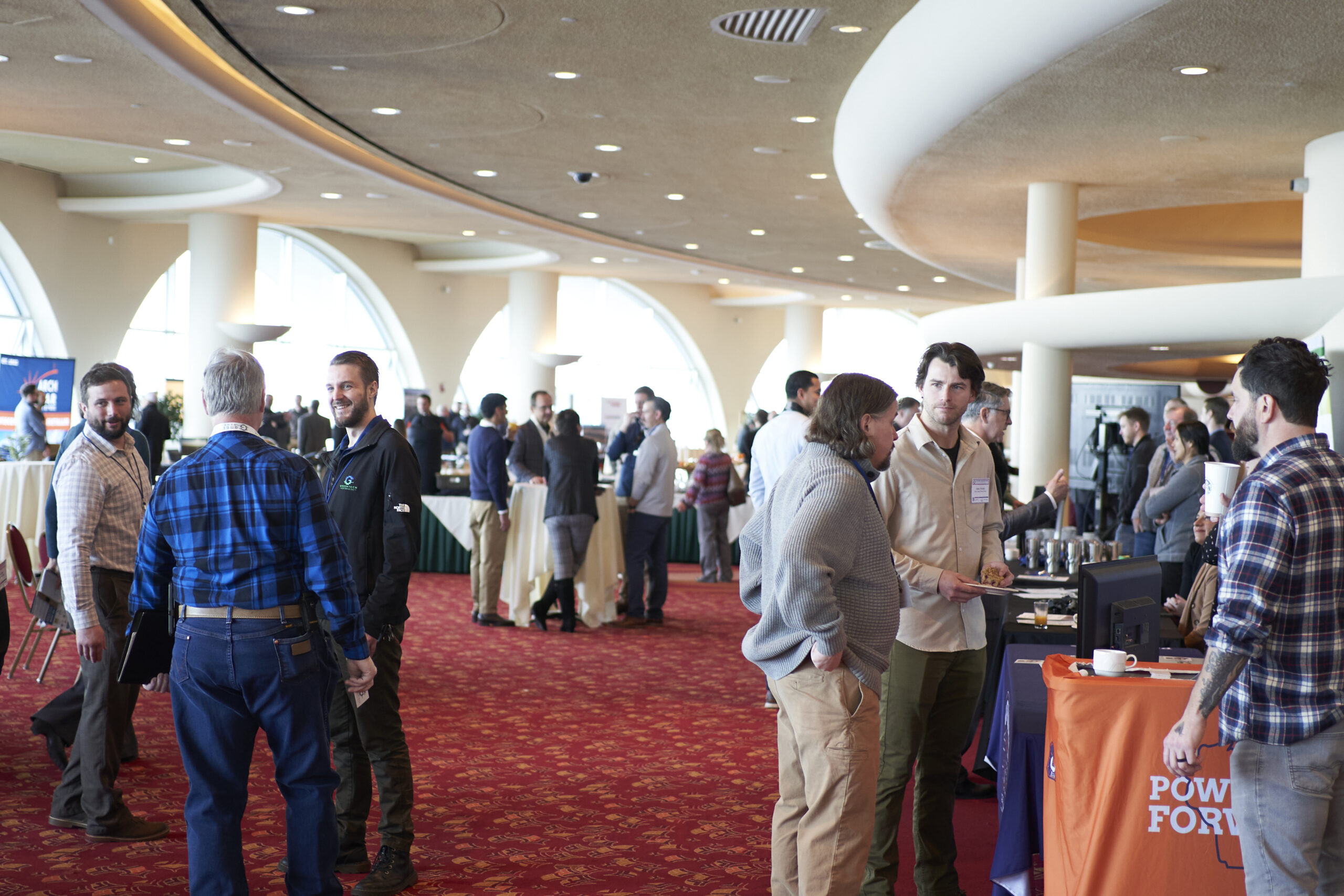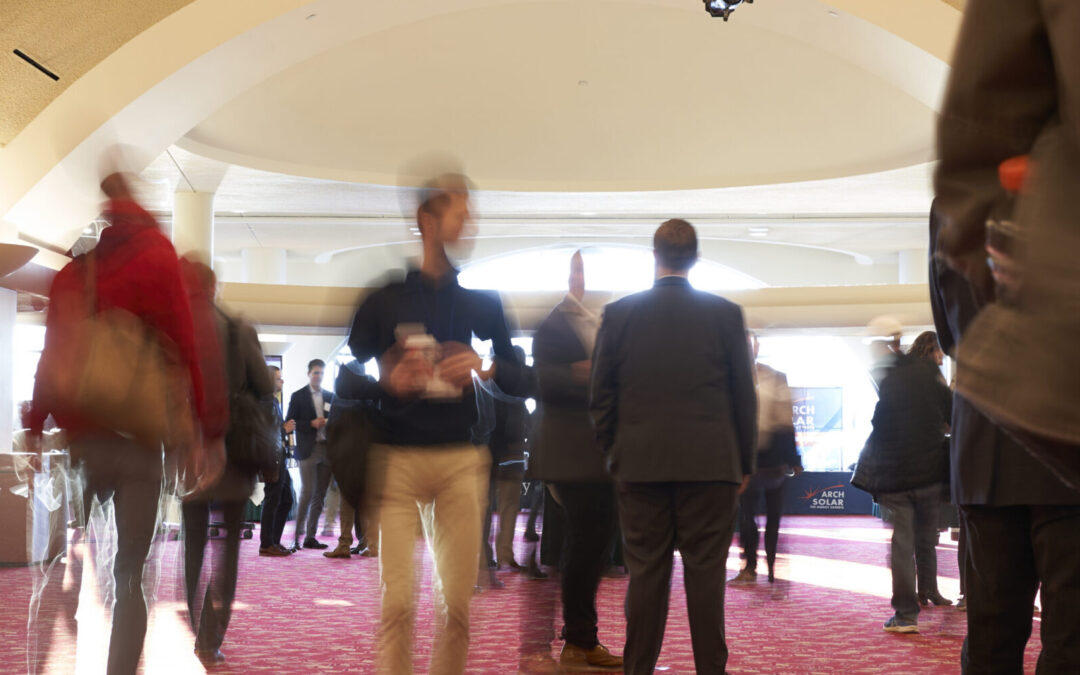
by Alex Beld | Feb 17, 2025 | Community, Events, RENEW Wisconsin
On Thursday, February 6, RENEW held our 14th annual Renewable Energy Summit, presented by Invenergy and Dimension Energy. More than 850 Attendees from across Wisconsin, the Midwest, and even around the globe joined us to discuss state policy, develop professionally, and explore how clean energy is empowering Wisconsin communities.
Not only was this our first Summit that exceeded 800 attendees, but it was also our first time hosting the Energy Pro Demo Day Presented by MREA! Demo Day featured renewable energy education sessions, insights into the latest clean energy technology, NABCEP continuing education credit opportunities, and networking opportunities with top brands and clean energy experts. We are proud to have been able to partner with MREA to add this programming to the Summit. We believe that one of the best ways to ensure a smooth transition to clean energy is to grow and foster the talented workforce that resides in our communities across Wisconsin.
And that’s what the Summit was all about this year, our community. In the year ahead we are looking forward to strengthening and growing the renewable energy community. By maintaining our connections with each other we can use our collective voice to shape our future. This year we had many inspiring speakers who exemplified the spirit of community-focused advocacy for renewable energy.
This year we heard about:
- Innovative clean energy technologies and their real-world applications
- Policy frameworks that support sustainable development and community resilience
- Successful case studies of cross-sector collaborations
- Strategies for ensuring inclusivity and economic equity in the clean energy transition
- Best practices for public engagement and advocacy
We were also joined by the likes of our keynote Erica Mackie, and State Senator Jeff Smith. Erica shared insights on a slew of topics from energy equity and workforce development to collaboration with Tribal Nations and federal policy. Senator Smith closed out the day’s events with a forward-looking message on the renewable energy landscape for Wisconsin and the clean energy industry. Thanks to Erica, Jeff, and everyone else who was either joining us for the first time or the 14th time. It’s your participation that makes this event so impactful.
Beyond the many thoughtful breakouts and inspirational stories we heard, attendees also had many opportunities to catch up with other industry leaders, make new connections, and even find opportunities to help each other find ways to complete their renewable energy goals. As we wrap up another successful Summit, we encourage all of our attendees to keep in touch with us and everyone else they had the chance to connect with this year. Our community has the momentum and the know-how needed to reach our goal of a Wisconsin that runs on clean, reliable energy. Thanks to everyone for joining us this year to share your expertise, enthusiasm, and energy. We can’t wait to do it again in 2026!
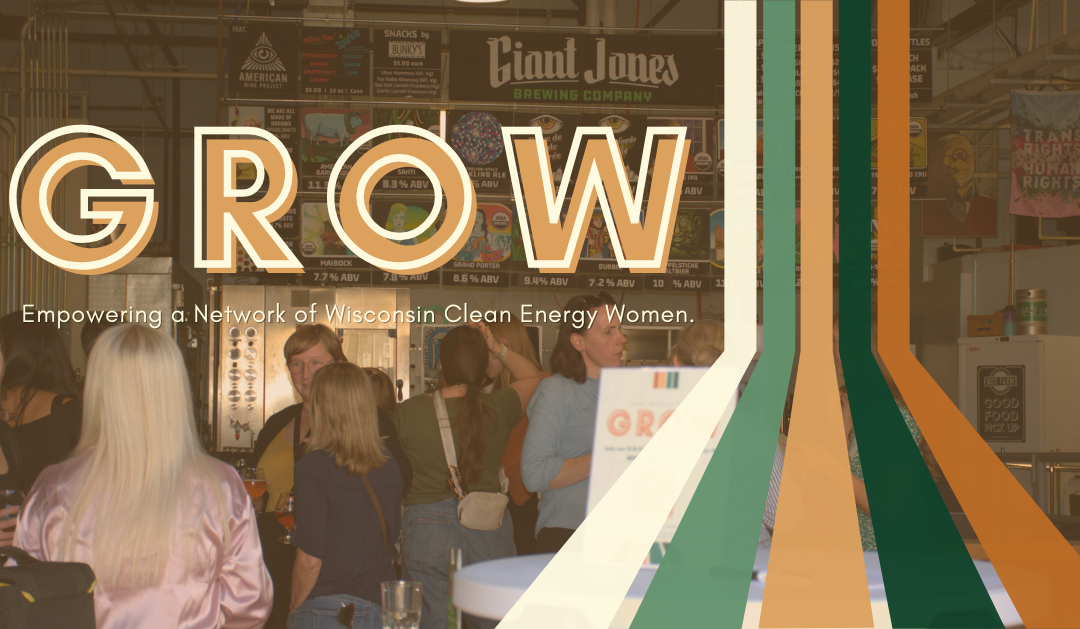
by Julia Holzschuh | Oct 14, 2024 | Advocacy, Community, DEAI, Events, GROW
On Thursday, October 3, the women of RENEW Wisconsin held the first of many GROW events. The Green Revolution of Women (GROW) was founded to create a welcoming space for women to connect, gain mentorship opportunities, and build lasting friendships that can enhance their work in building a clean energy economy.
At the heart of the clean energy industry are the dedicated individuals who work day in and day out to create a better environment for Wisconsin. Fostering inclusivity and empowering all voices can be a challenge in any workplace, and it is with this obstacle in mind that the women of RENEW Wisconsin aim to connect women through GROW. By sharing our experiences – whether they’ve led to major successes or taught valuable lessons – GROW was designed to offer support and inclusivity. GROW brings women together to have a greater collective impact.
“As someone who is new to the renewable energy field, I’ve only been in it for a little under a year, I find that when I go to events it often feels like I don’t know a lot of people, and we just wanted to create a space where we can come together and create relationships that will help us intentionally build a community for women in the clean energy field,” said Kim Bauer, while welcoming GROW attendees.
RENEW welcomed a diverse group of women from all across Wisconsin at our first event, with over 40 women in attendance. GROW attendees spent the evening networking and enjoying each other’s company at Giant Jones, a Madison-based, woman-owned brewery. The event welcomed established leaders in the clean energy industry who have a wealth of experience, newcomers to the industry, and recent graduates who are beginning to explore a career in sustainability. While building new relationships and reconnecting with old friends, GROW attendees talked about a multitude of topics, including excitement for having a space to connect with other women in the industry.
“As someone fresh out of grad school, GROW was helpful for me to learn more about the field of renewable energy from more experienced women and get some tips about networking in a comfortable space,” said attendee Rhiannon Erhardt, a recent graduate from the Nelson Institute of Environmental Studies.
As GROW continues to grow, the women of RENEW Wisconsin plan to create spaces where women can build confidence in their professional capabilities and feel empowered in the clean energy revolution. The GROW community will help women advance their careers and connect with those who have shared experiences. In addition to hosting quarterly events in Madison and Milwaukee, we have also created a GROW group on our community portal, which women in the industry are encouraged to join to connect between events! The women of RENEW Wisconsin want to express our sincerest gratitude for the crowd that showed up for our first GROW event and we look forward to seeing everyone in December.
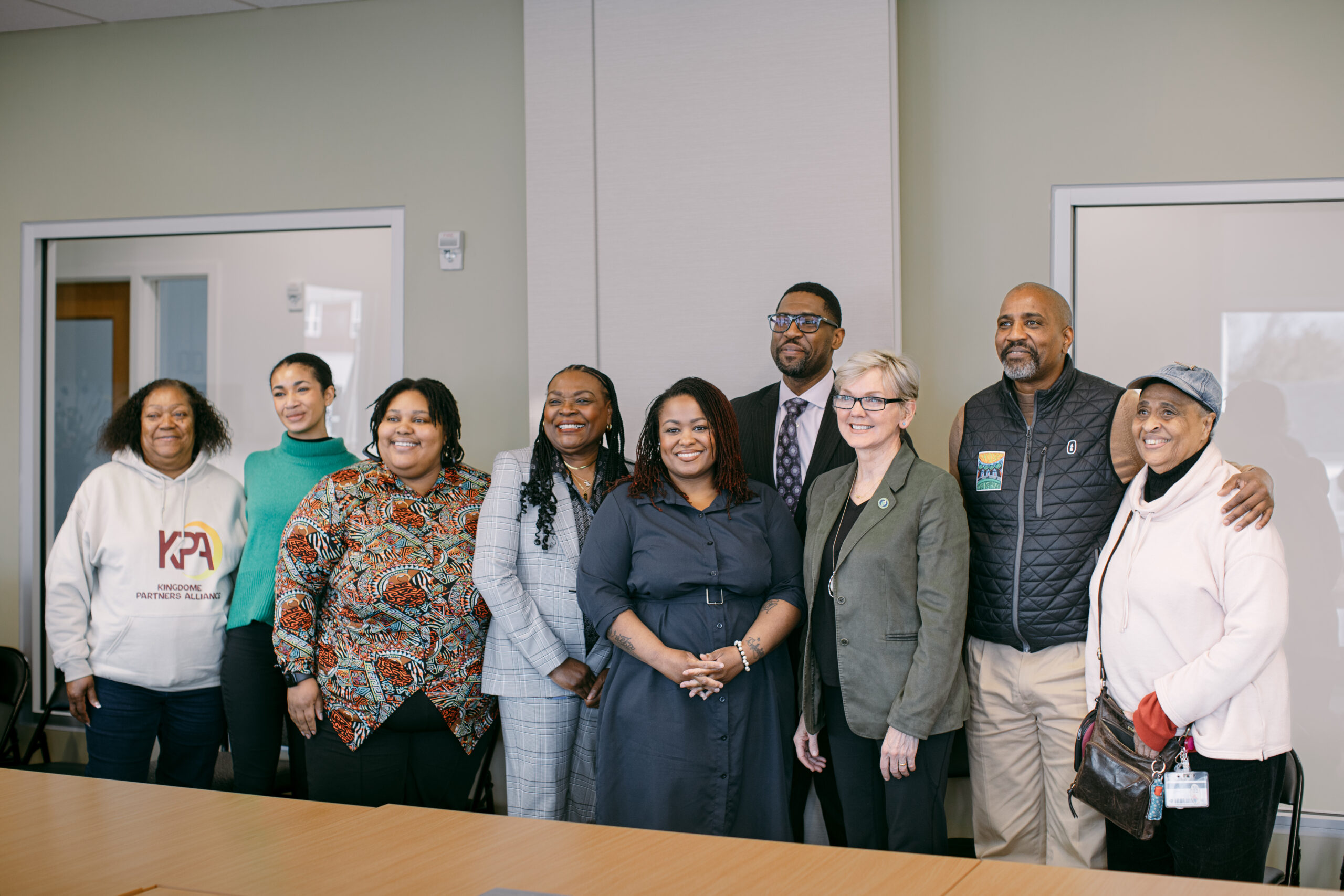
by Aisha Anderson | Mar 28, 2024 | Community, Events, Inflation Reduction Act
On Wednesday, March 27, Walnut Way welcomed the U.S. Department of Energy (DOE) Secretary Jennifer Granholm to their site, opening up a conversation about shared priorities in uplifting progress for environmental justice communities and the transformative nature of the DOE’s involvement in helping the country reach decarbonization goals.
“What a massive honor to host Jennifer Granholm to Walnut Way, having the opportunity to showcase the transformational work being done with community-led comprehensive development,” said Antonio Butts, Executive Director of Walnut Way. “Because of the work being done at the DOE, we can use these grants to further the development of our neighborhood and provide green energy opportunities for low to middle-income individuals, sustainably transforming the city one grant at a time.”

Photo Credit: Clean Economy Coalition of Wisconsin
“The Inflation Reduction Act (IRA) and the Bipartisan Infrastructure Law (BIL) are geared towards healing the rift of the past,” said Granholm. “We want to emphasize and empower communities to have a voice. This can be seen through grant stipulations such as the Community Benefits Agreement (CBA). With the CBA, we wanted to provide a vehicle to empower communities to speak and be heard.”
During her visit, Secretary Granholm participated in a roundtable facilitated by Butts. While leading the roundtable, Butts outlined Walnut Way’s work to elevate the voices of those in the community who haven’t previously had a seat a the table for environmental justice work and the community impact of helping weatherize and install renewable technology on homes in the neighborhood.
Granholm heard several concerns from Butts and others. In her response, she emphasized an upcoming IRA program to help low to moderate-income households with appliance rebates.
“But what we’re going to need is we’re going to need partners on the ground to be able to get the word out to people so they know that these are going to exist,” Granholm said. “Now, it comes through the state and Wisconsin has pledged to by June to roll out their program.”
Granholm shared that the program, for example, might be able to help people replace a worn-out furnace or air conditioning unit with a more expensive heat pump — a more efficient device that transfers energy instead of mostly producing it with fossil fuels.
Butts said the conversation was productive and noted that initiatives from the DOE and programs implemented through the IRA are key in accelerating clean energy solutions — specifically for low and moderate-income people.
by Alex Beld | Feb 14, 2024 | Community, Events, RENEW Wisconsin, Renewables
RENEW Wisconsin selected 13 projects for this year’s Honor Roll. These projects and the organizations involved in them demonstrate leadership, ambition, and climate awareness in their design and use of clean energy.
ALLIANT ENERGY (WPL) SOLAR PORTFOLIO
In 2023, Alliant Energy’s Wisconsin utility placed in service eight utility-scale solar plants totaling 639 megawatts as part of its Clean Energy Blueprint. By the end of the year, Alliant had finished work on 11 of the 12 projects in its solar portfolio. When the final solar plant is completed this summer, they will together generate approximately 20% of Alliant’s resource mix in Wisconsin, sufficient to power nearly 300,000 homes annually. Many Wisconsin contractors participated in the construction of these projects, including Westphal Electric and Mashuda Contractors.
BADGER HOLLOW
Developed by Invenergy and owned by WEC Energy Group and Madison Gas and Electric, Badger Hollow Solar Park is now fully operational. At 300 MW, it is Wisconsin’s largest operating solar power plant, capable of generating 6,000,000 megawatt-hours per year. This is equal to the annual consumption of 90,000 Wisconsin households. Badger Hollow was one of the first utility-scale solar plants approved by the Public Service Commission in 2019. Since then, Invenergy has secured permits for four more solar and storage projects in Wisconsin, totaling 1.35 gigawatts. Two of them are under construction today.
BAYFIELD COUNTY
Bayfield County successfully commissioned the area’s first multi-building, intelligent microgrid on November 10, 2023. The Bayfield County Courthouse and Jail automatically integrate solar PV, battery storage, and backup diesel generation under a single utility meter. The system will provide electric power with or without the electric grid and can optimize economic benefits during normal grid-tied operation through features like demand management and energy arbitrage. The system is not only a first for the area but a first for Wisconsin and the Midwest.
CITY OF MADISON
In the previous decade, the City of Madison set a goal of installing one megawatt of solar capacity by 2020 to supply its own facilities. By the end of 2022, about 1.5 MW of behind-the-meter solar power had been installed, mostly through the City’s Green Power training program. In 2023, the City added 585 kW of solar PV at nine different facilities, including 200 kW apiece at both Streets West and the Nakoosa Rd. Fleet Garage, bringing overall installed PV capacity serving City facilities to more than 2 MW.
COLLEGE OF MENOMINEE NATION
In 2023, Eland Electric partnered with the College of Menomonee Nation to install a 40-kilowatt solar array on the tribe’s reservation in Keshena. In addition to powering a college building, this array kicks off an initiative to help local community members develop the skill set needed for installing and maintaining solar arrays. The Menomonee Nation hopes to build its own reservation-wide solar energy utility service.
HOLY WISDOM MONASTERY
In 2023, Holy Wisdom embarked on an ambitious effort to become an all-electric facility using carbon-free sources onsite to the greatest extent possible. The monastery’s journey to a carbon-free future began with a significant expansion to the onsite PV capacity already in place. Designed by the team of Hoffman Planning and Madison Solar Consulting and installed by Northwind Solar, the new array is built upon single-axis trackers, and its output flows directly into the utility distribution system. When the ground-source heat pump and battery storage system are commissioned later this year, Holy Wisdom Monastery will have effectively achieved carbon neutrality. Wisconsin’s Office of Energy Innovation helped kick off this project with a $575,000 grant awarded in 2021. Local solar developer John Young contributed financing for the solar array.
MCFARLAND PUBLIC SAFETY BUILDING
In 2023, the village of McFarland celebrated the opening of its new Public Safety Center, likely the first net-zero municipal building in the state of Wisconsin. With 51 geothermal wells for efficient heating and cooling as well as solar panels that can produce up to 470kW of photovoltaic energy, the facility will produce as much energy onsite as it consumes annually, leading to its designation as a net zero facility. Taking advantage of federal and state clean energy funding (including an Energy Innovation Grant), this $20 million building should pay for itself in year one.
RED BARN WIND ENERGY CENTER
Commissioned in 2023, the 92 MW Red Barn Wind Park was developed by Minnesota-based PRC Wind and built by Allete Clean Energy for the project’s current owners, WEC Energy Group and Madison Gas and Electric. Approved by Grant County in 2019, Red Barn is the first project in Wisconsin to have advanced from the proposal stage to full operation under the state’s Wind Siting Rule (PSC 128). The output from this 28-turbine project should equal the annual consumption of 50,000 Wisconsin households.
SHEBOYGAN SENIOR COMMUNITY
Sheboygan Senior Community is a faith-based, nonprofit continuum of care facility providing respite, short-term rehab, assisted living, skilled nursing, and end-of-life services. Designed and installed by Plymouth-based Arch Solar, the installation consists of a 198-kW ground-mount solar array and a battery energy storage component. In addition to a grant from the Wisconsin Office of Energy Innovation, the project’s financing relied on a generous commercial benefactor, who provided 95% of the funding for the senior community’s project. The organization worked with Legacy Solar Cooperative to secure this funding. In addition, Couillard Solar Foundation donated one-third of the 438 panels that make up the array.
SOLARSHARE WISCONSIN
In 2023, SolarShare Wisconsin, a cooperative entity organized under Chapter 185, invested capital provided by members to bring two smaller solar projects in western Wisconsin to fruition. SolarShare Wisconsin partnered with OneEnergy Renewables, which has developed more than 20 smaller-scale solar projects across Wisconsin, to build its first two arrays in Juneau County, totaling 4.5 MW. Now energized, the Lemonweir (lemon•weer) and Webster Creek projects supply electricity to Oakdale Electric Cooperative. SolarShare Wisconsin plans to add another solar project to its portfolio later this year. At a site near Lake Hallie (rhymes with rally) in Chippewa County. Like the first two projects, the Lake Hallie project, also developed by OneEnergy, will be financed with capital provided by SolarShare Wisconsin members.
UW-HEALTH EASTPARK MEDICAL CENTER GARAGE
In 2023, UW-Health partnered with SunPeak and Staff Electric to design and oversee the construction of a 1 MW solar parking canopy on the garage adjacent to its Eastpark Medical Center. This PV canopy not only supports UW-Health’s carbon reduction goals but also provides additional protection to patients and visitors using the facility.
UW-PARKSIDE
UW-Parkside partnered with McKinstry to host a 2.1 MW solar array, similar to the one McKinstry designed for UW-Platteville a year earlier. Built on a parking lot, UW-Parkside’s array is the largest installation in 2023 serving a Wisconsin school or municipality. McKinstry selected Westphal Electric to build the structure and interconnect the PV system to the grid. The electricity generated by the McKinstry/Westphal installation flows directly to UW-Parkside campus buildings.
YAHARA SOLAR
As noted on Dane County’s website, the 17-megawatt Yahara Solar project, completed in 2023, enables Dane County to become not only the first county government in the state to achieve 100% renewable electricity status, but also the 4th county in the nation to reach the 100% goal. Key partners in the project include Alliant Energy (the local utility), SunVest (the project developer and owner), and Pieper Power (the installation contractor). Yahara Solar will produce more than 36 million kilowatt-hours of renewable electricity per year — enough to power more than 3,000 Dane County homes.

by RENEW Wisconsin | Feb 5, 2024 | Community, Events, RENEW Wisconsin
On Thursday, February 1, RENEW held our 13th annual Renewable Energy Summit, presented by Arch Solar and Invenergy. More than 700 Attendees from across Wisconsin, the Midwest, and even around the globe joined us as we discussed how to unleash the power of Wisconsin’s clean energy potential.
Our amazing cast of panelists, presenters, and guest speakers covered:
- Emerging Technologies: Delve into the latest breakthroughs in clean energy technologies, from advanced renewables to energy storage and grid innovations.
- Economic Transformation: Explore how the clean energy sector is reshaping Wisconsin’s economy, generating jobs, and fostering economic growth.
- Community Power: Hear how community-led clean energy initiatives empower local residents to actively participate in the energy transition.
- Energy Policy and Legislation: Gain insights into Wisconsin’s evolving energy policies and regulations and hear from policymakers and legal experts about the opportunities and challenges facing the clean energy sector.
- Rural and Urban Integration: Showcase successful strategies for bridging the urban-rural divide in clean energy adoption and development.
- Inclusive Sustainability: Focus on equity, diversity, and inclusion in the clean energy sector to ensure that everyone benefits from its growth.
- Clean Energy Workforce Development: Focus on building a skilled workforce to meet the demands of a growing clean energy sector and create high-quality jobs.
- Educational Catalyst: Examine the role of education and research institutions in driving clean energy innovation and workforce development.
- Resilient Infrastructure: Address the importance of building resilient energy systems capable of withstanding disruptions and extreme weather events.
- Investment and Financing: Explore investment opportunities and financing models that support the scaling of clean energy projects.
- Collaborative Partnerships: Encourage collaboration between government, industry, academia, and local communities to foster a thriving clean energy ecosystem.
We were also joined by the likes of Tonya Hicks, Robert Blake, and State Representative Supreme Moore Omokunde. Tonya Hicks shared with attendees not only how we can go about building a diverse workforce, but why it is necessary for the success of the industry. Robert Blake talked about the potential of existing renewable energy technologies and how the industry can go about finding the workers needed to achieve that potential. And Supreme Moore Omokunde closed out the Summit with a reminder that our transition to clean energy should be equitable, and that we must ensure access to renewables for low-income and minority communities.
Attendees also learned that this would be the last RENEW Wisconsin Summit with Michael Vickerman joining us as a RENEW staff member. Though Michael does plan to retire this spring, he has promised that this won’t be the last we hear from him. Michael’s role at RENEW and in Wisconsin’s renewable energy industry cannot be understated and we’re excited to see what he gets up to in his retirement.
We are proud to say that our Summit continues to grow in size and scope. The energy and engagement at this year’s summit were inspiring, and it’s all thanks to the sponsors, volunteers, speakers, attendees, and everyone else who joins us each year to make it happen!
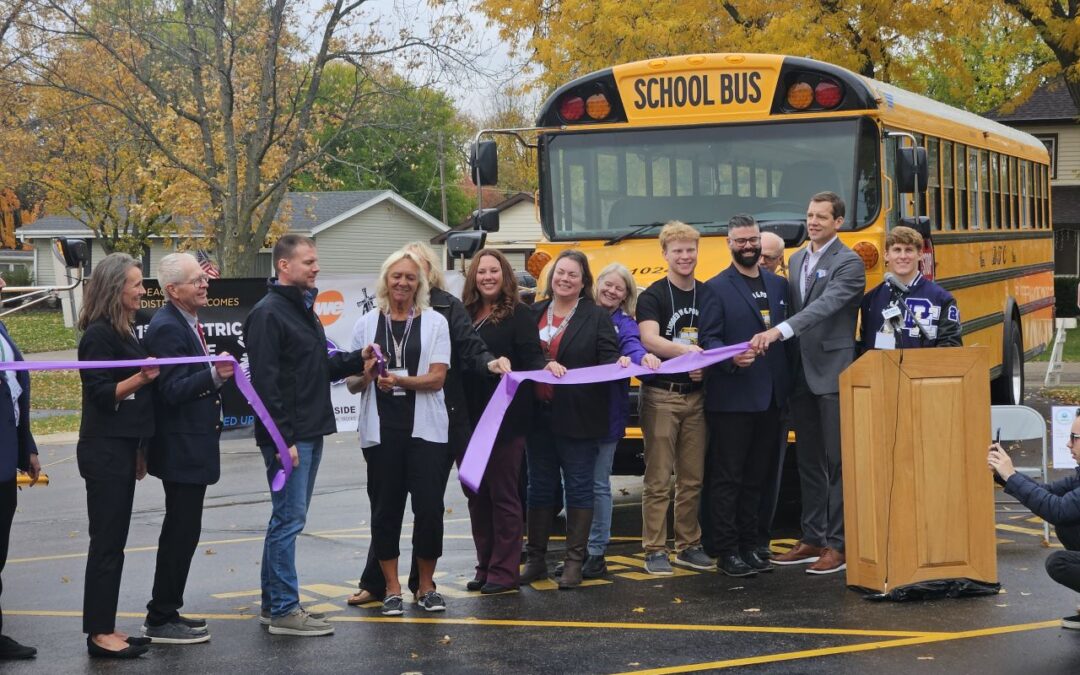
by Alex Beld | Oct 27, 2023 | Electric School Bus, Electric Vehicles, Electrification, Events
The Palmyra-Eagle Area School District, in collaboration with Dousman Transport Company, has deployed Wisconsin’s first registered electric school buses. The new buses were funded through the Environmental Protection Agency’s (EPA) Clean School Bus Program.
The community joined the district for a celebration on Wednesday, October 25, at the Irving L. Young Community Center on the Palmyra-Eagle Middle and High School campus. Palmyra-Eagle Area School District not only has the first registered electric school buses in Wisconsin but is the first district to switch over its entire fleet to electric.
Ryan Krohn, Palmyra-Eagle School District Superintendent, said, “As we look at where we’re going, in our mission statement we talk about the word innovation, and while our school district prides itself on performance excellence, there’s also a time for us to think about the future and sustainability.”
Krohn’s Full Comments:
The new superintendent also noted that the buses will help to keep district dollars in the classroom and support learning.
When considering whether to apply for the funding former Palmyra-Eagle School District Gray asked, “What do we save in fuel costs?”
Upon learning that number he determined quickly that it was a done deal.
“We’ve got to do this, we’re talking $50,000 – $60,000 on up in fuel savings and that’s a big number to our district here,” Gray said.
The district received $2.4 million through the Clean Bus Program to acquire all six electric school buses and install charging stations. The Clean Bus Program, which is funded by the Bipartisan Infrastructure Law of 2021, covered the full cost of the buses for the district.
Fourteen additional Wisconsin schools, which also received Clean Bus Program funding, will receive their buses over the next few months.
By giving districts the opportunity to acquire these buses without having to use district dollars they are able to immediately start saving on fuel costs.
During the celebration one bus driver noted that fully charging the bus they were driving only cost $4. For perspective that’s less than a single gallon of diesel at the time of writing.
The implementation of electric buses will lead to healthier communities and smoother, quieter rides for students. Fully charged, the electric buses, manufactured by IC Bus, can travel around 135 miles. This transition to electric school buses means healthier, quieter rides for the approximately 325 Palmyra-Eagle students who currently take the bus to school.
“In all my years of administration I’ve never seen such excitement over yellow buses,” Gray said.


